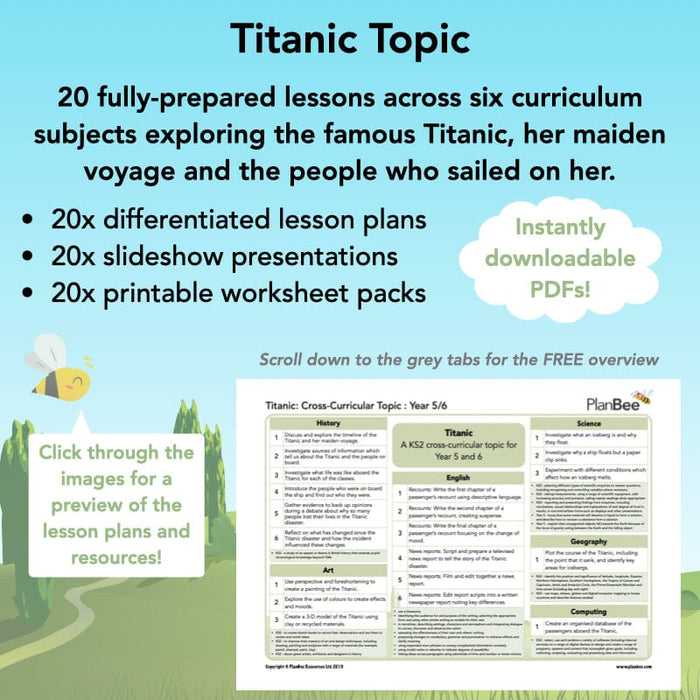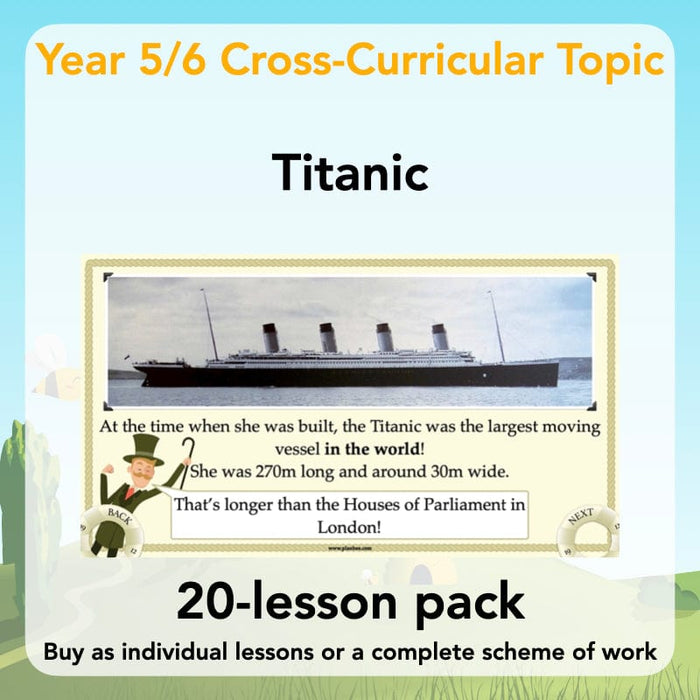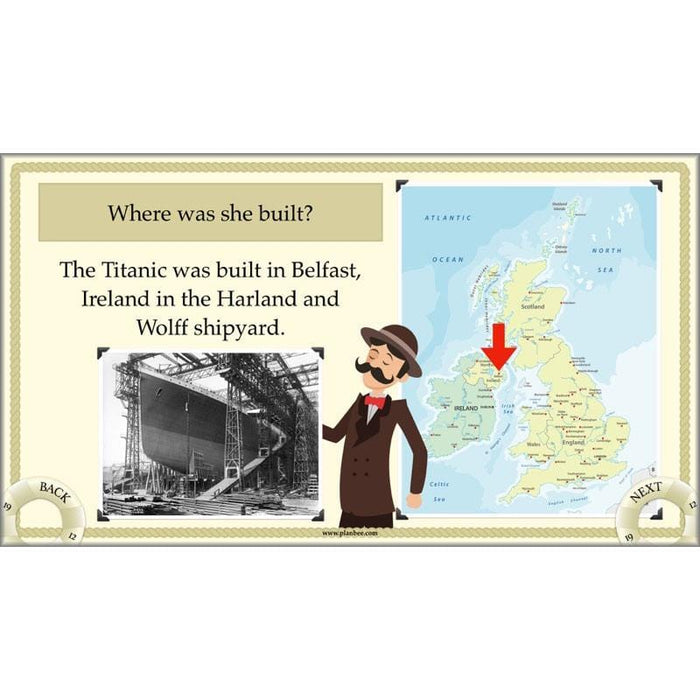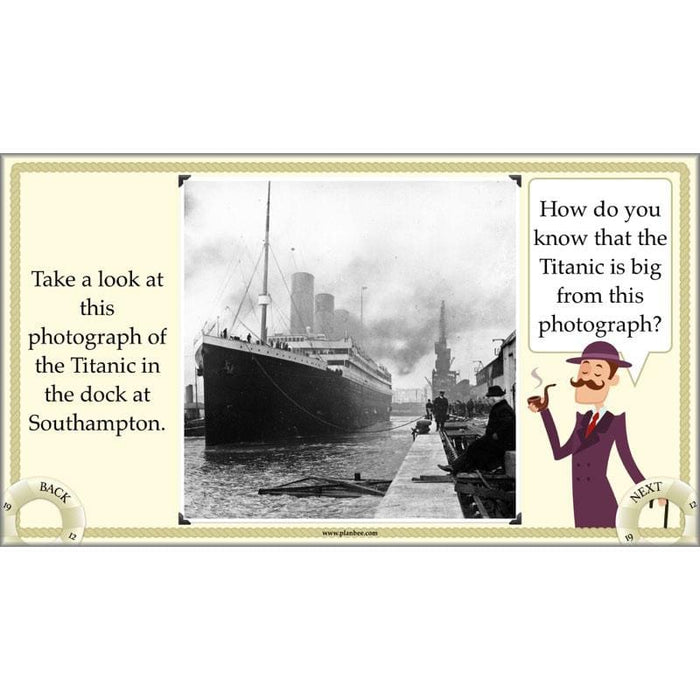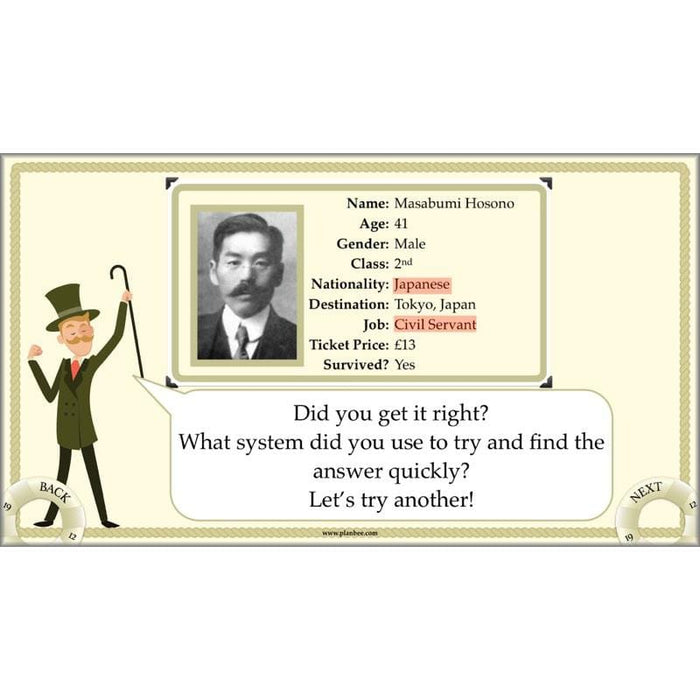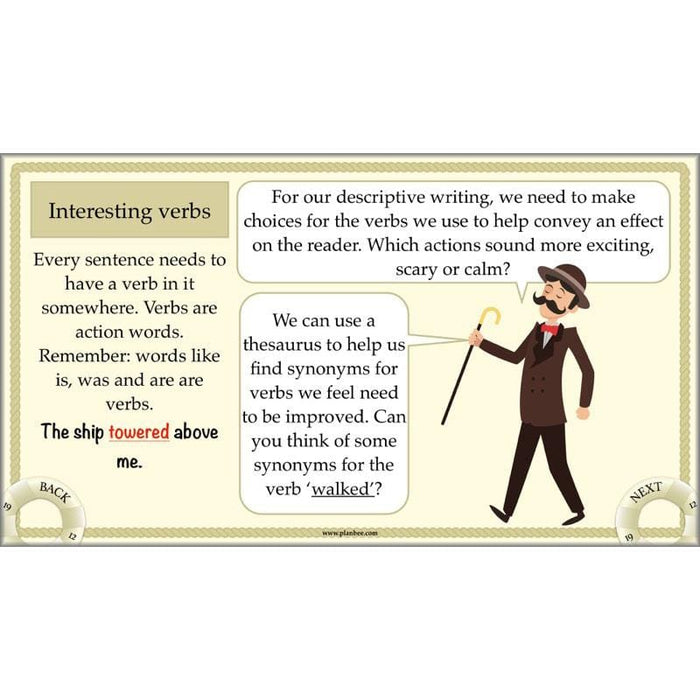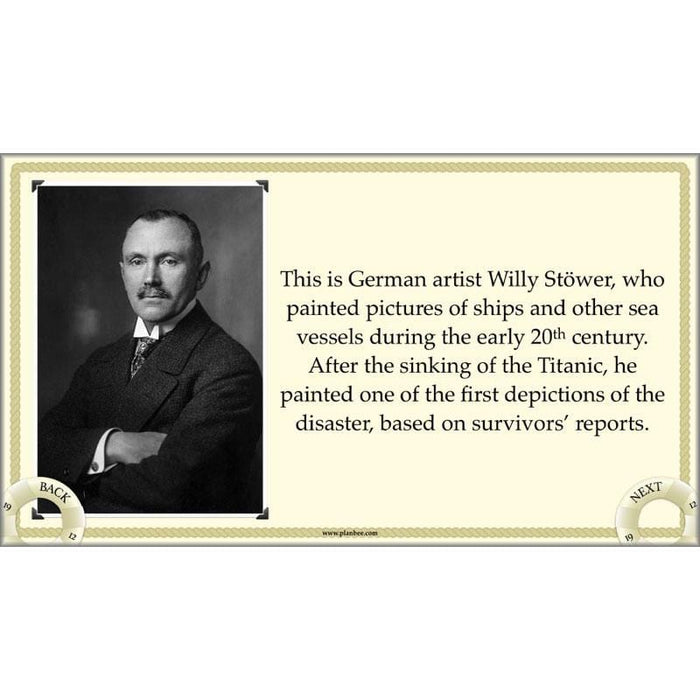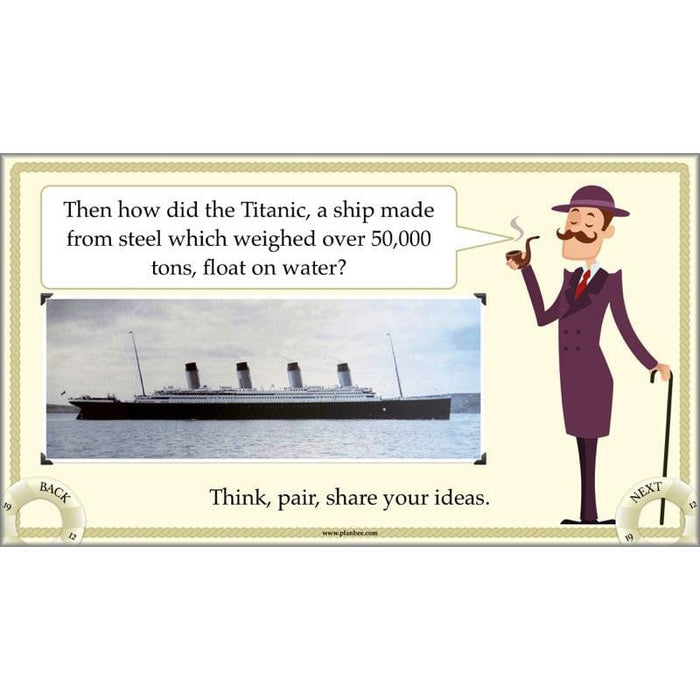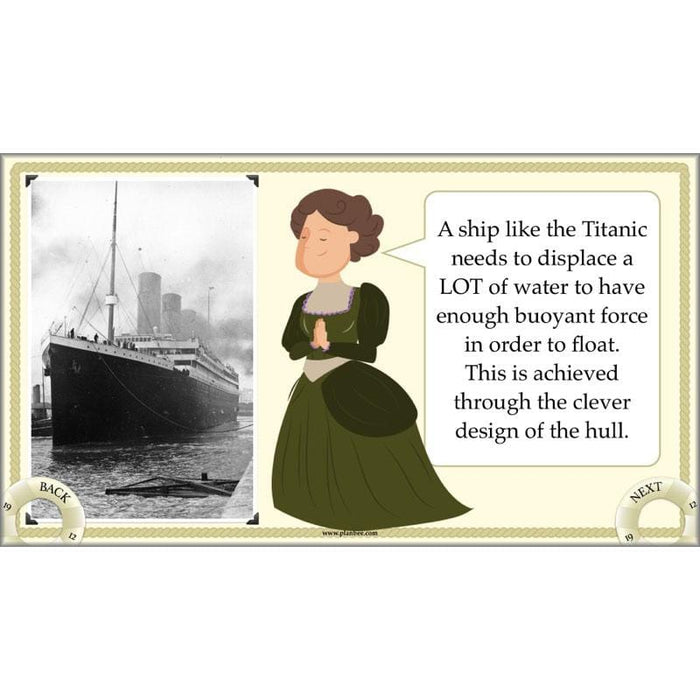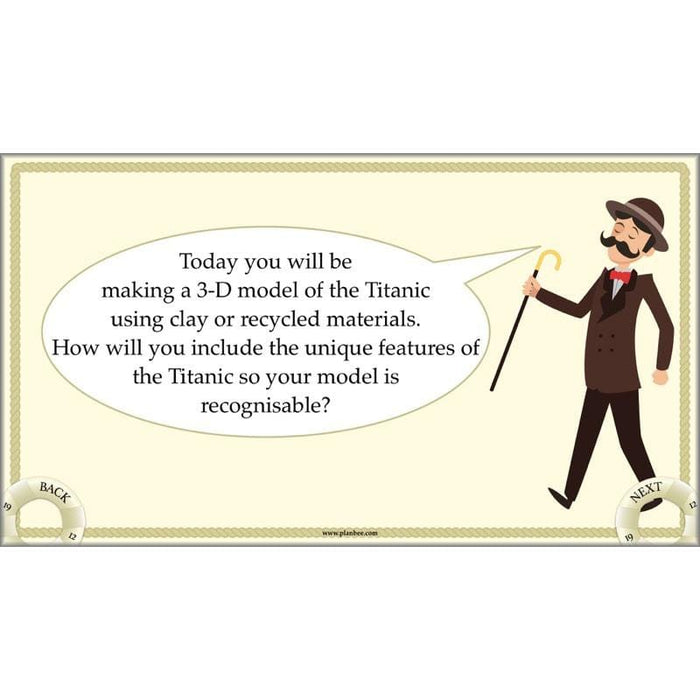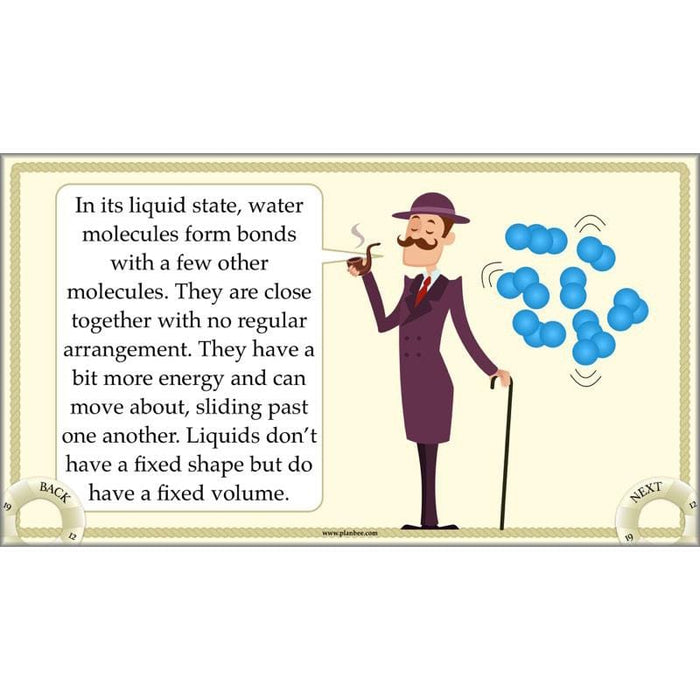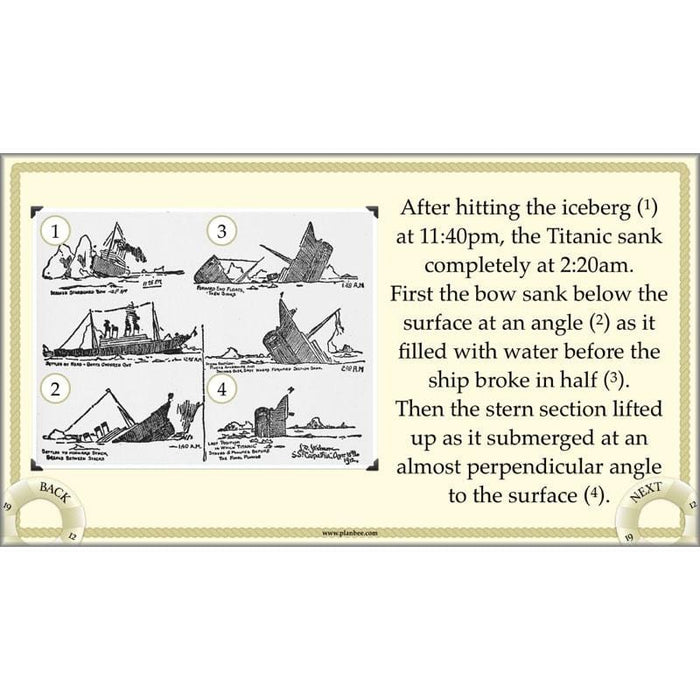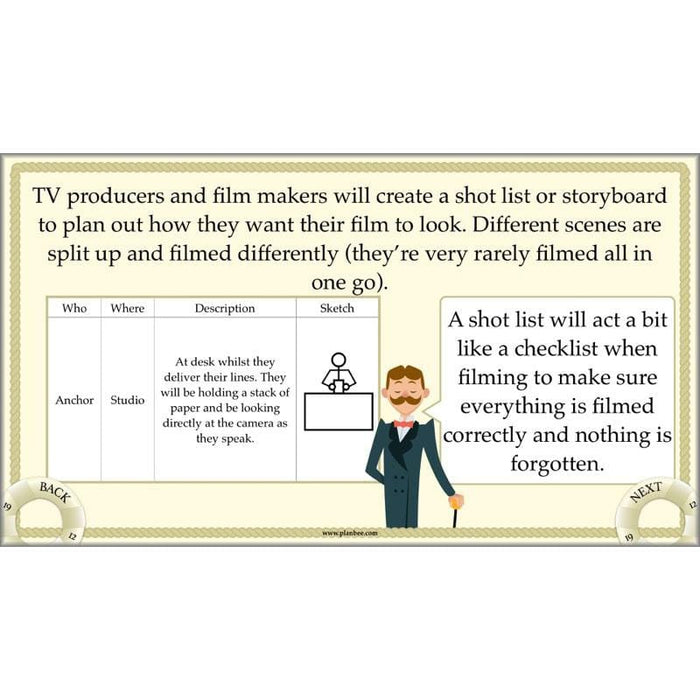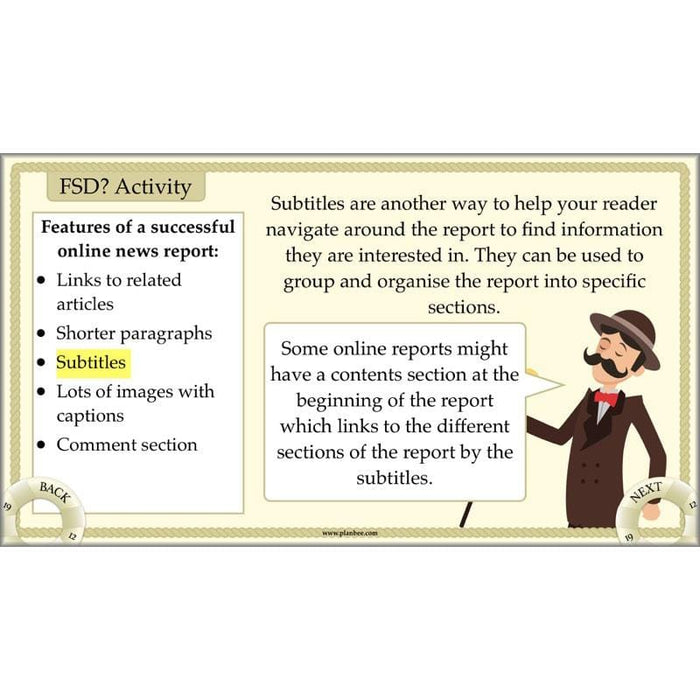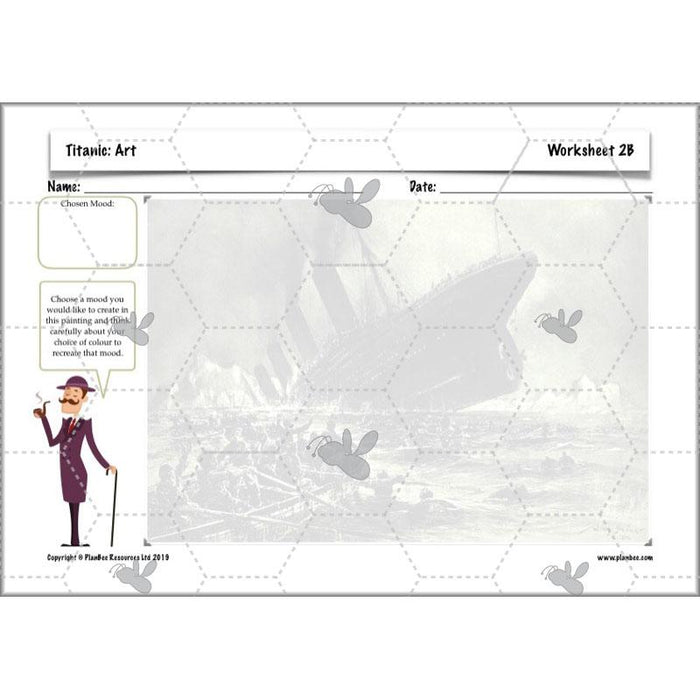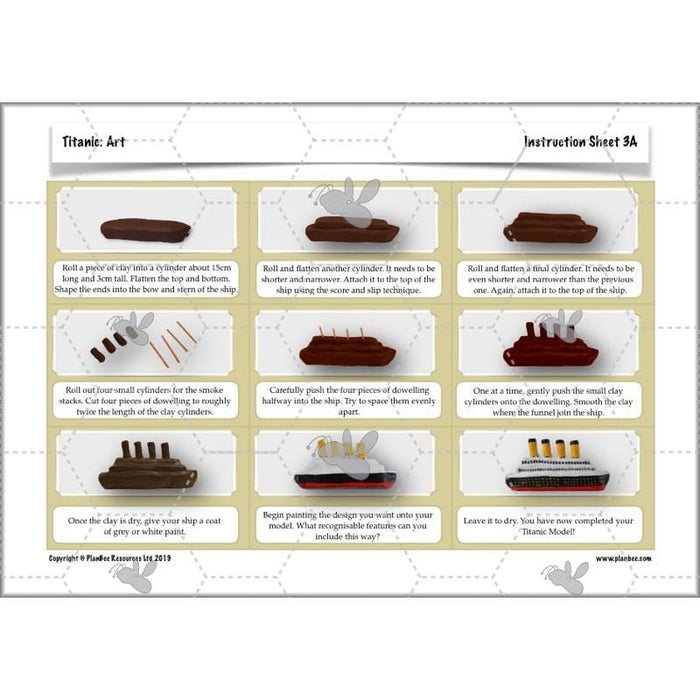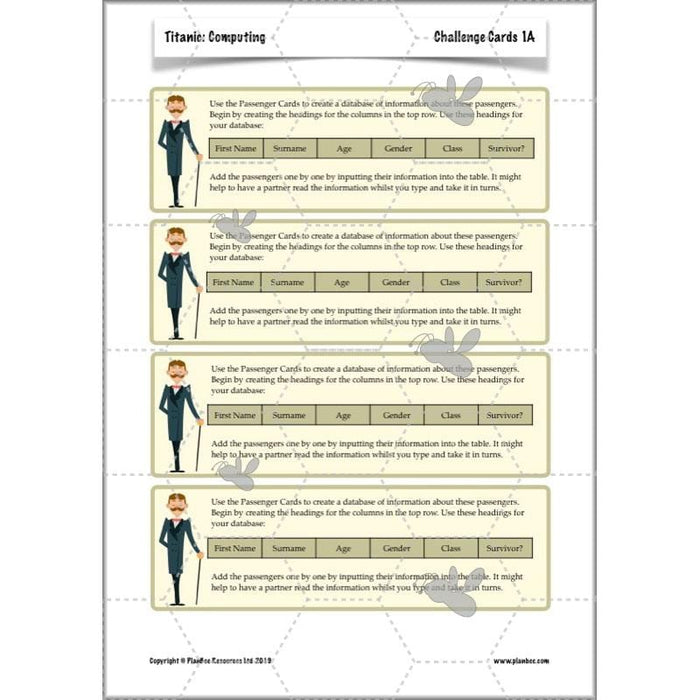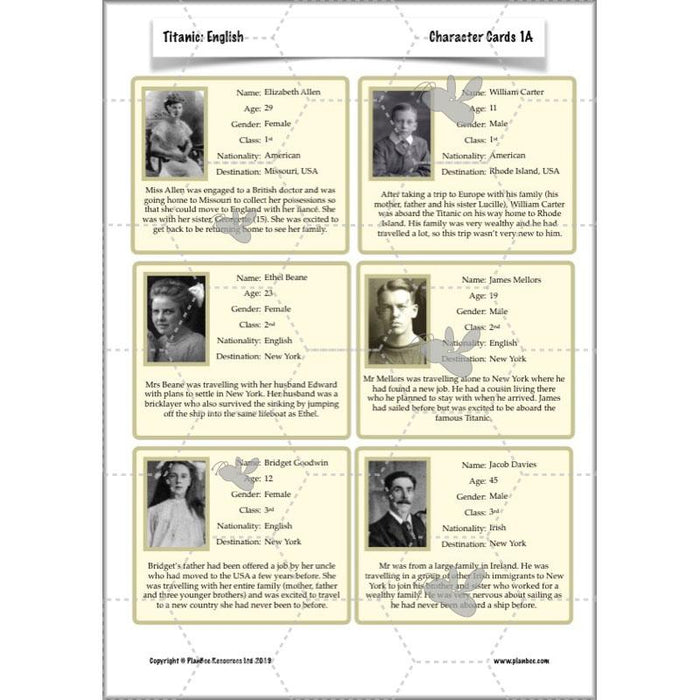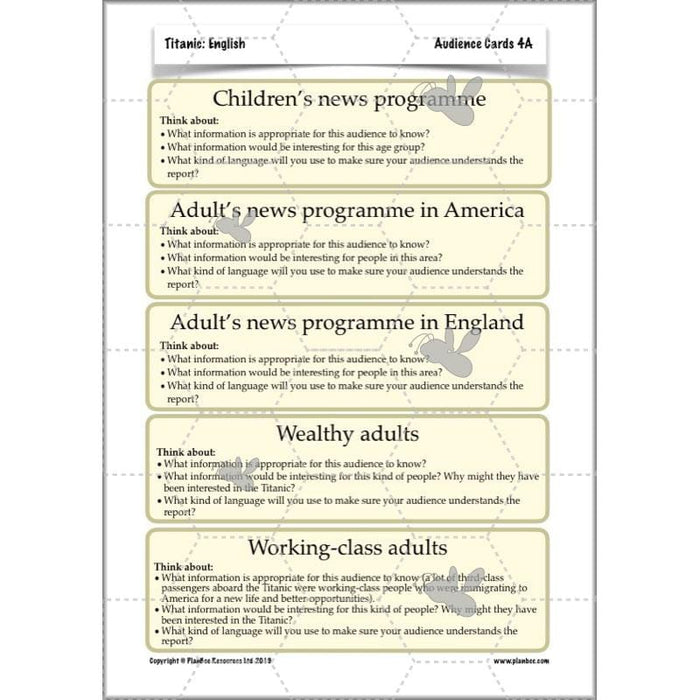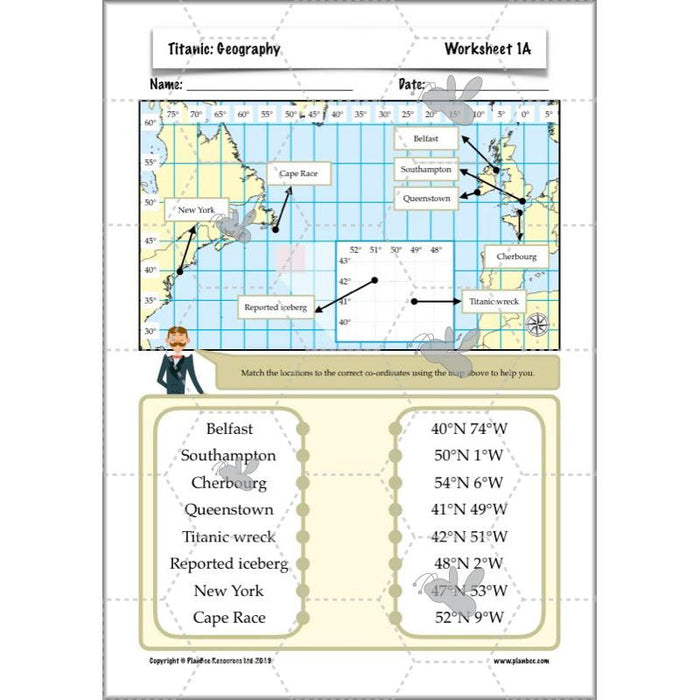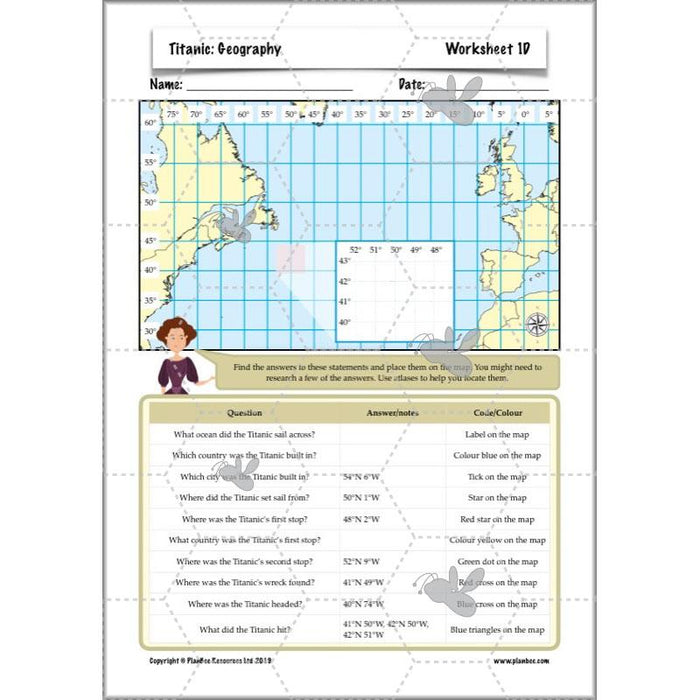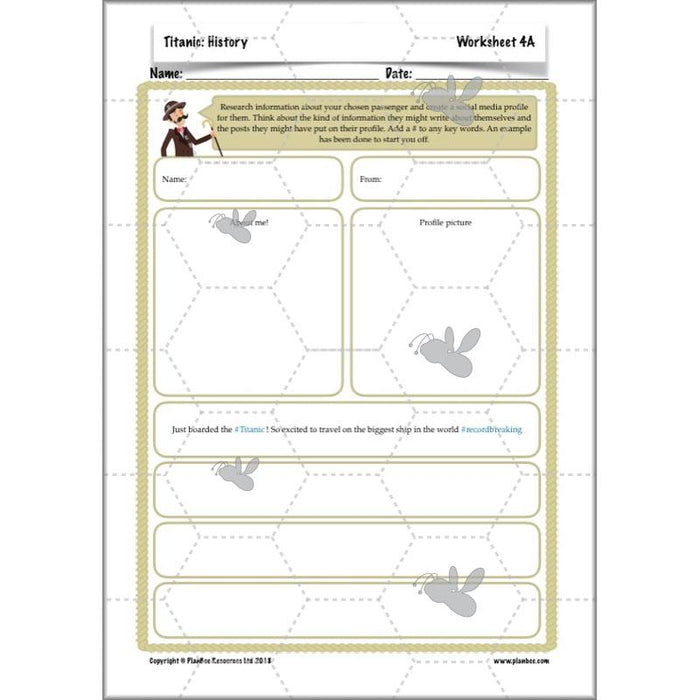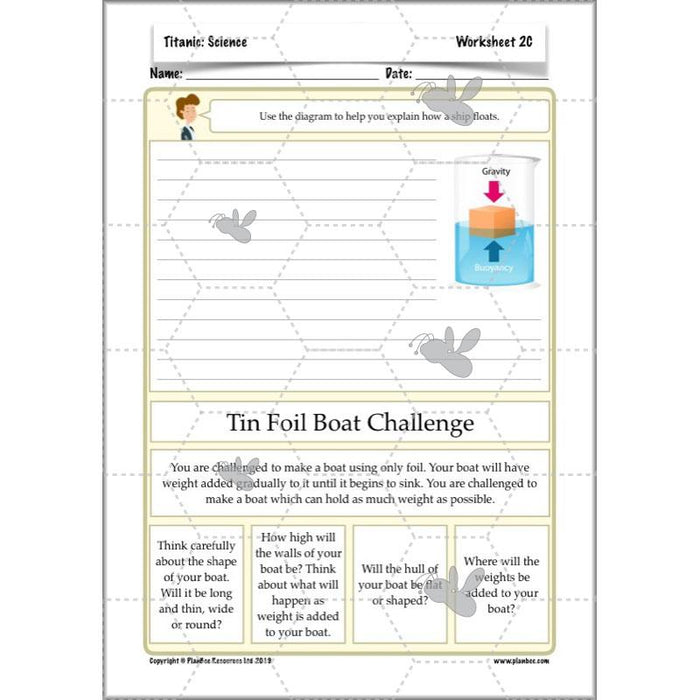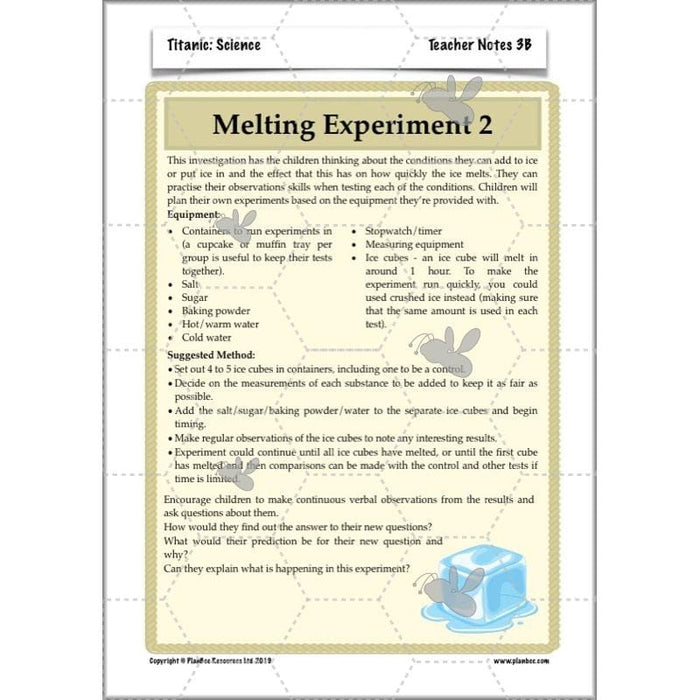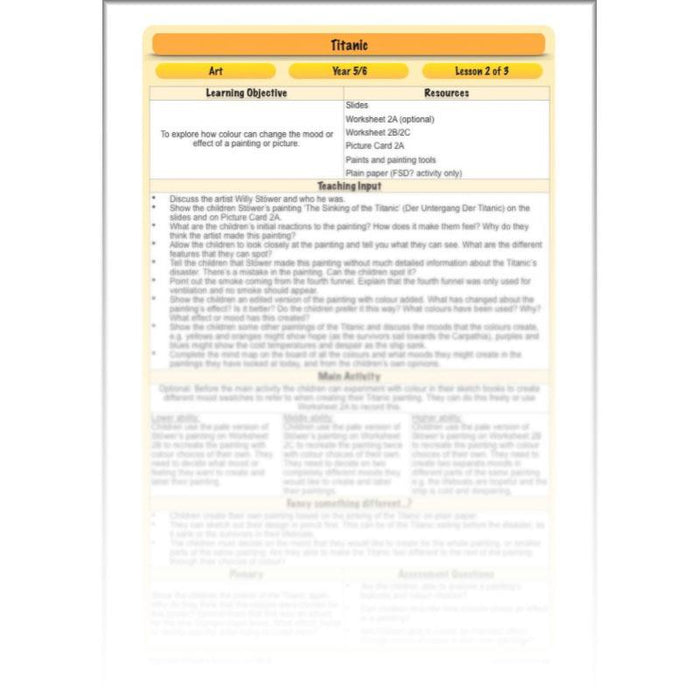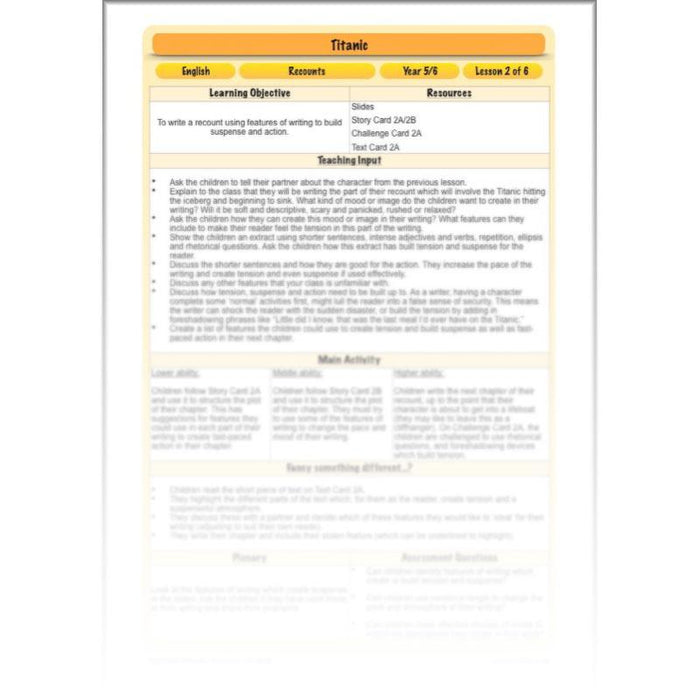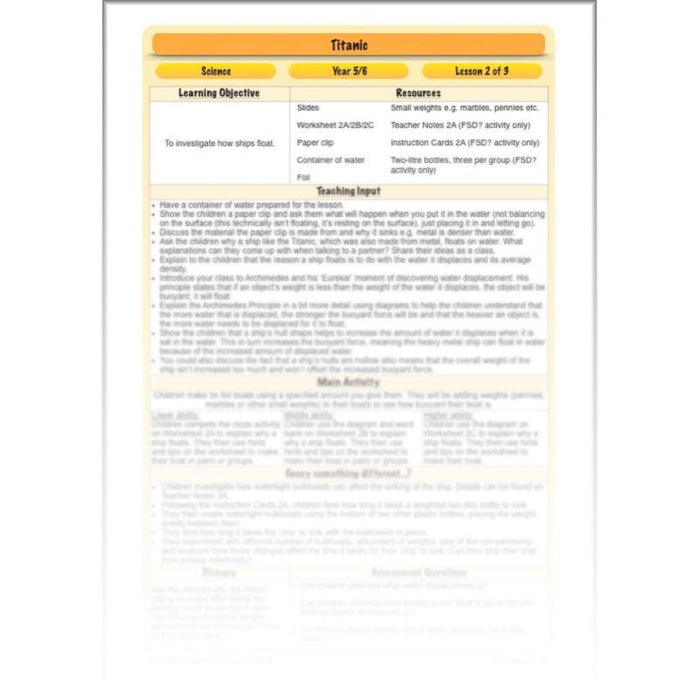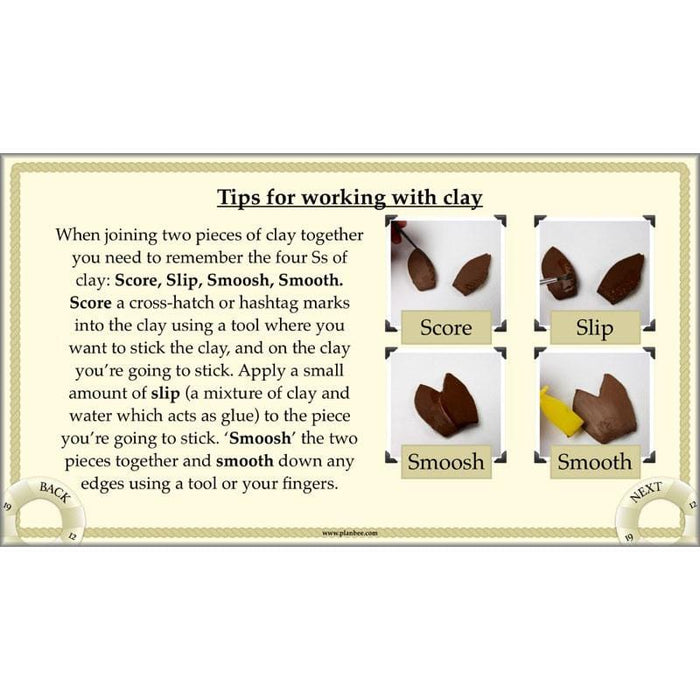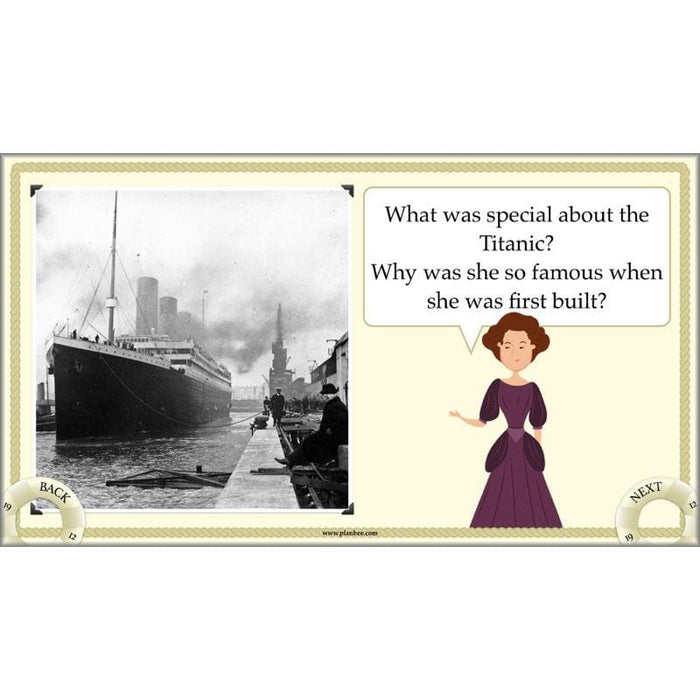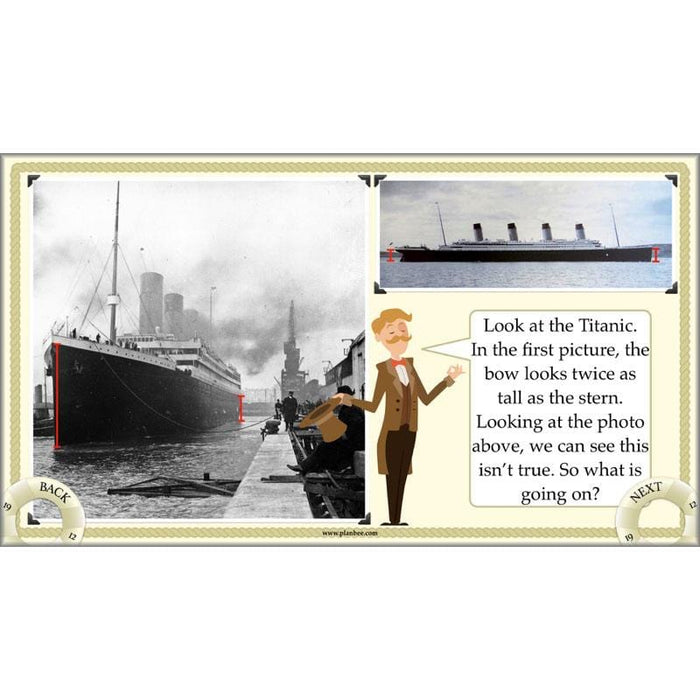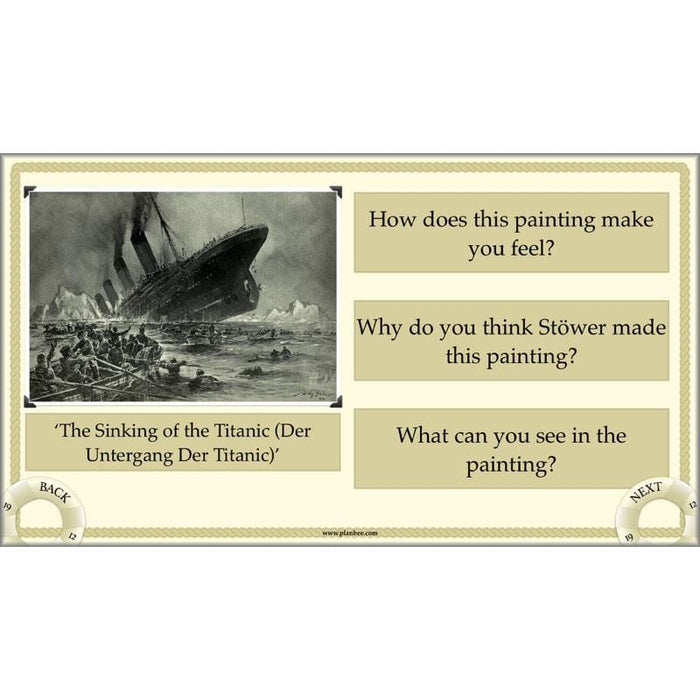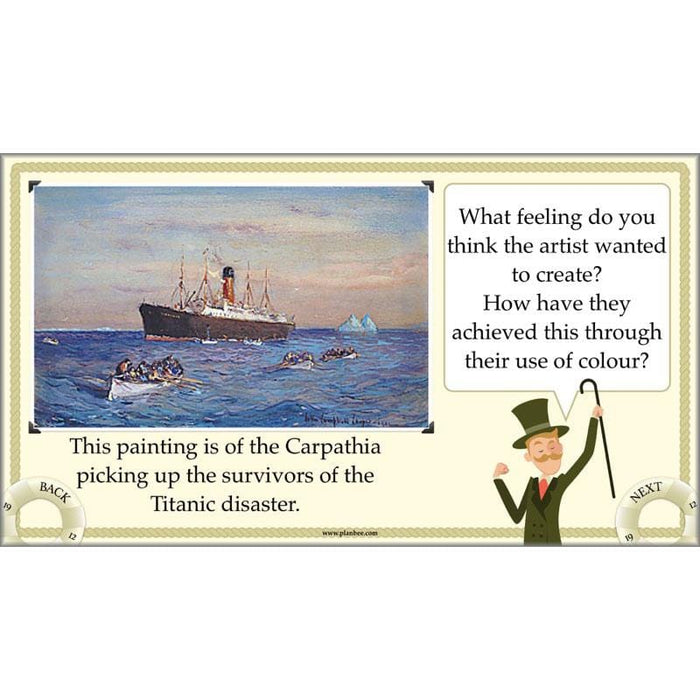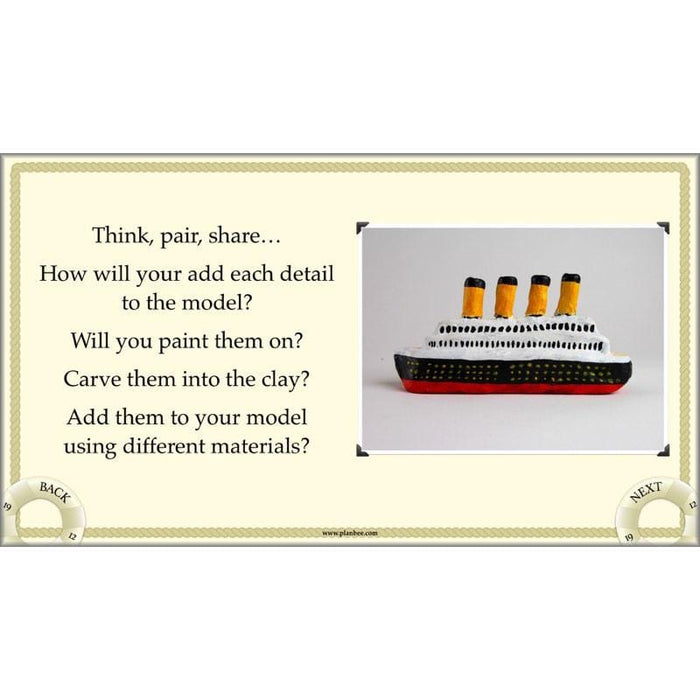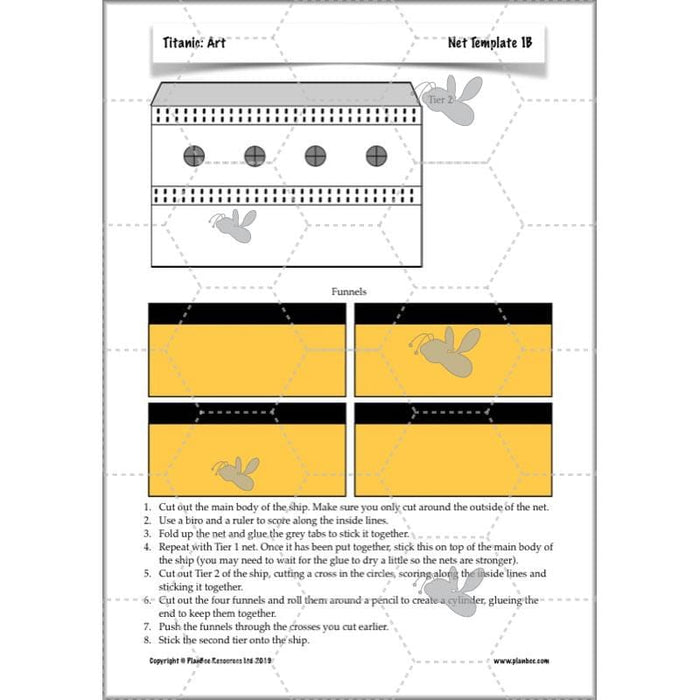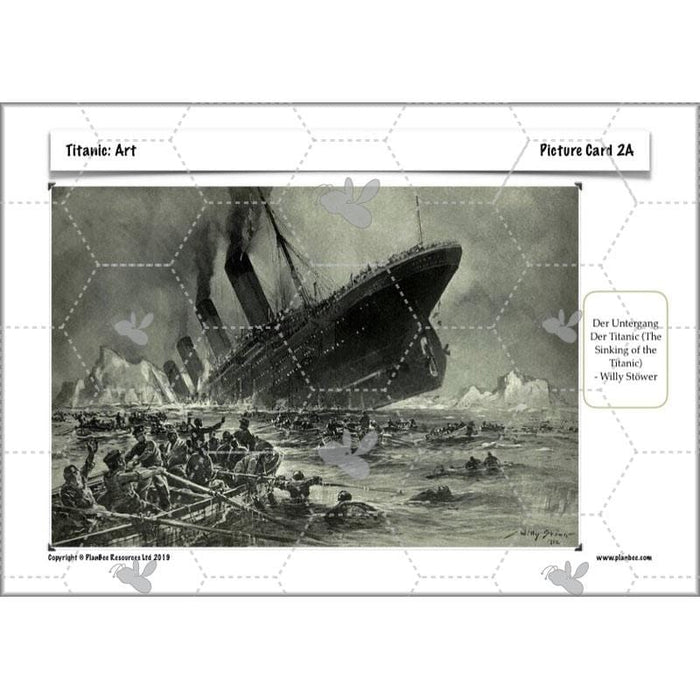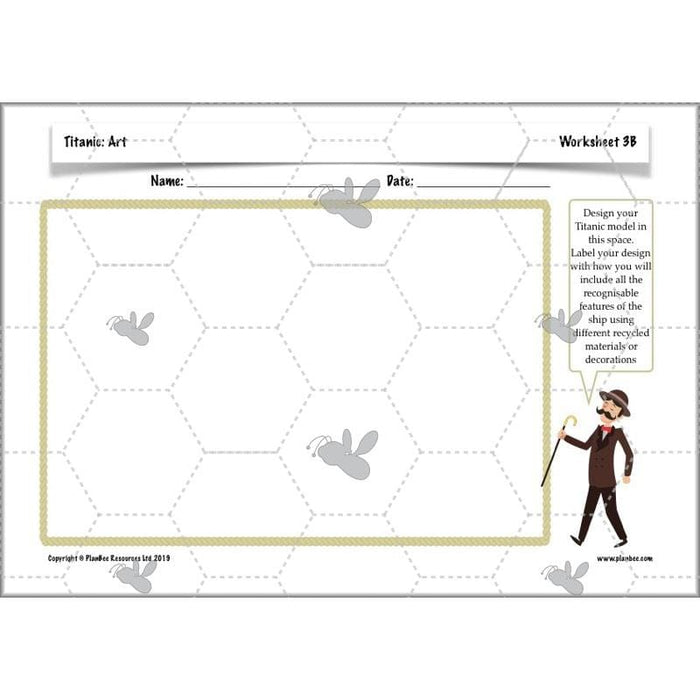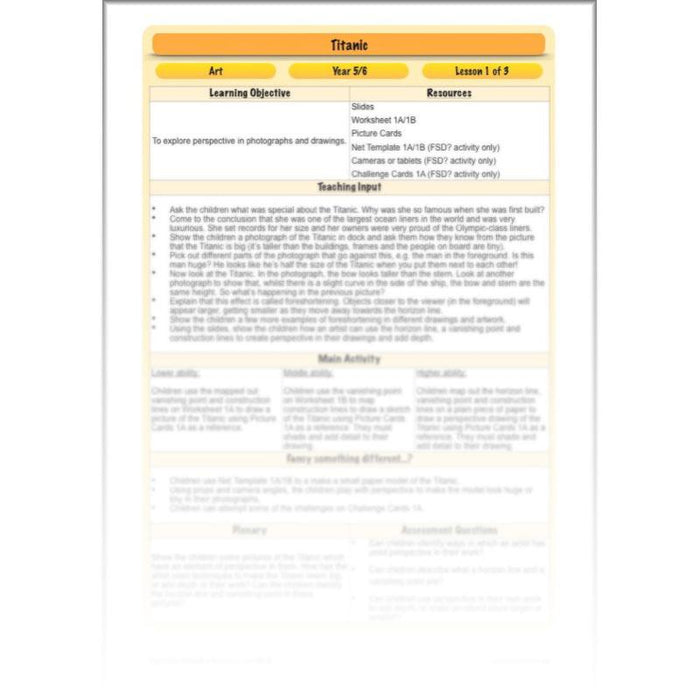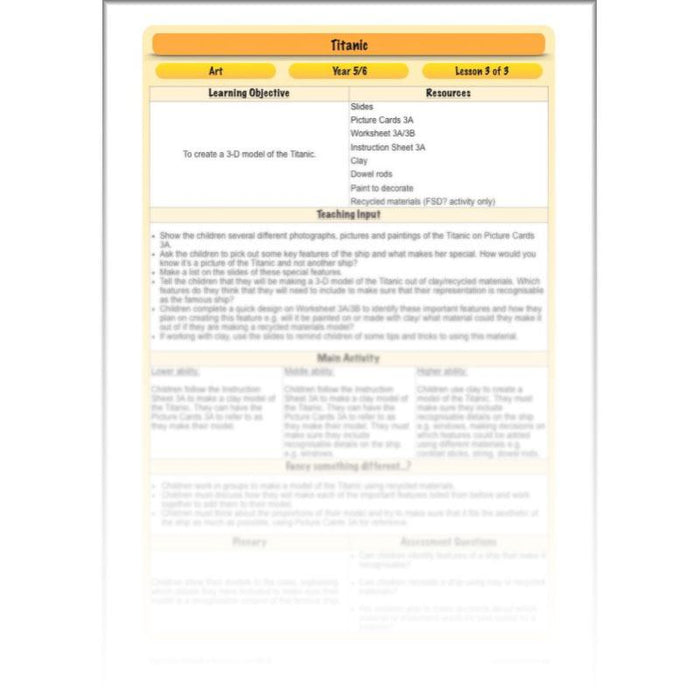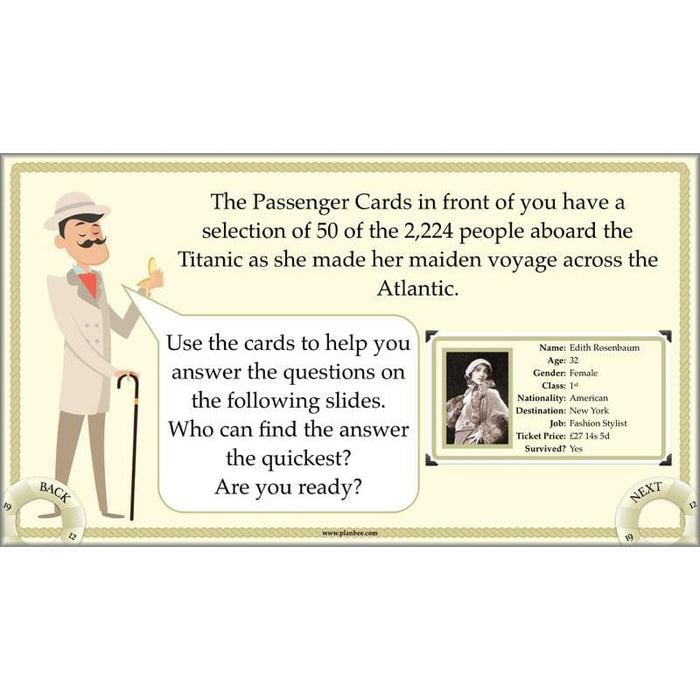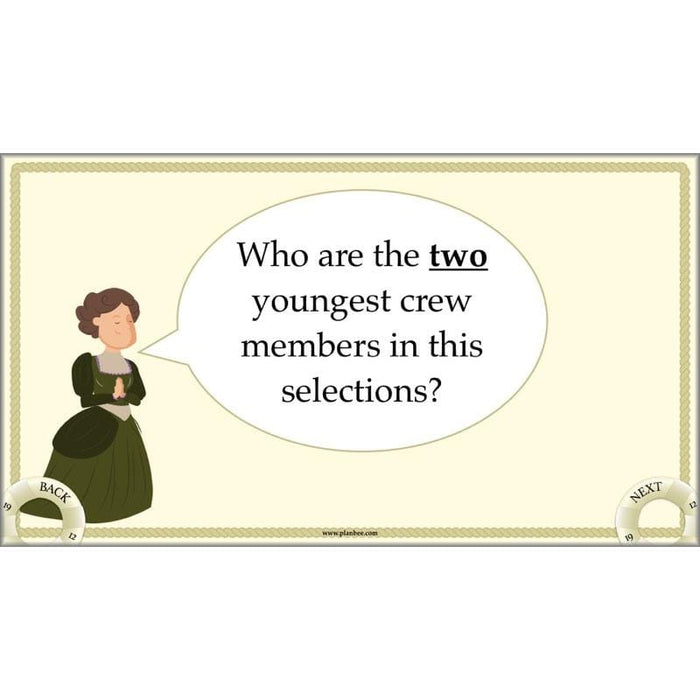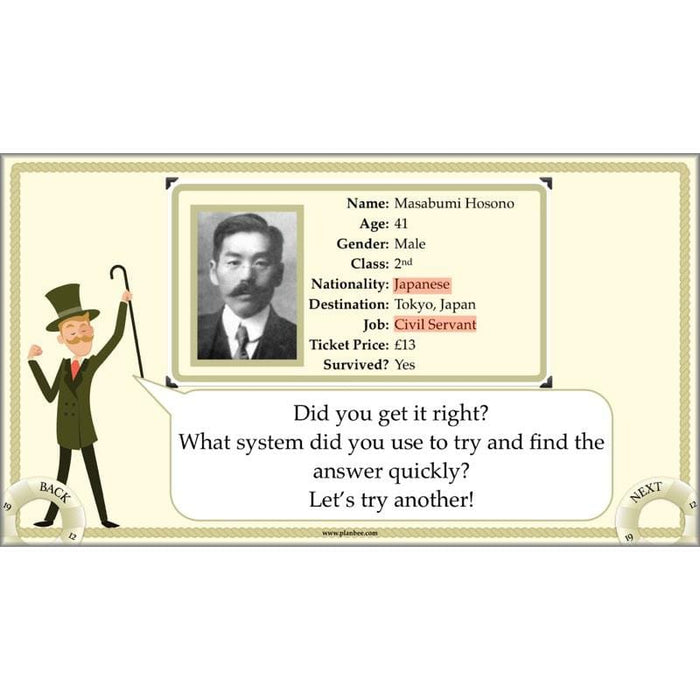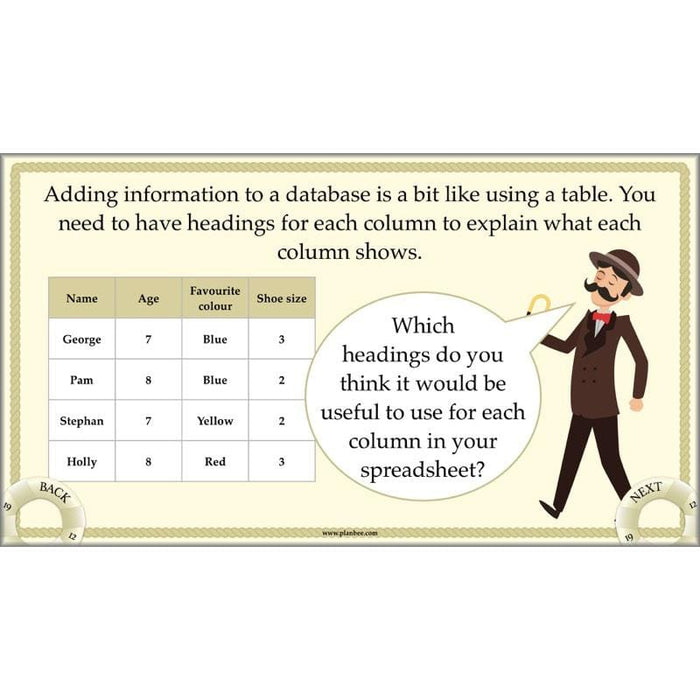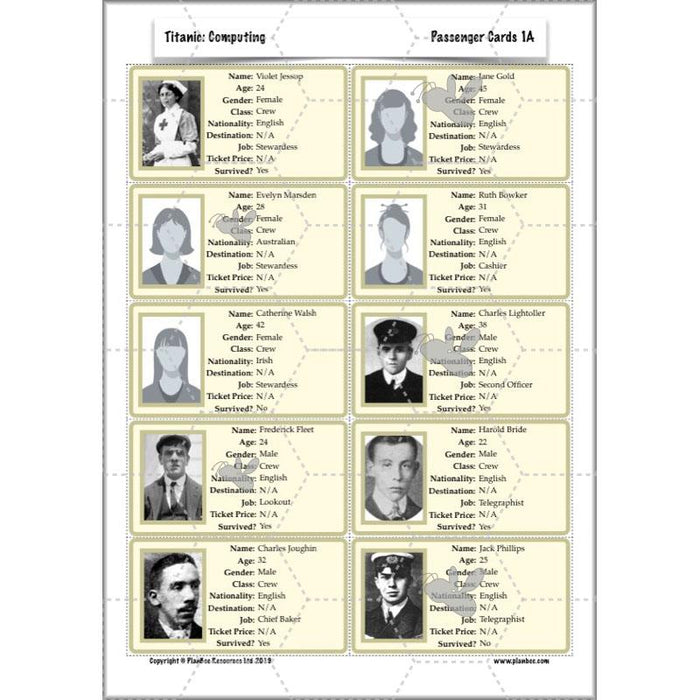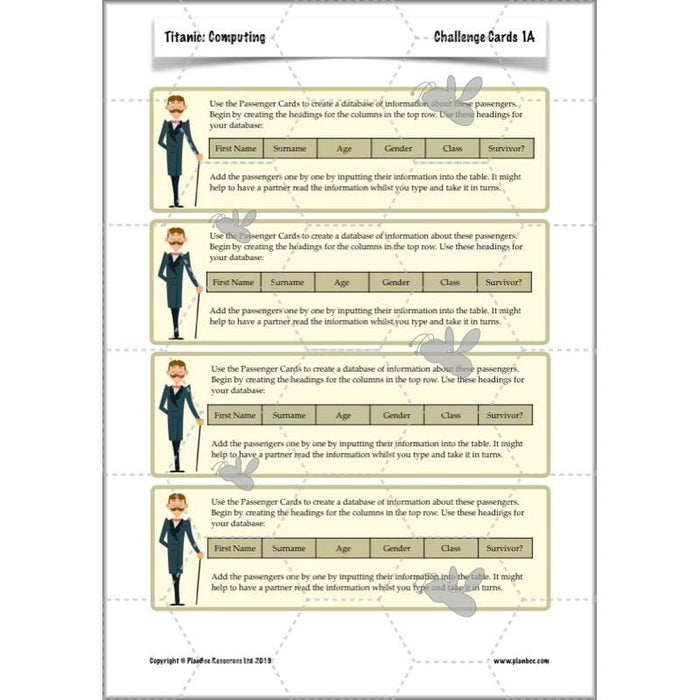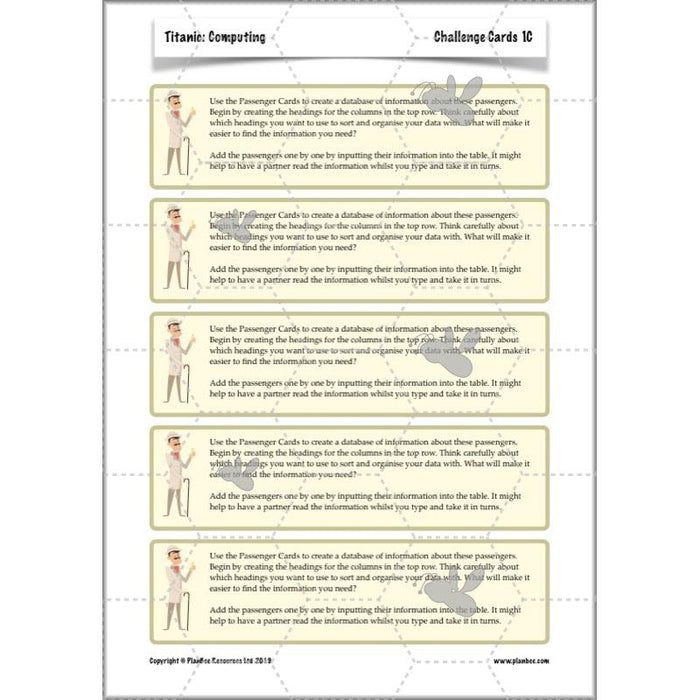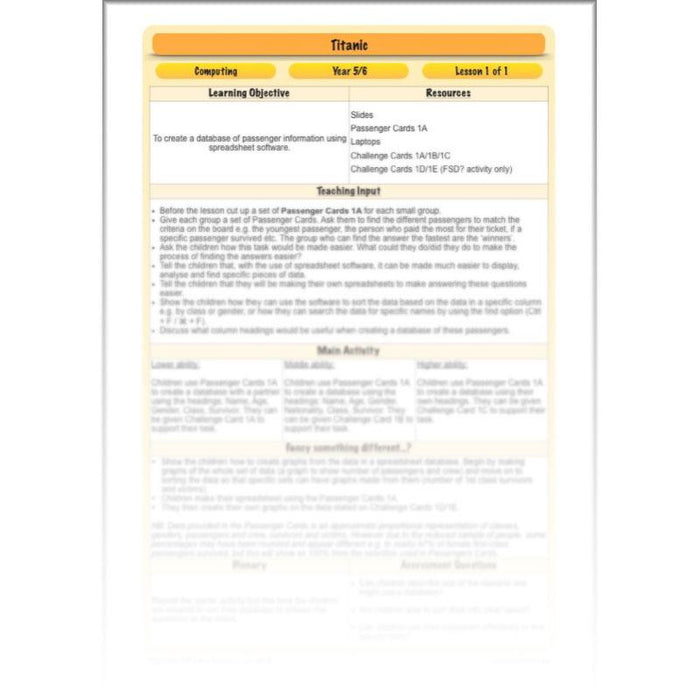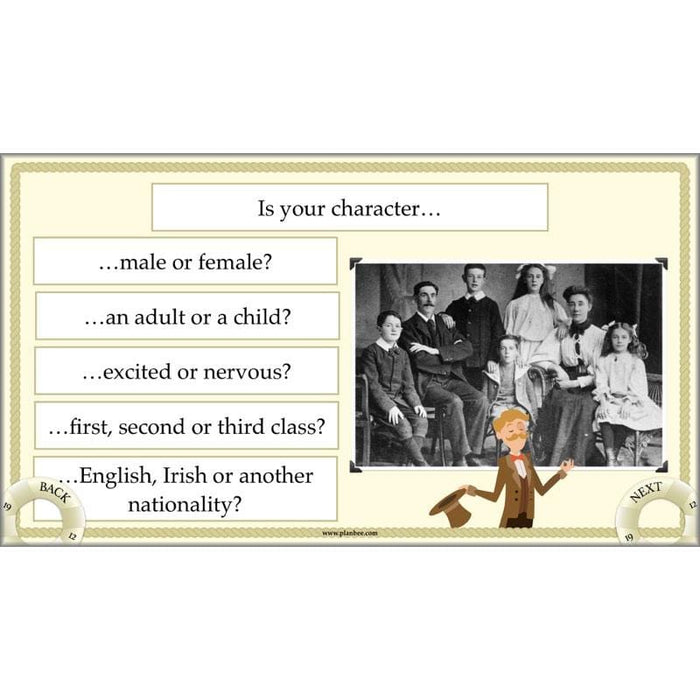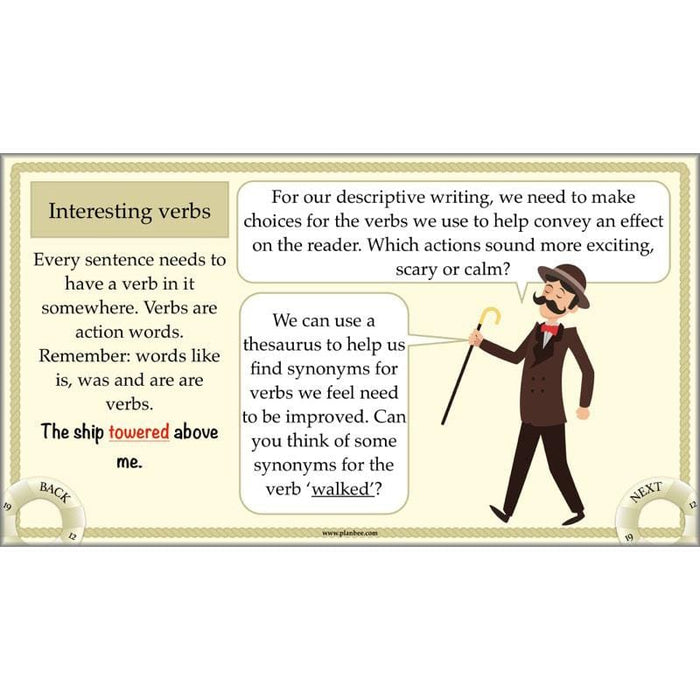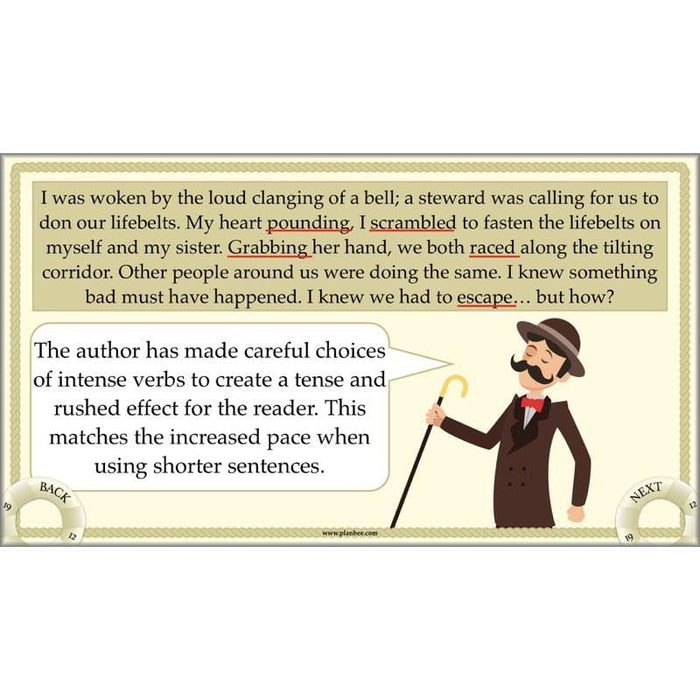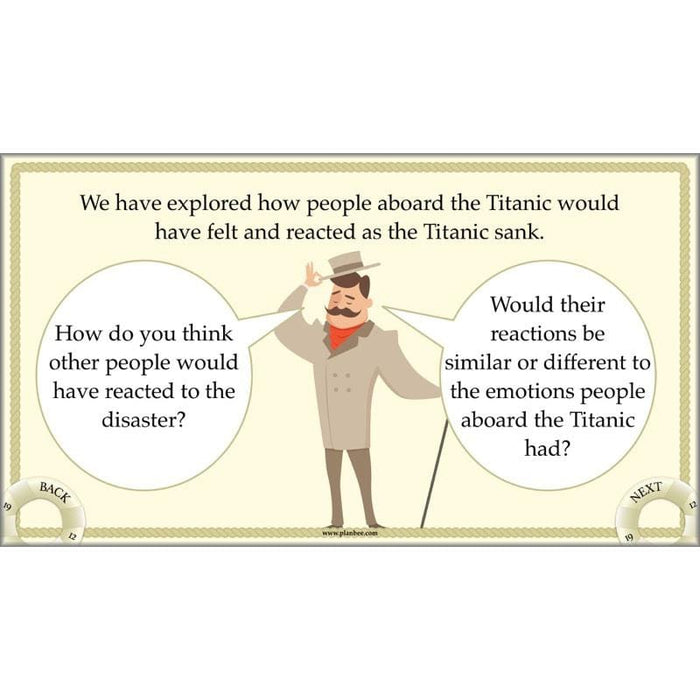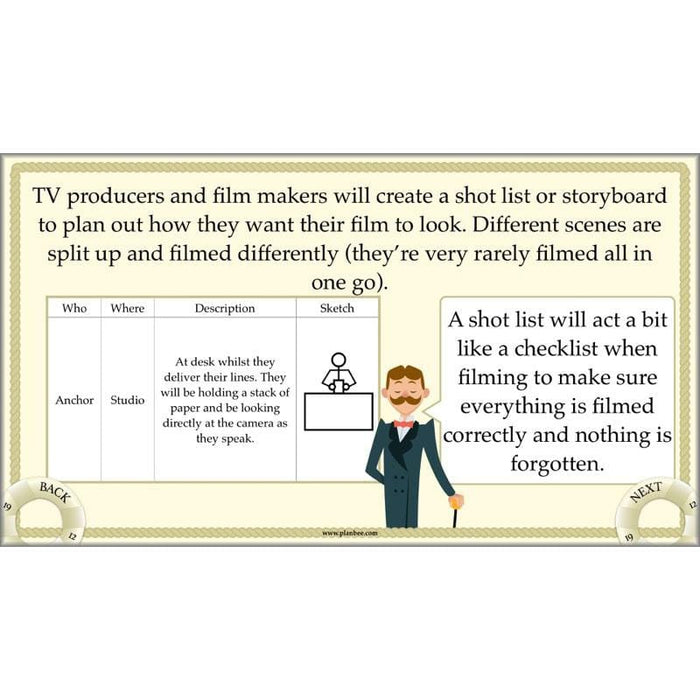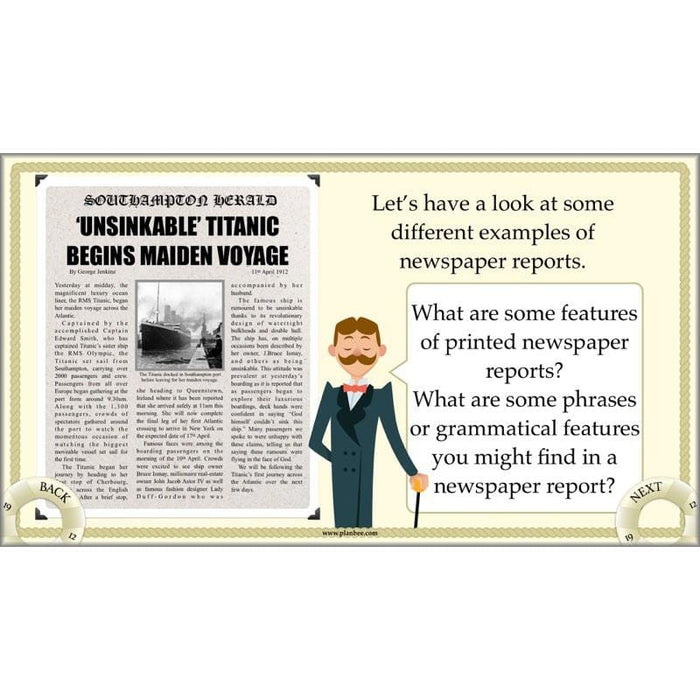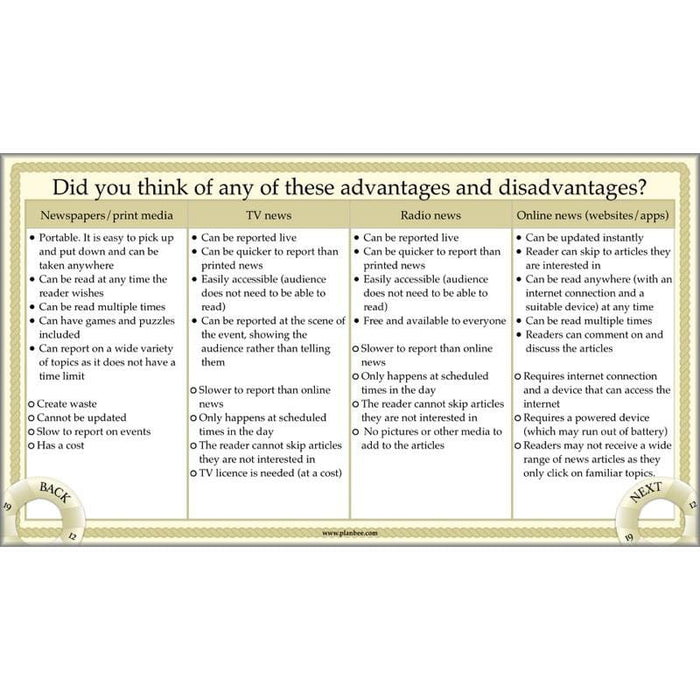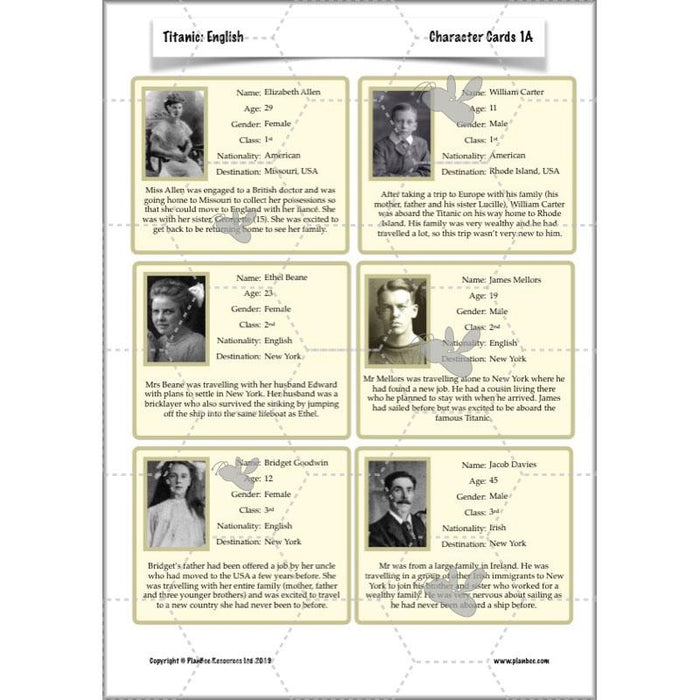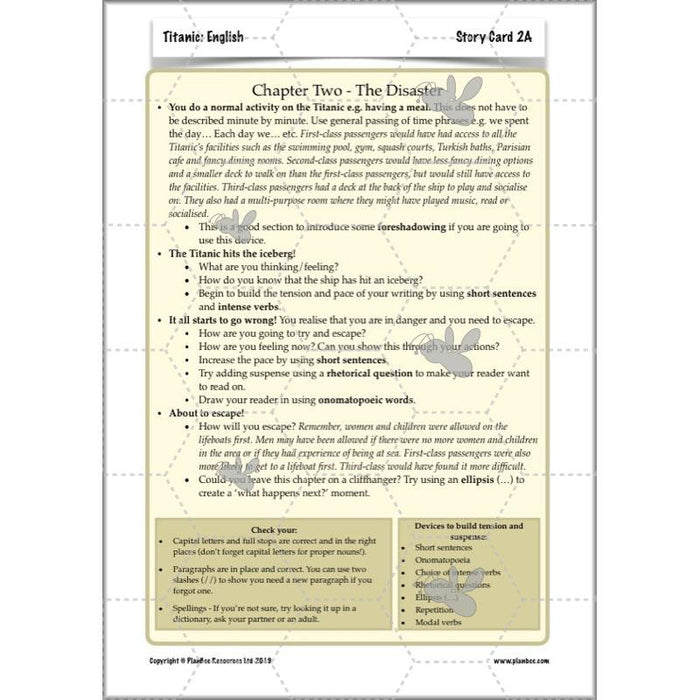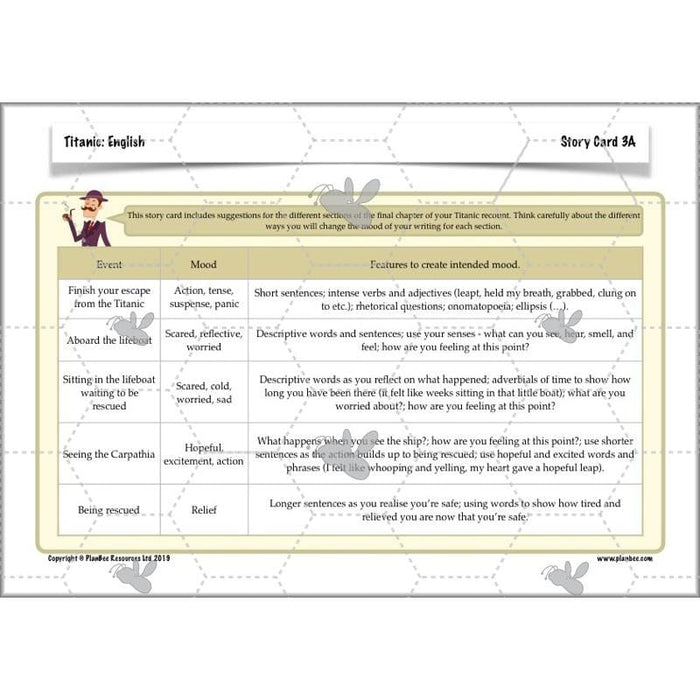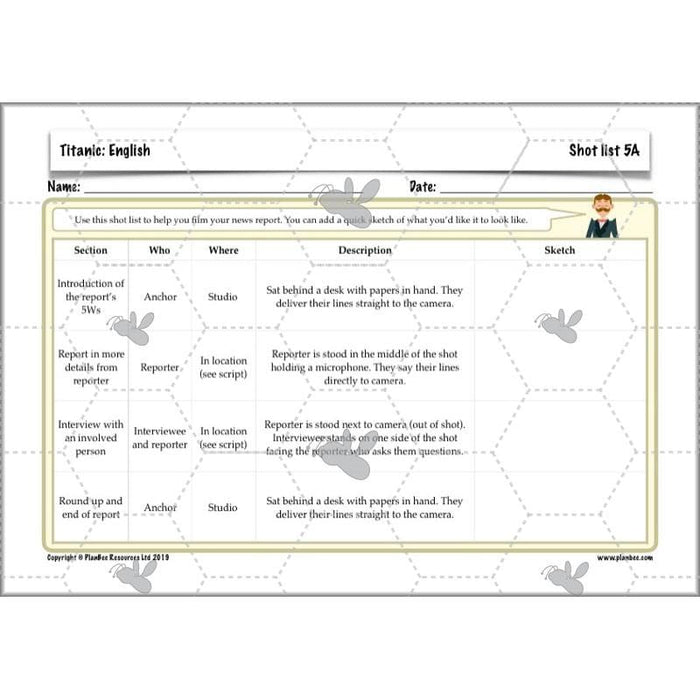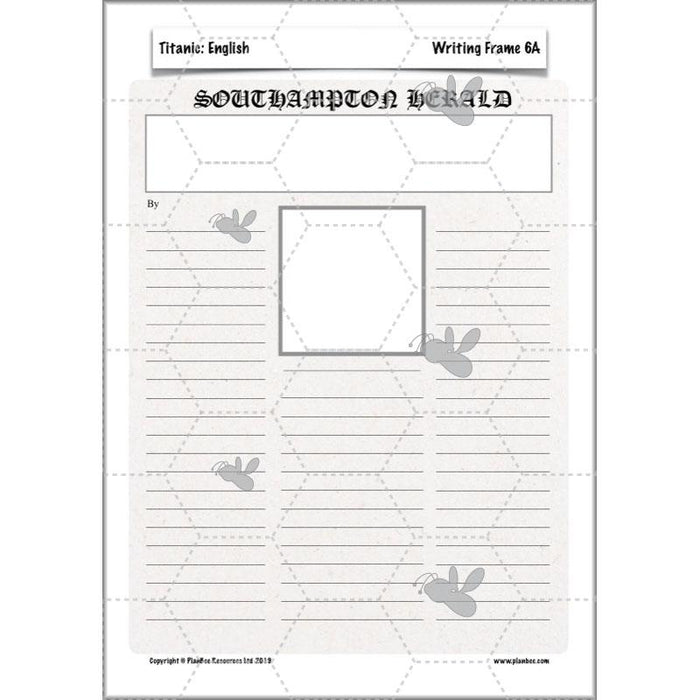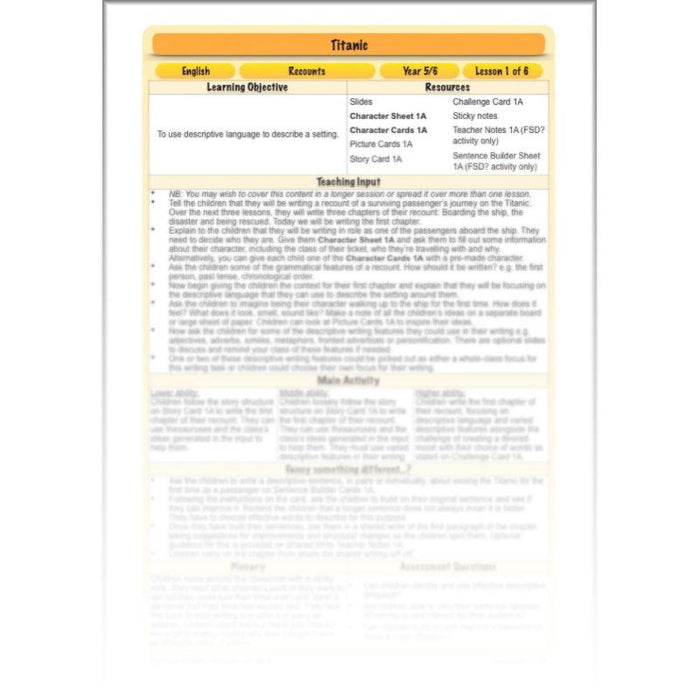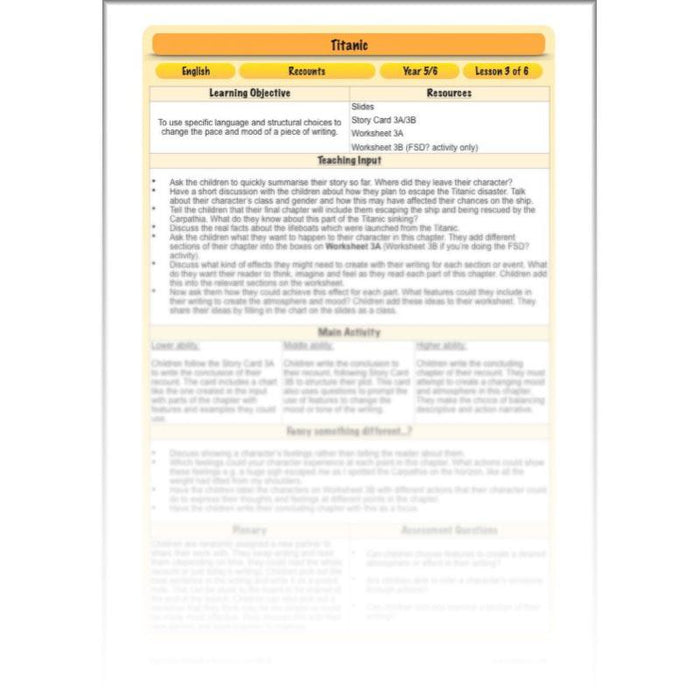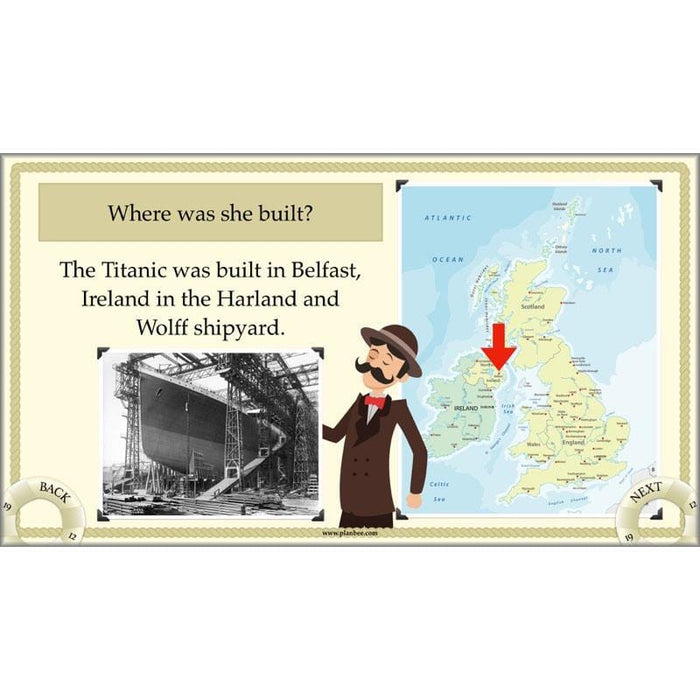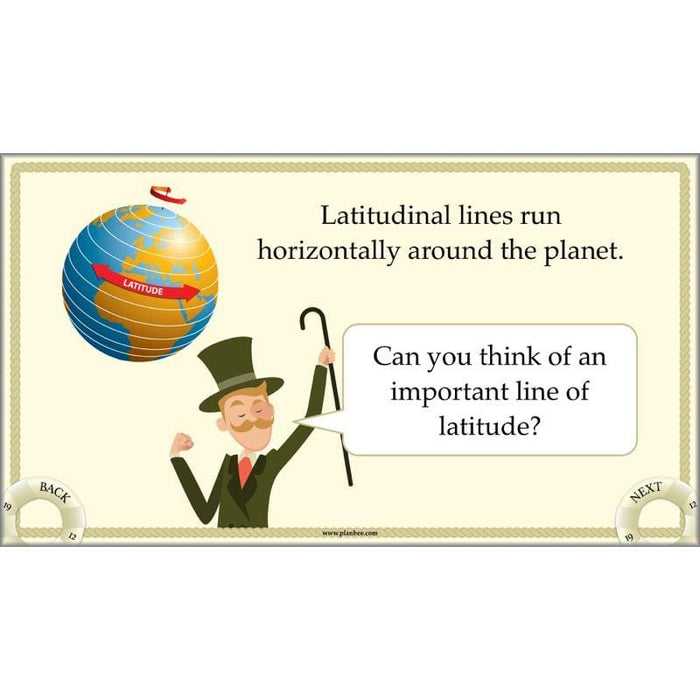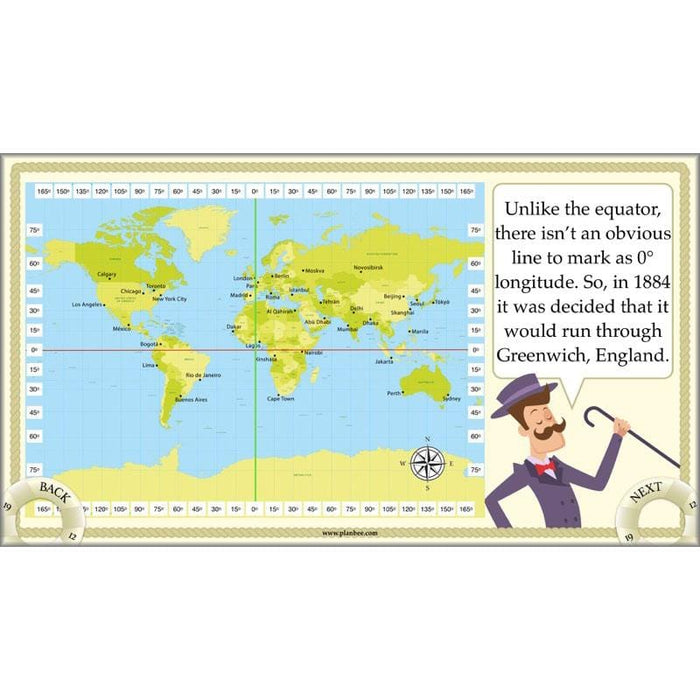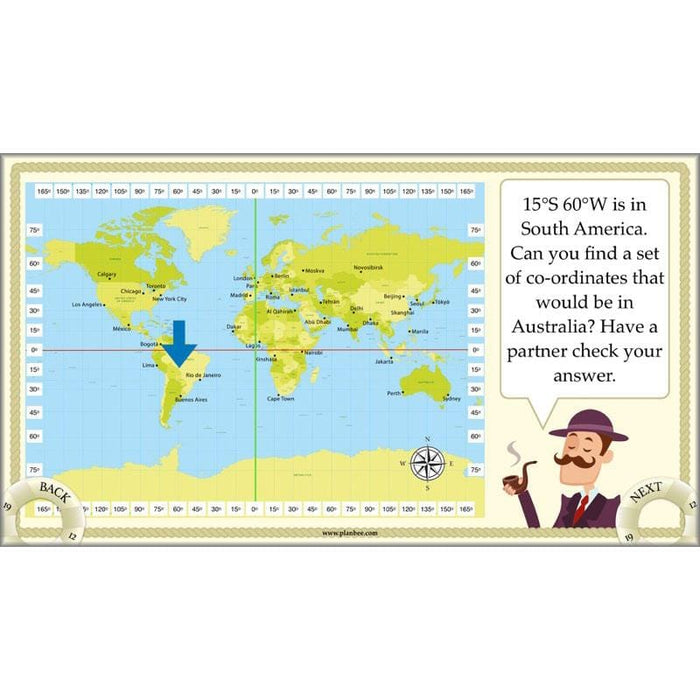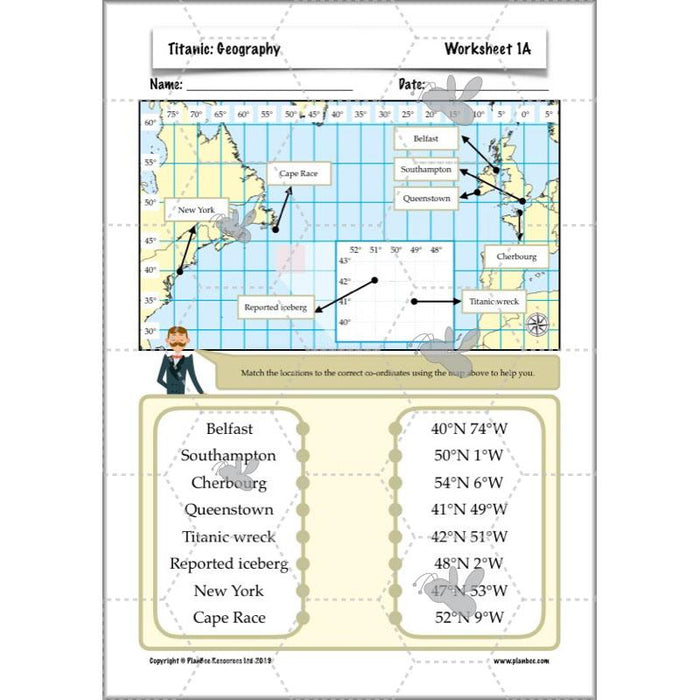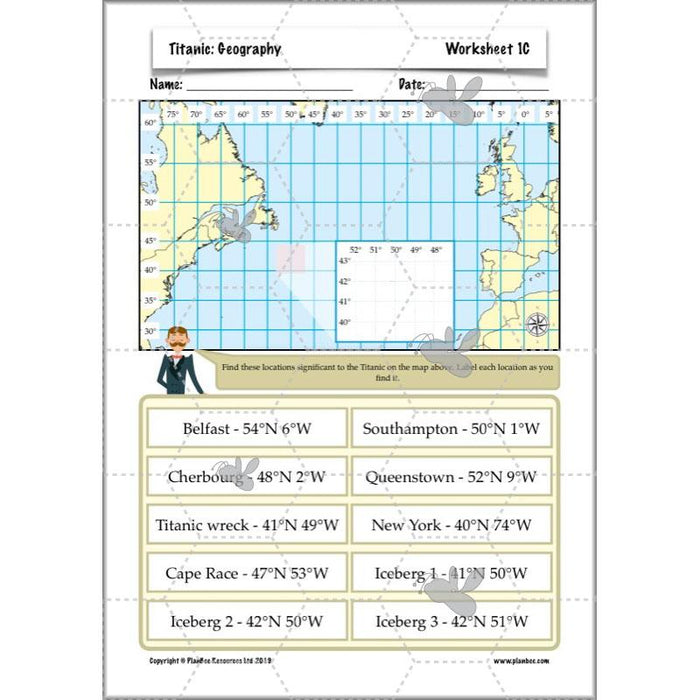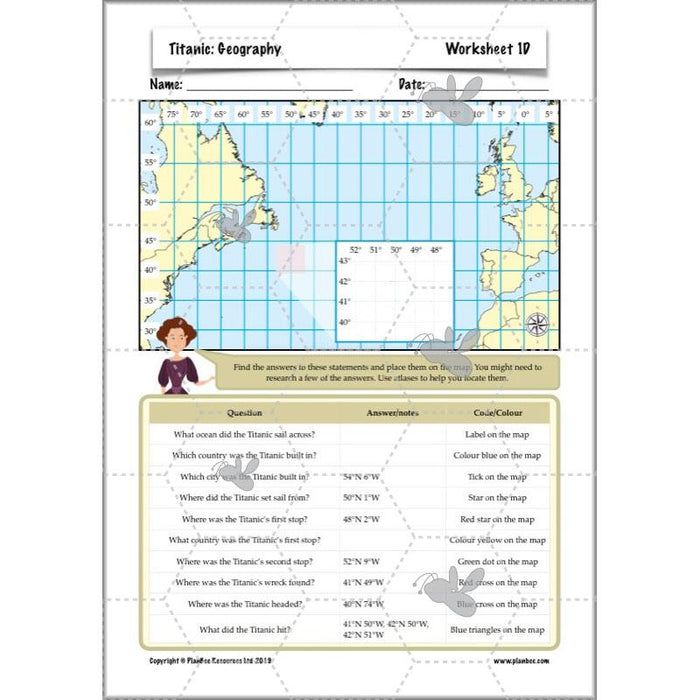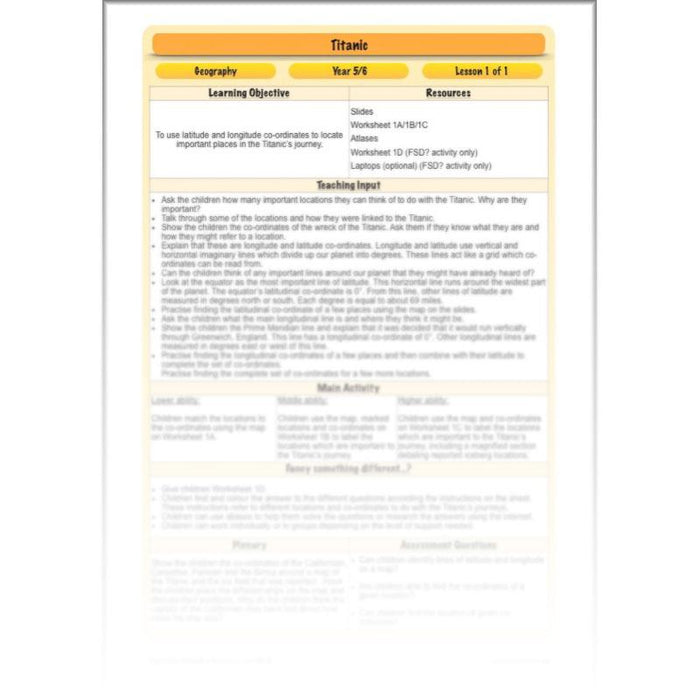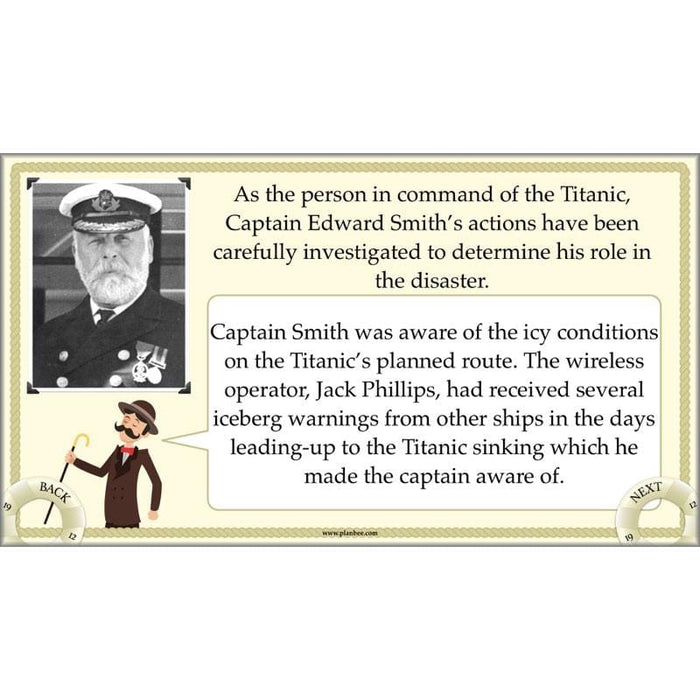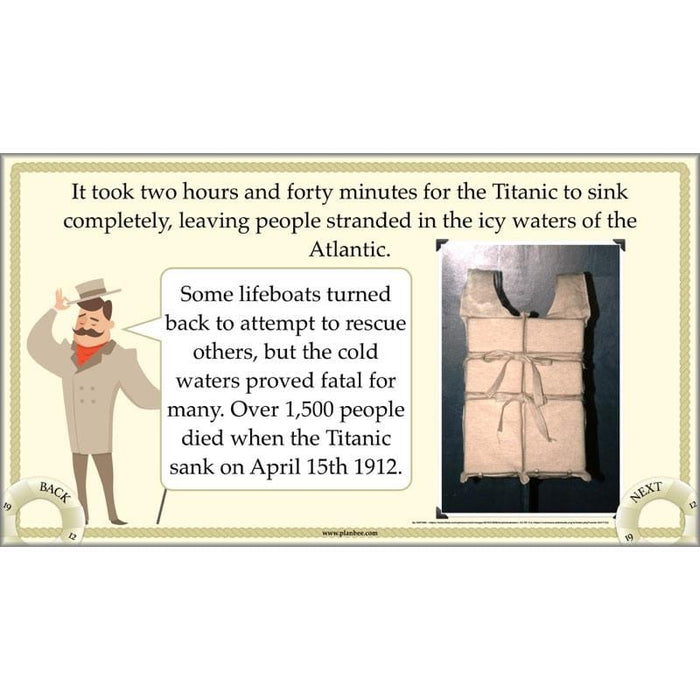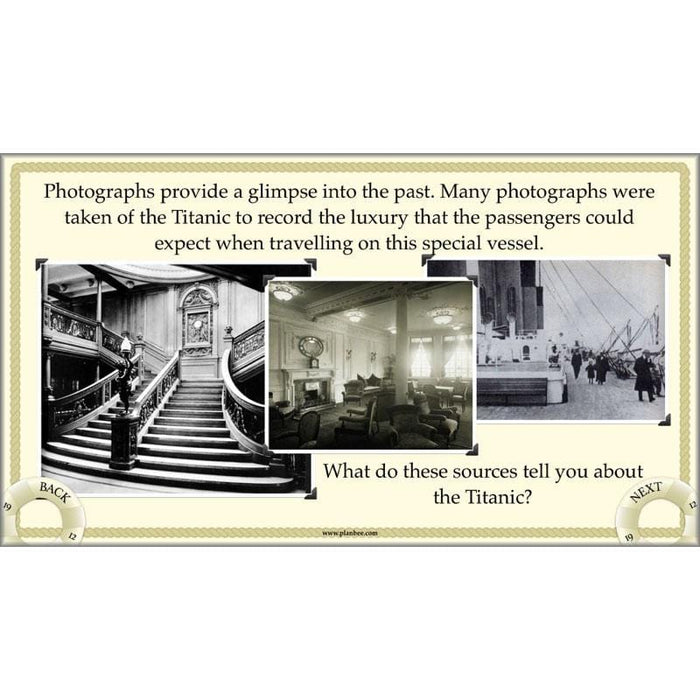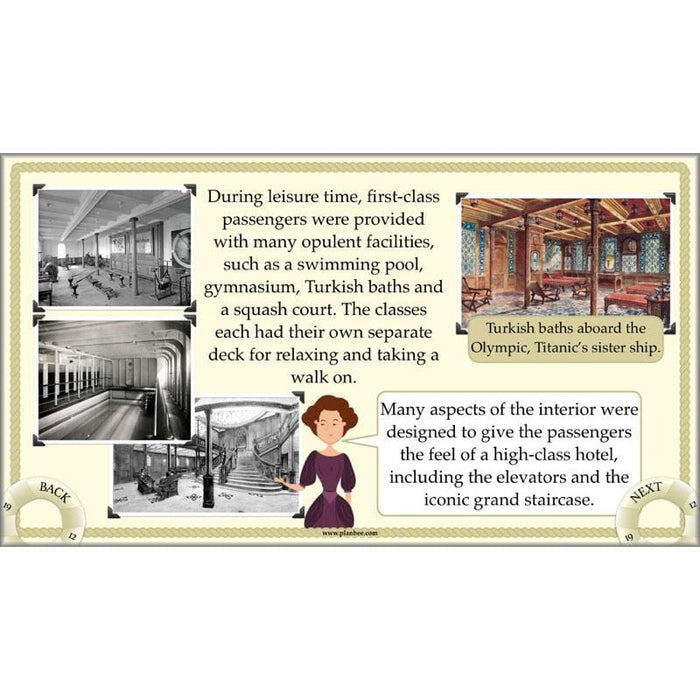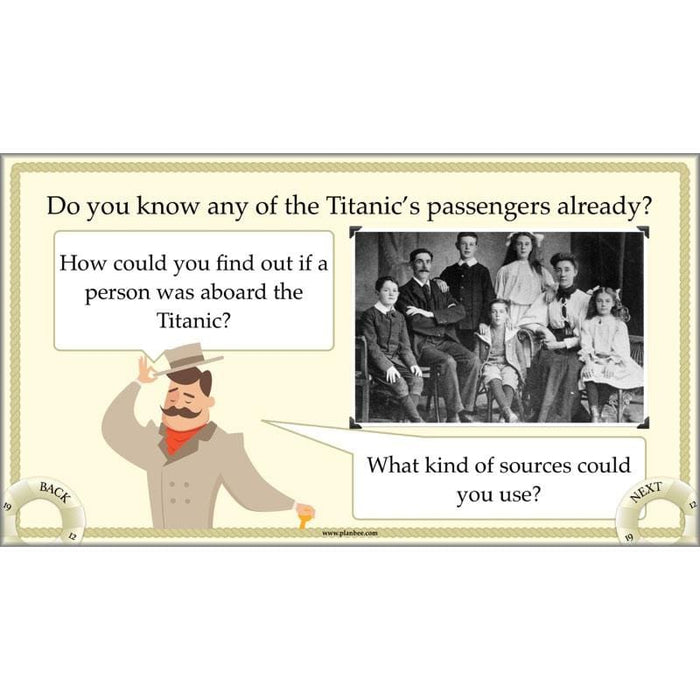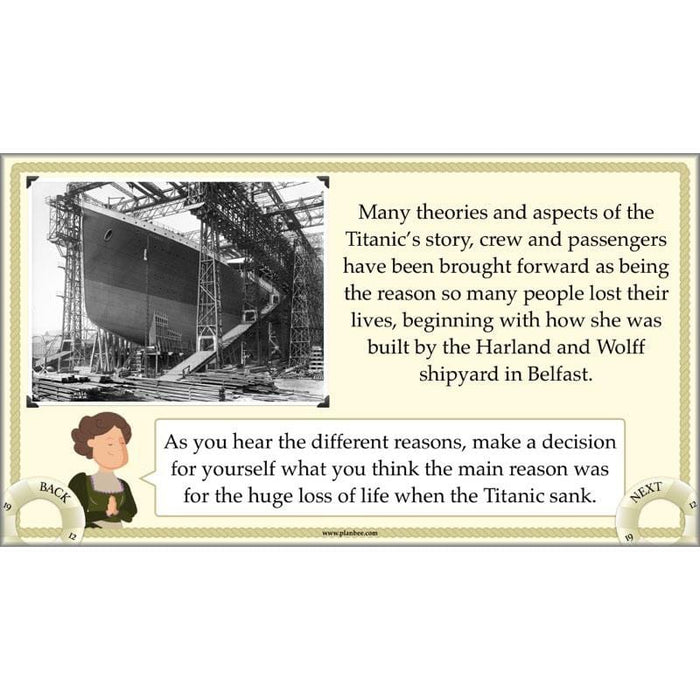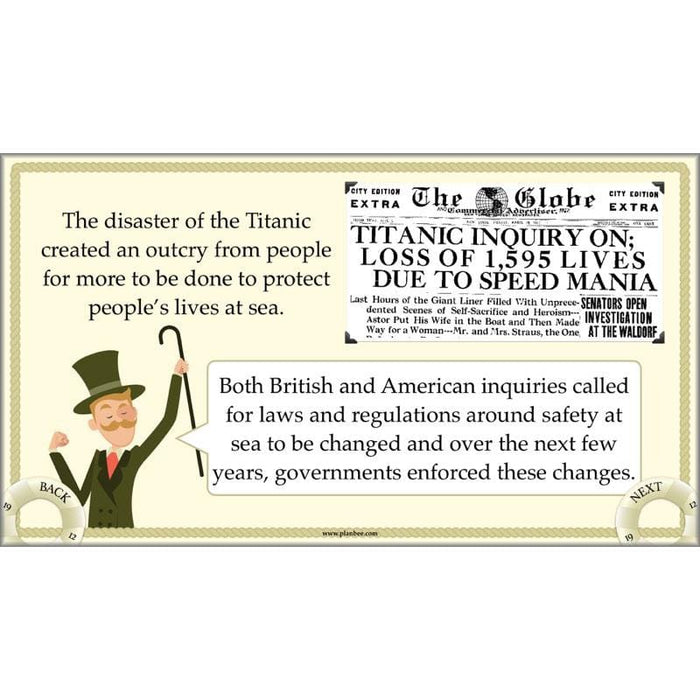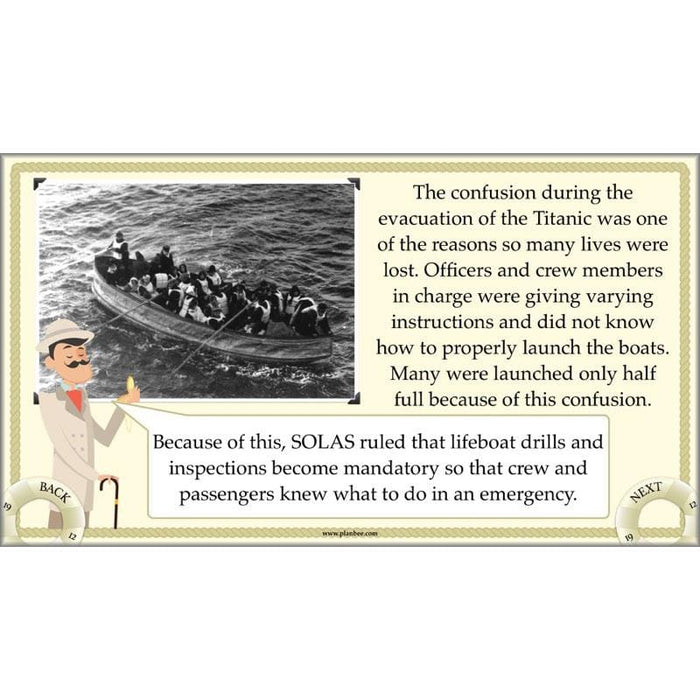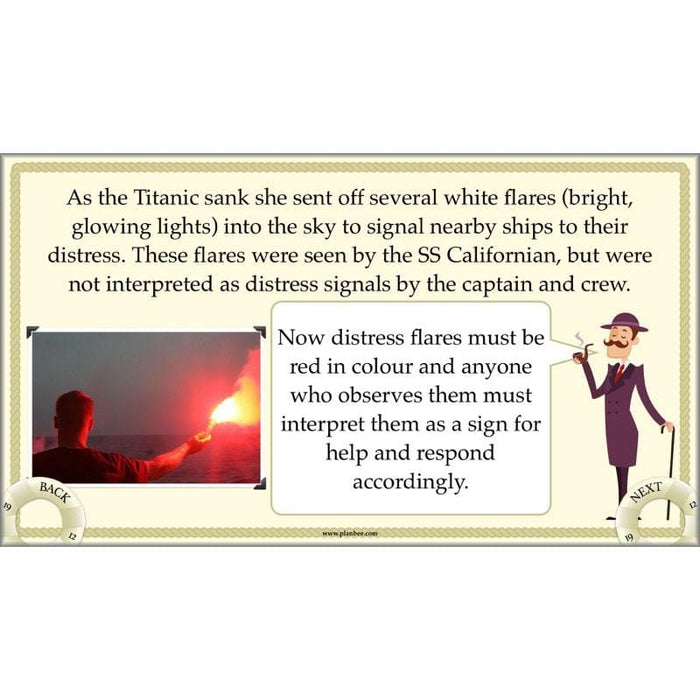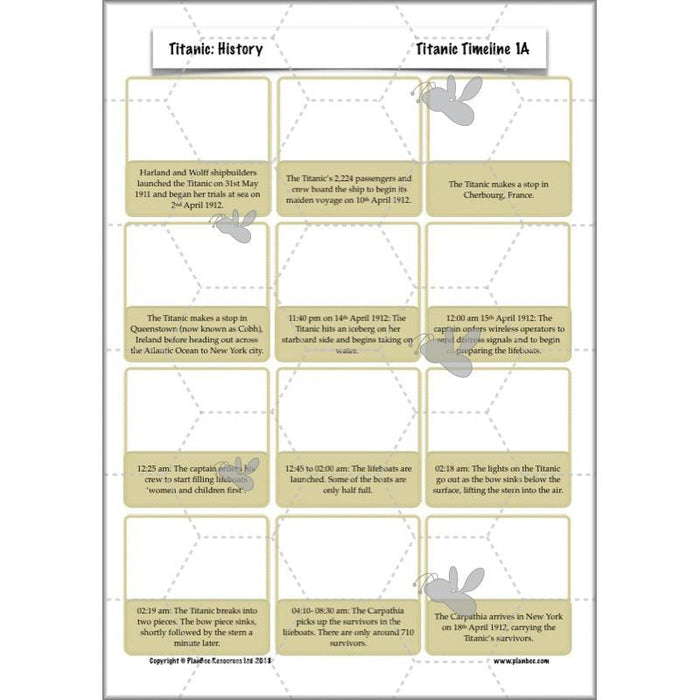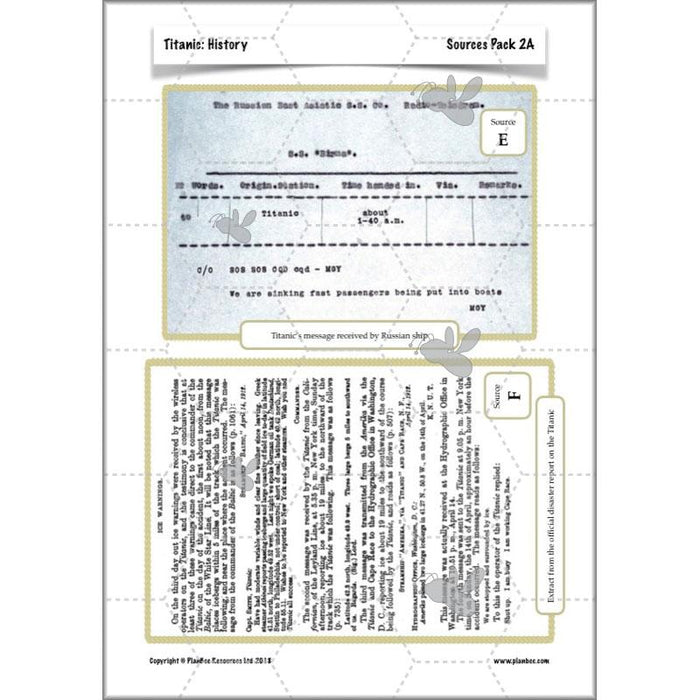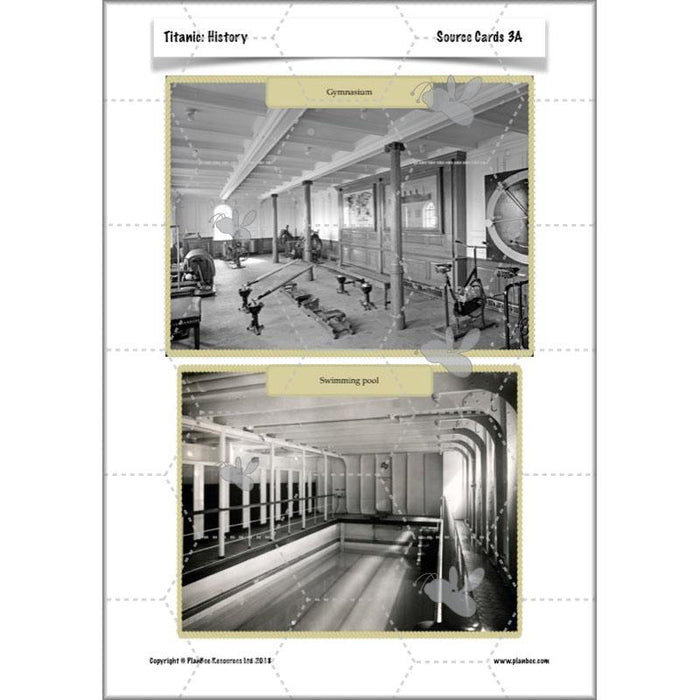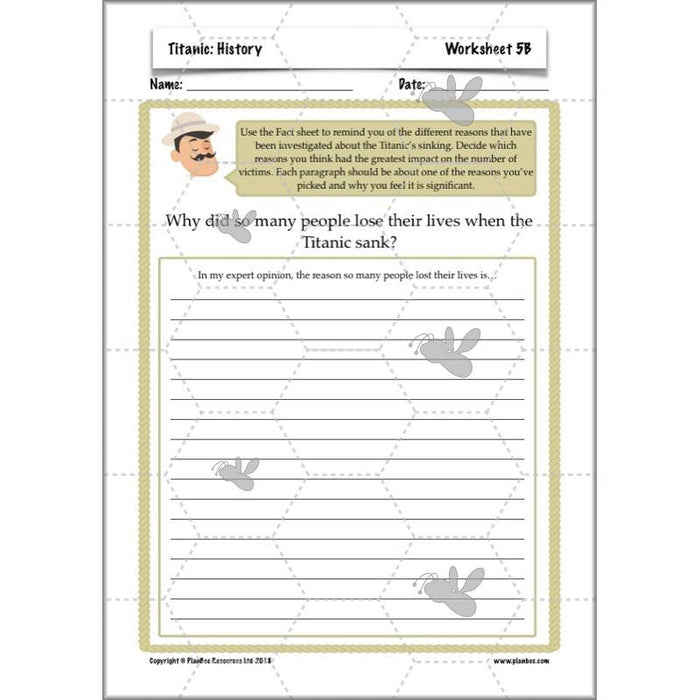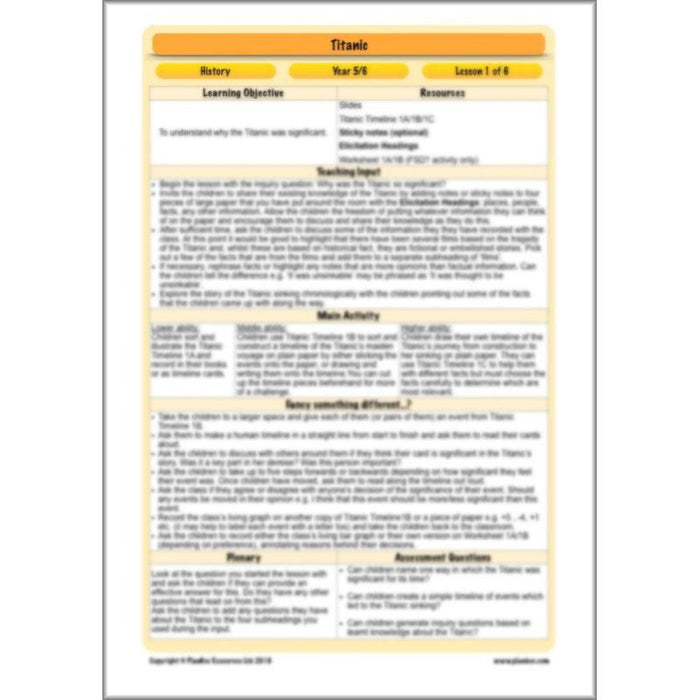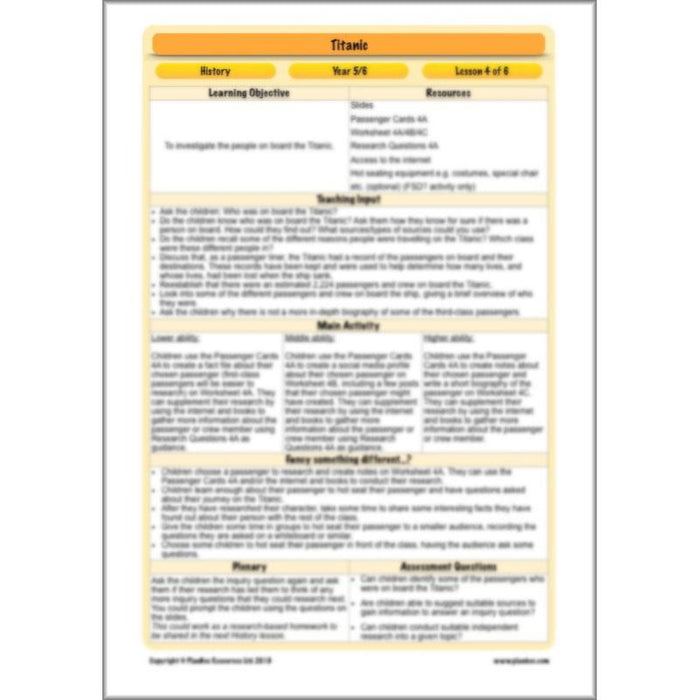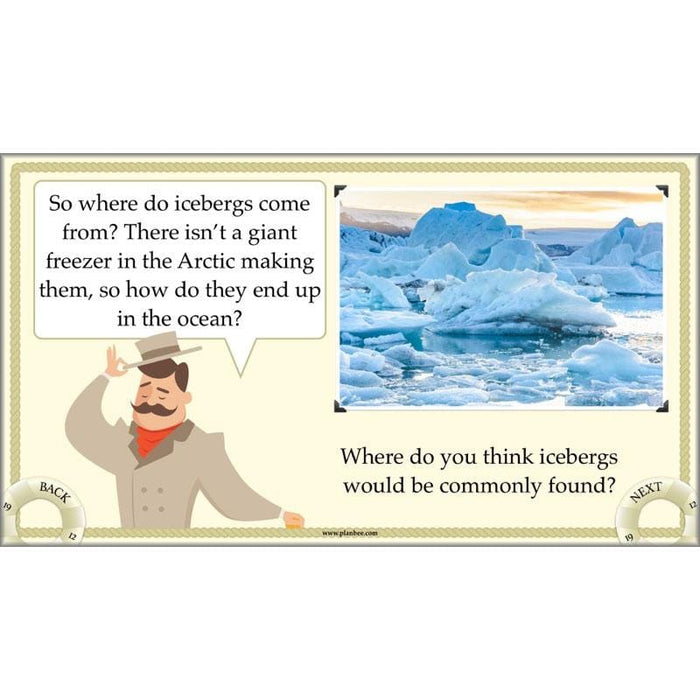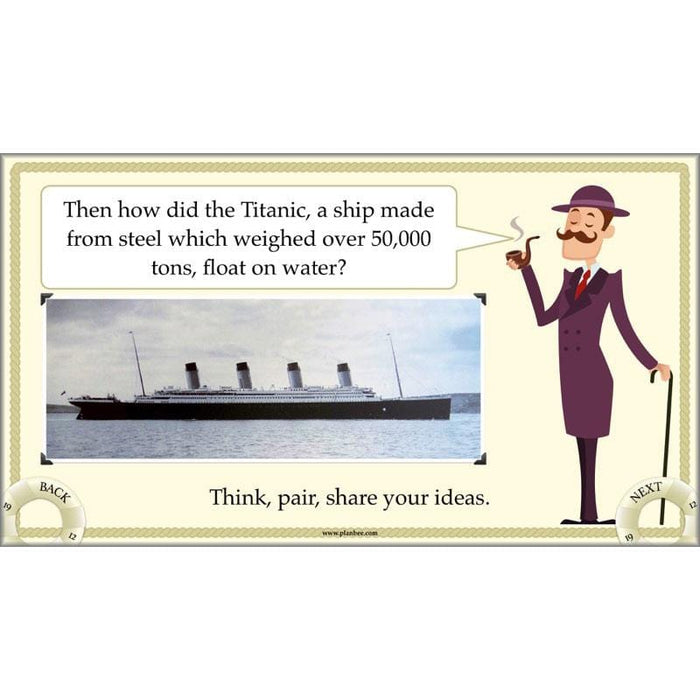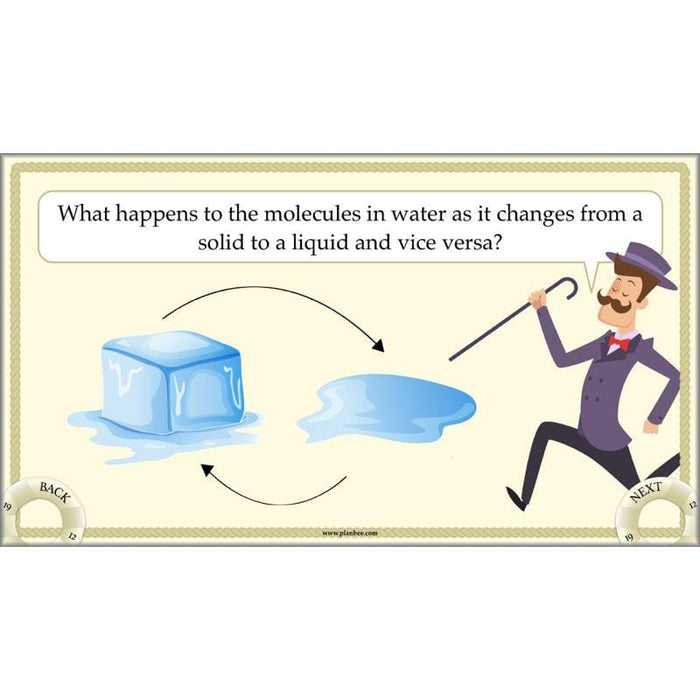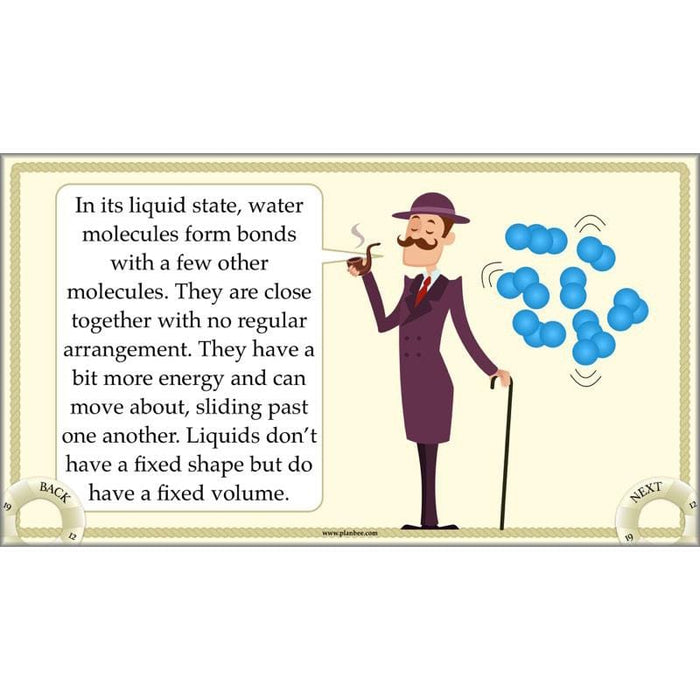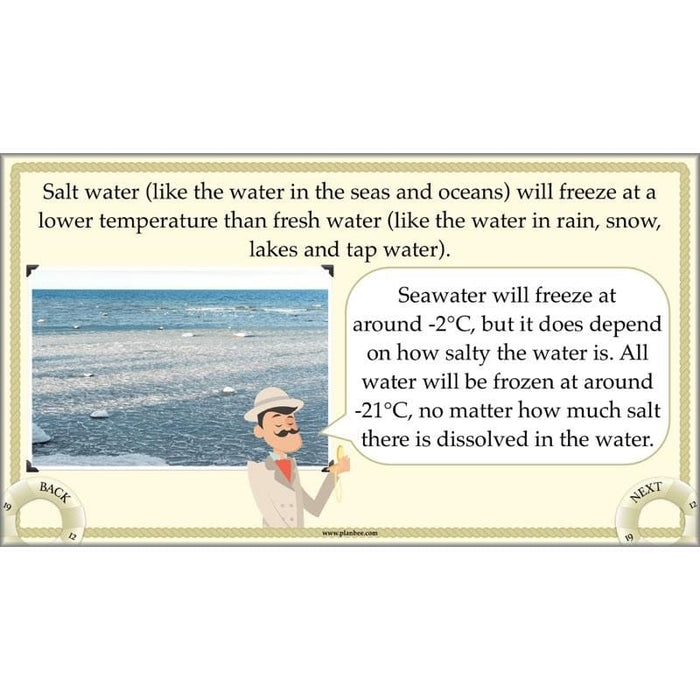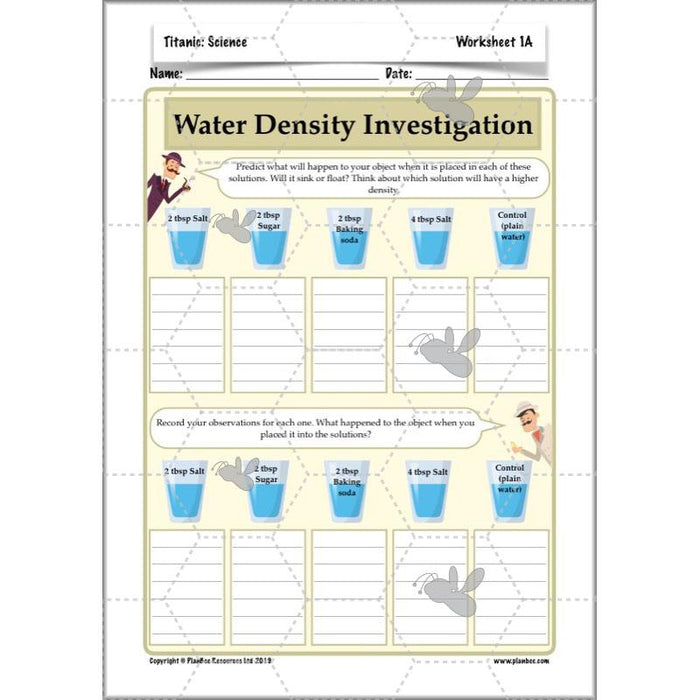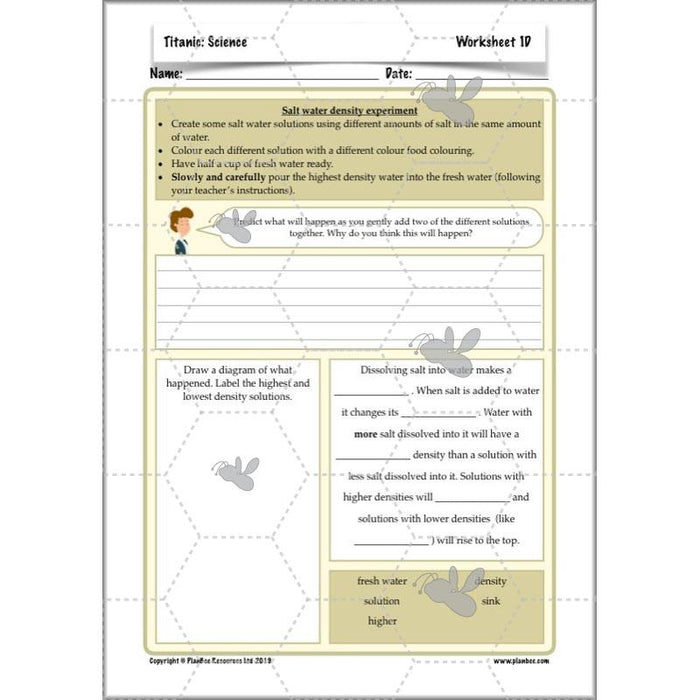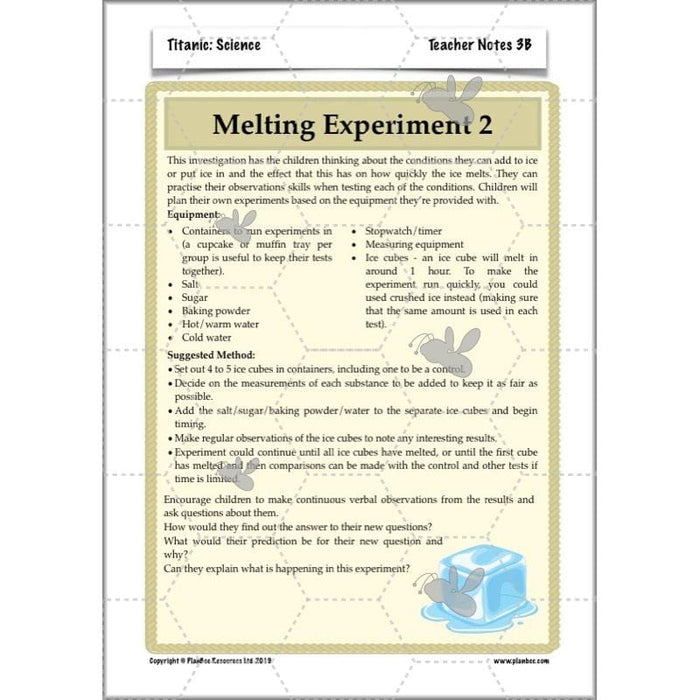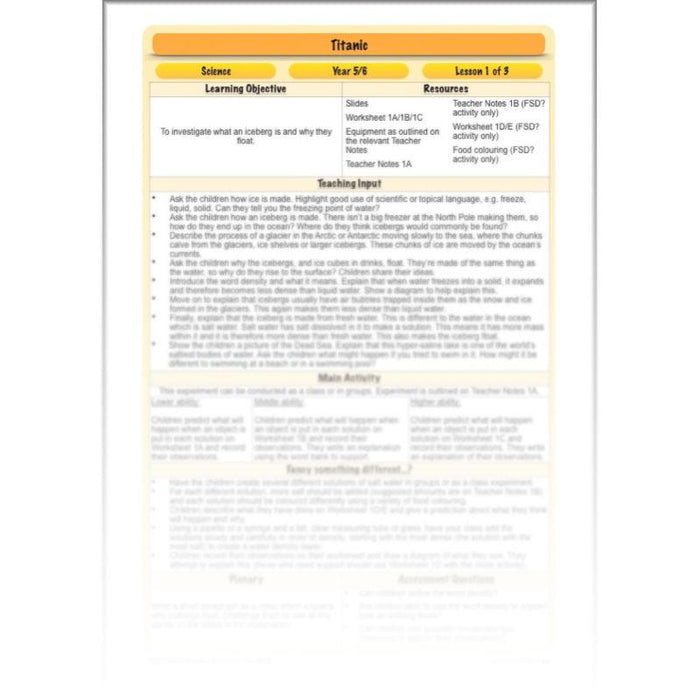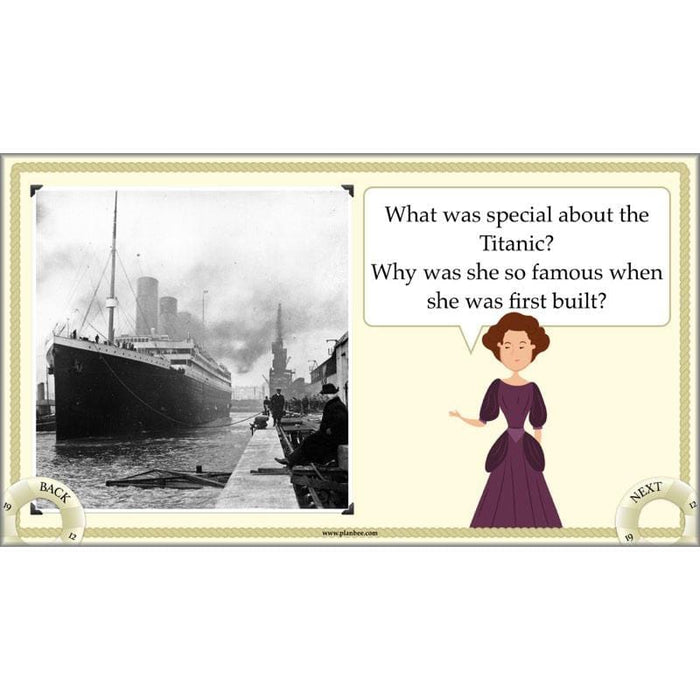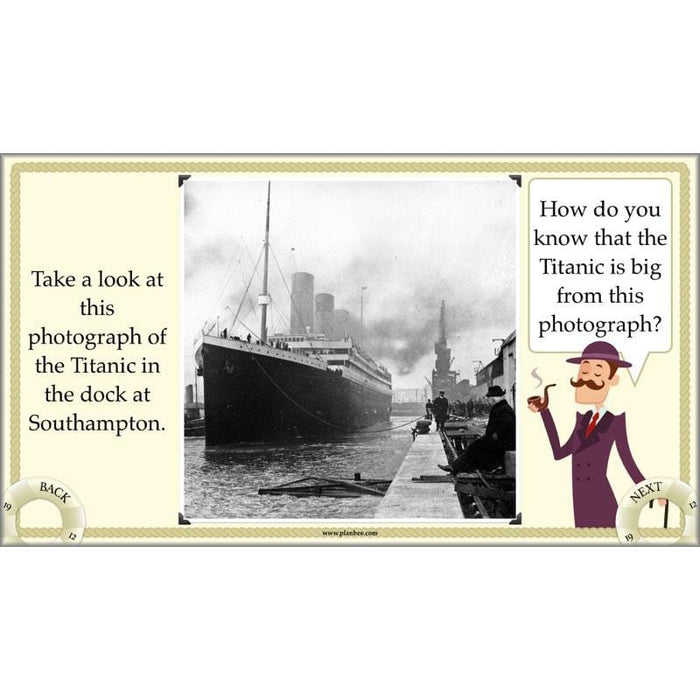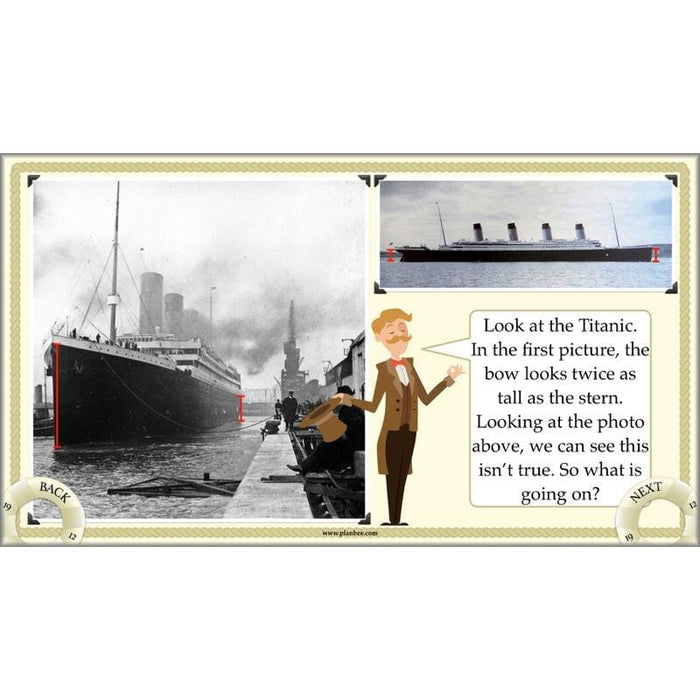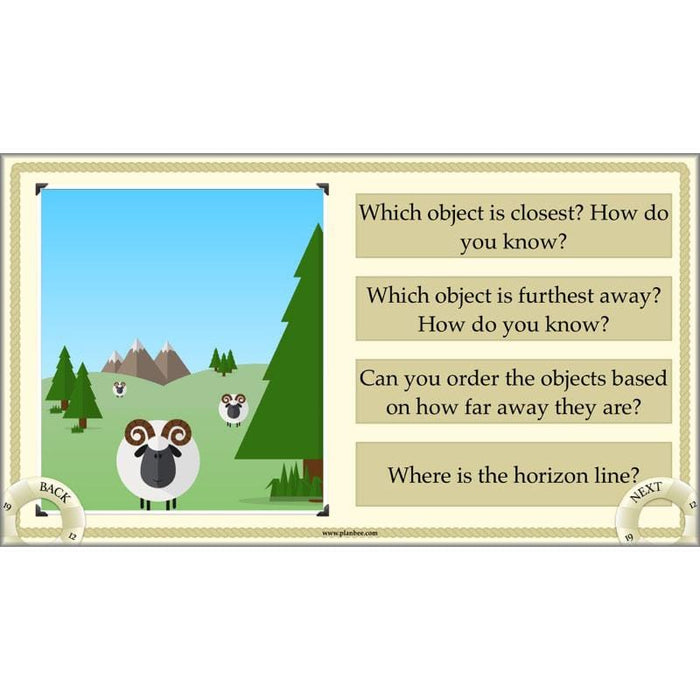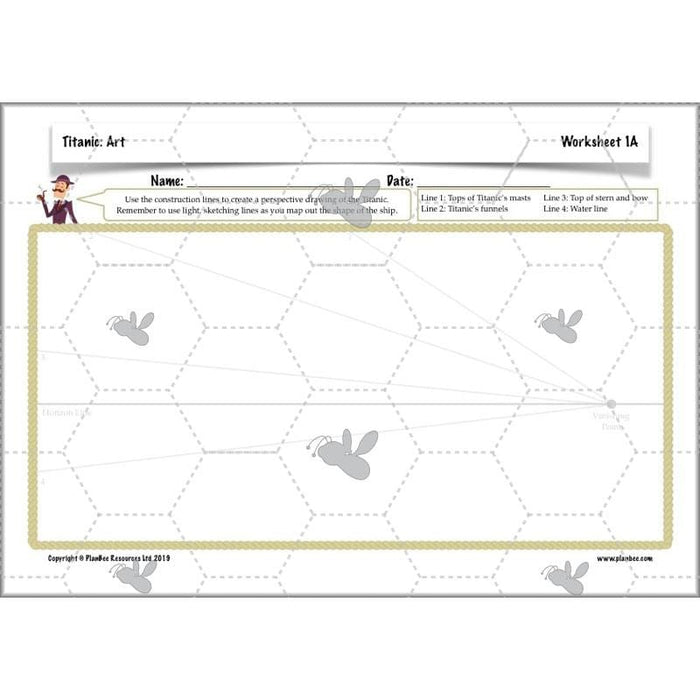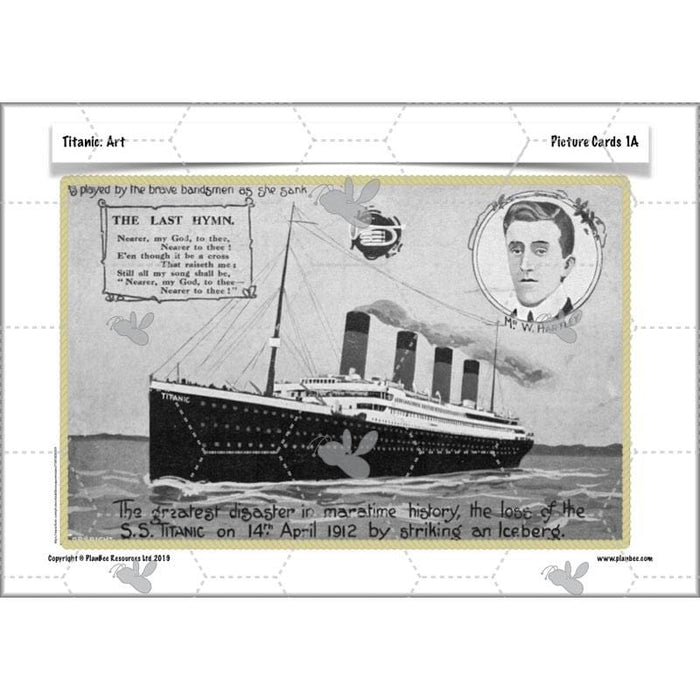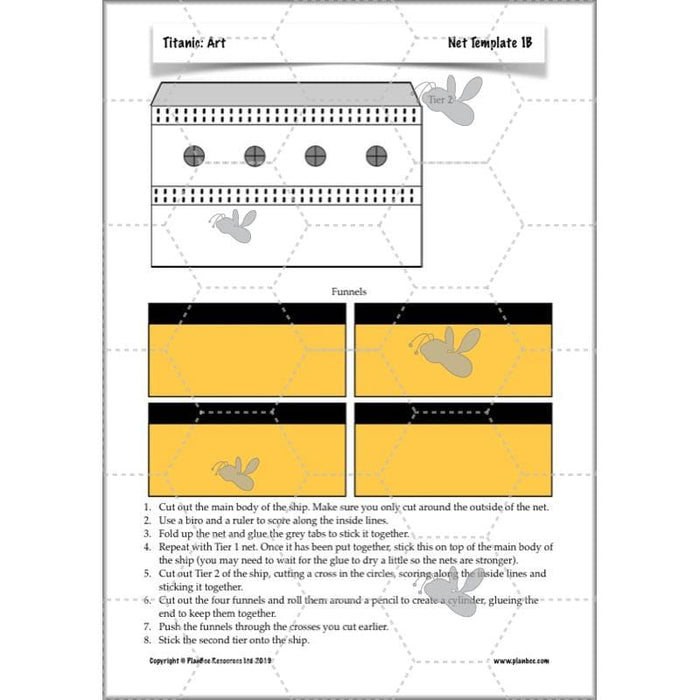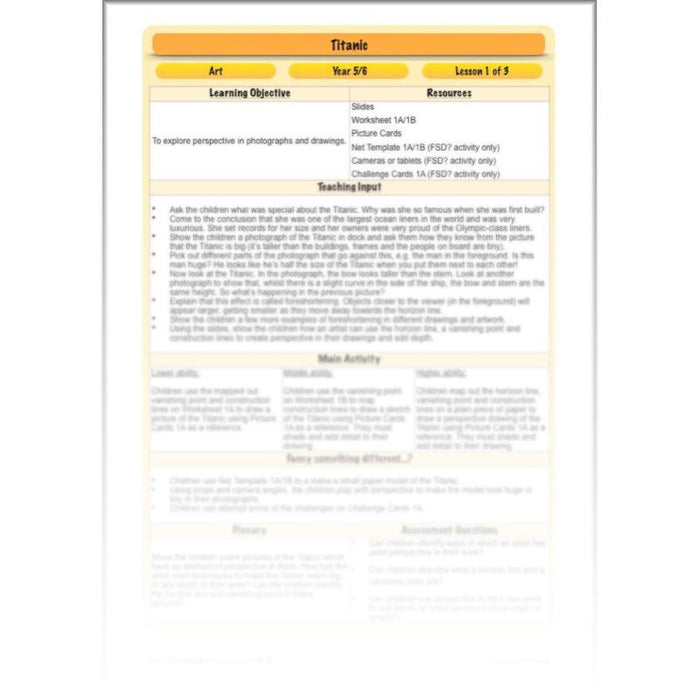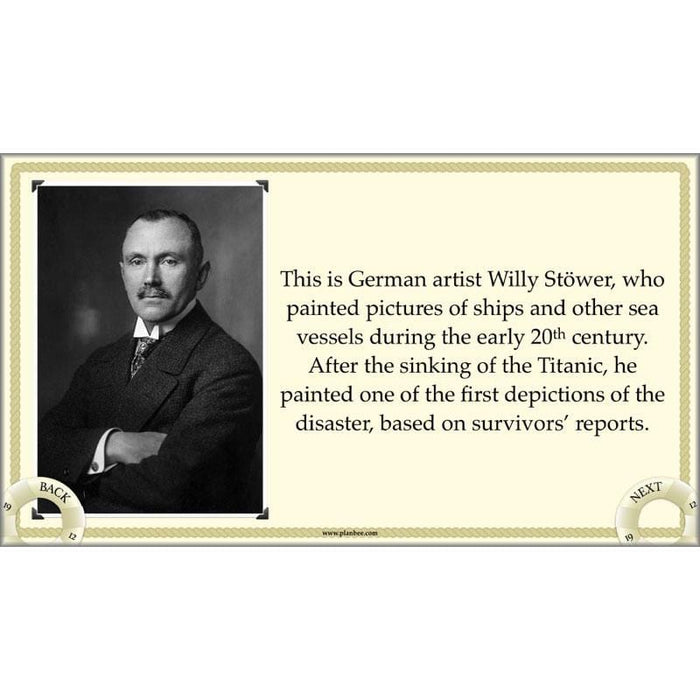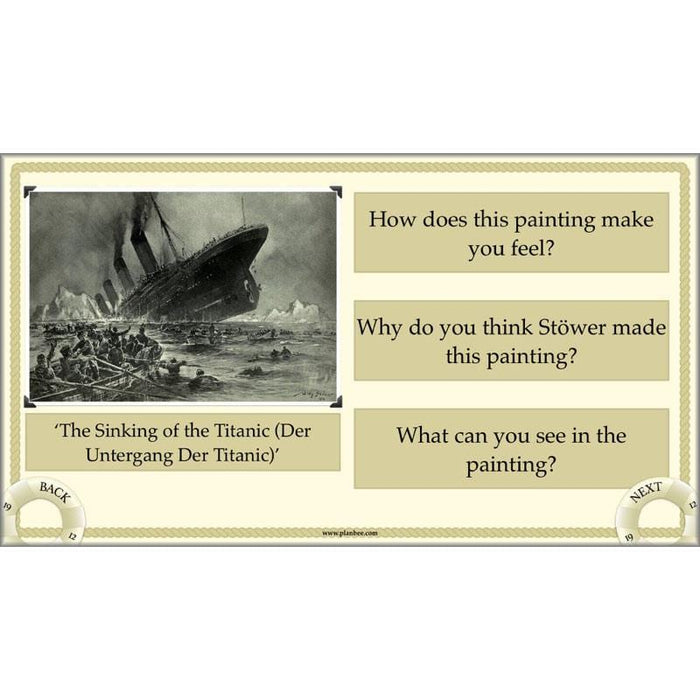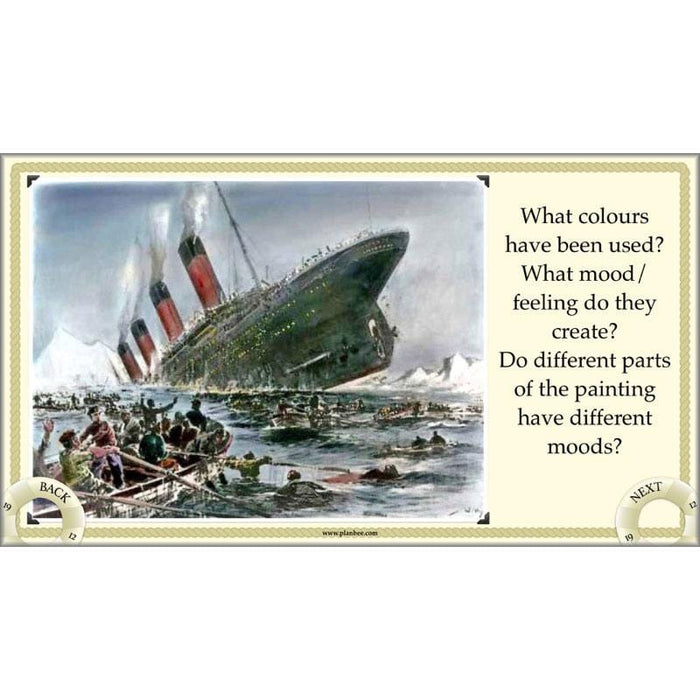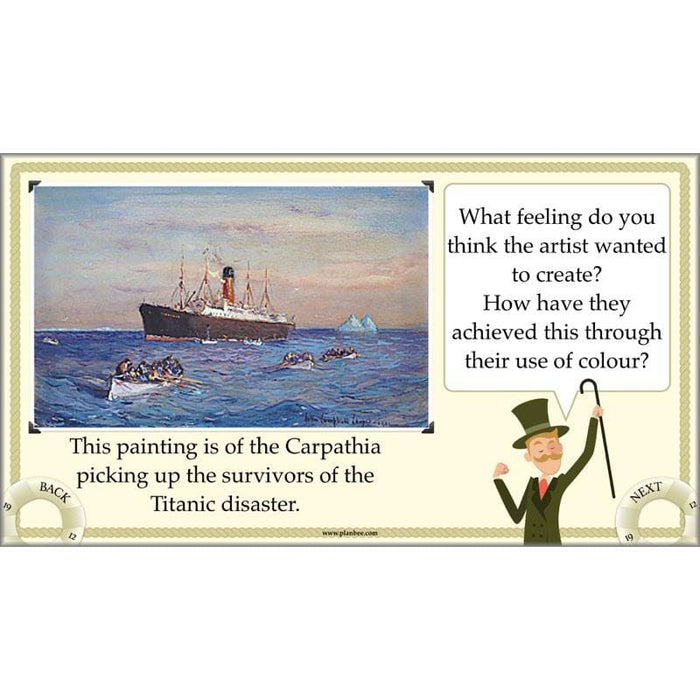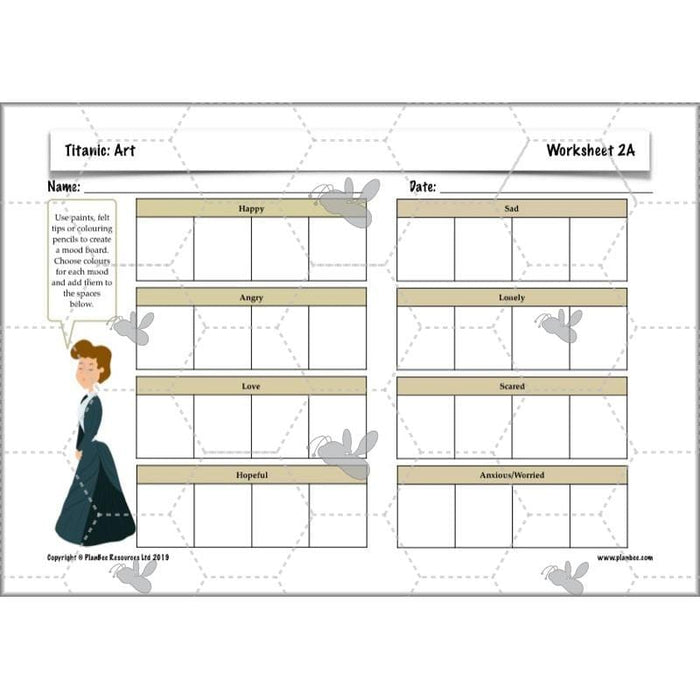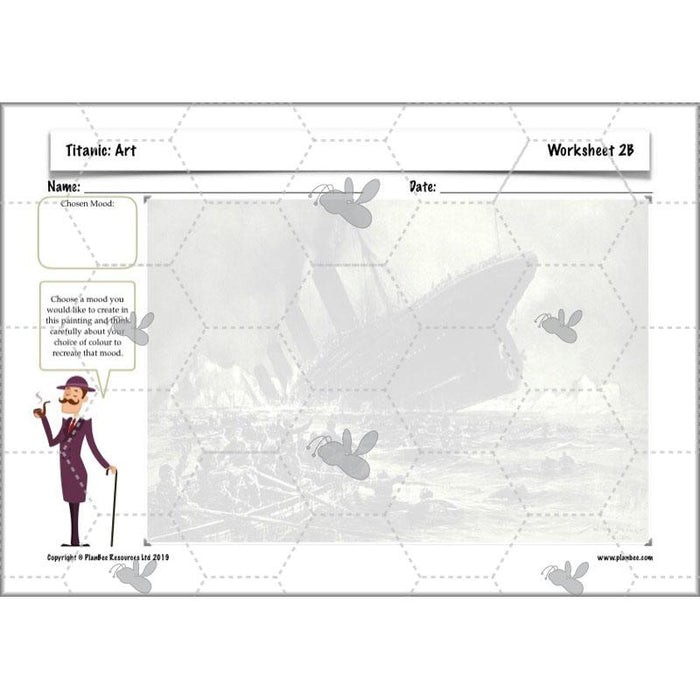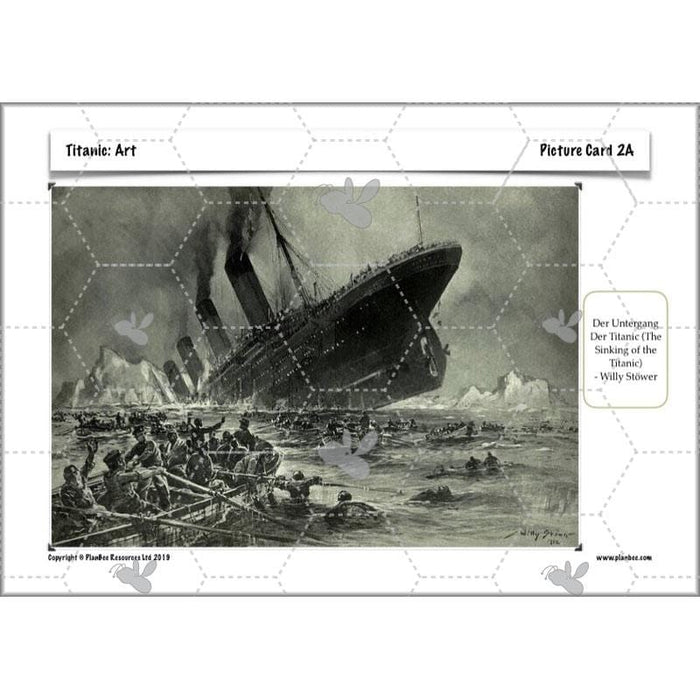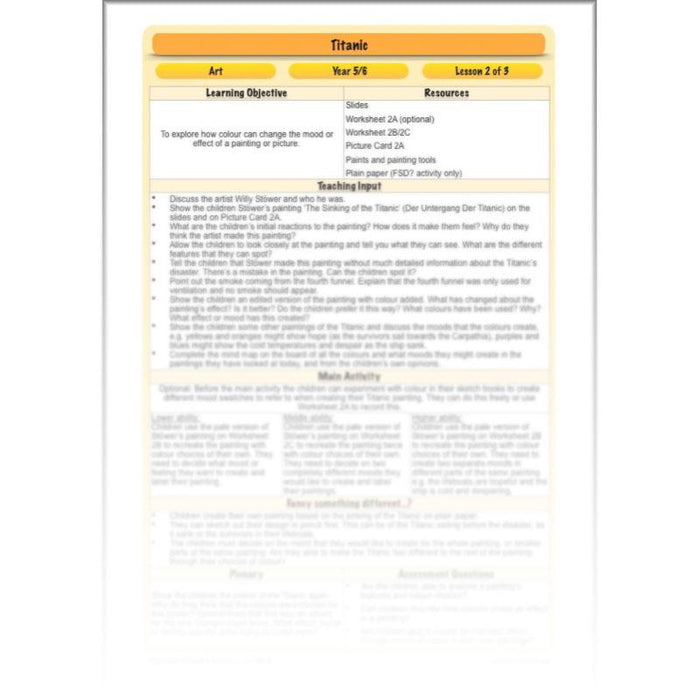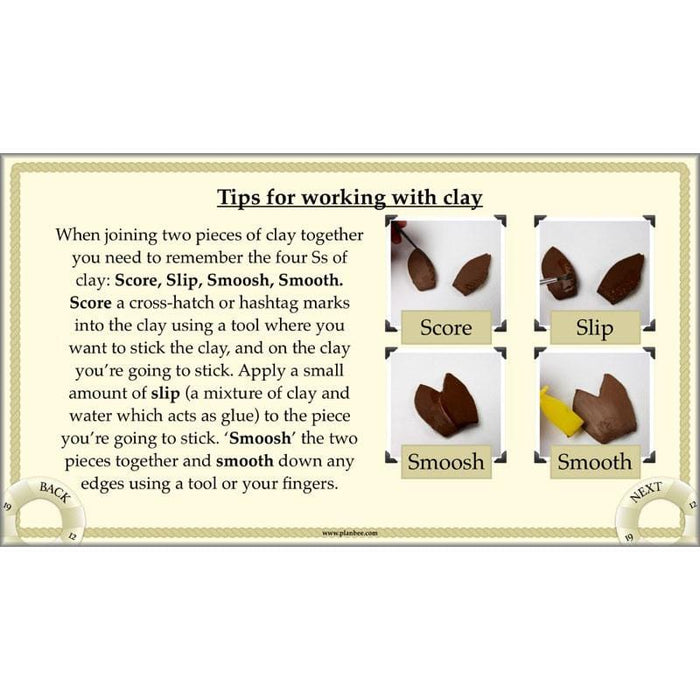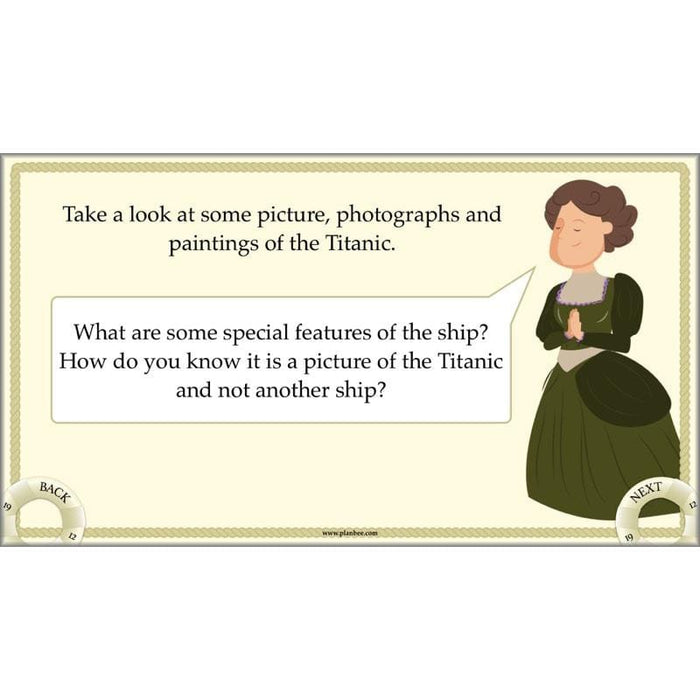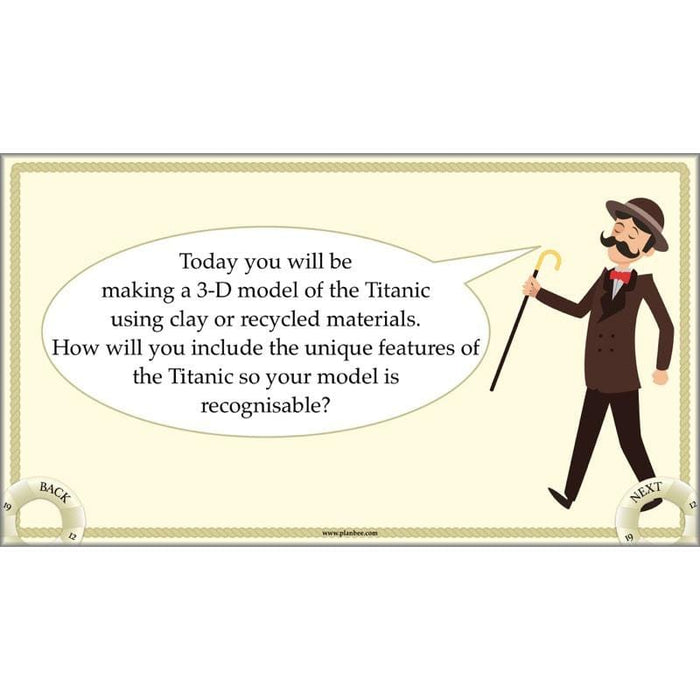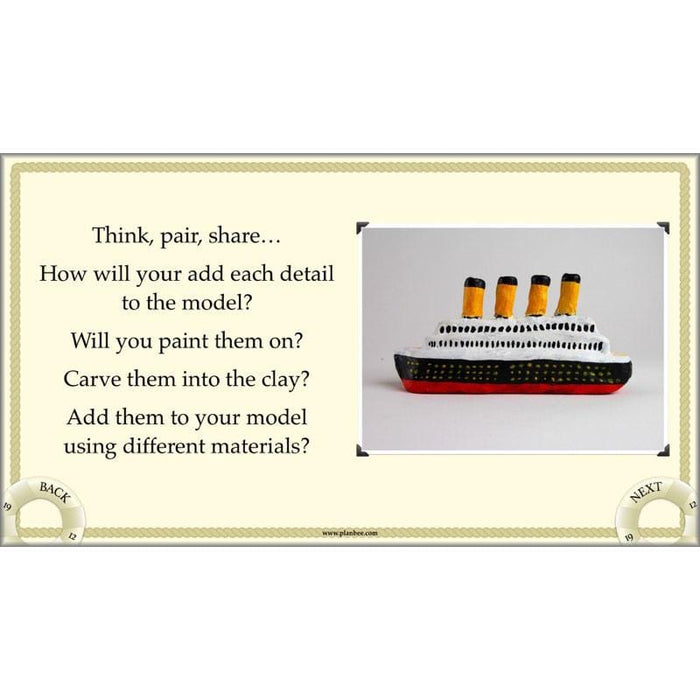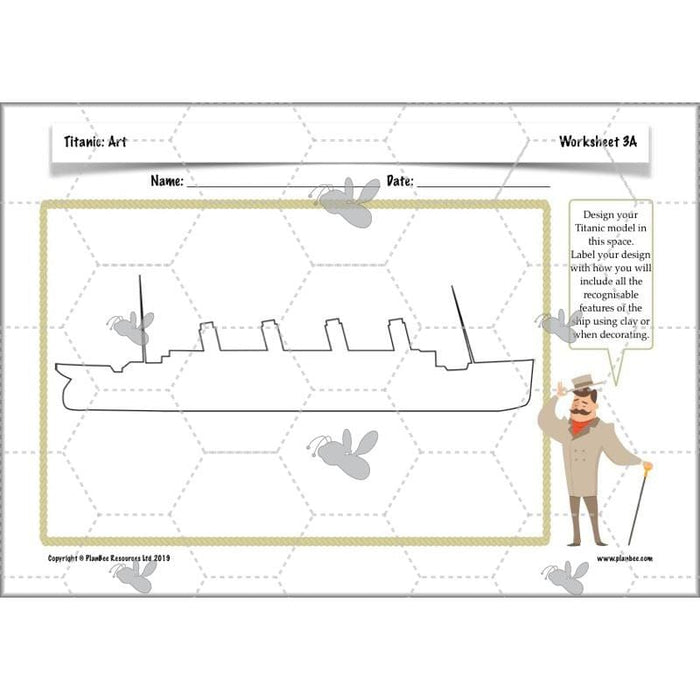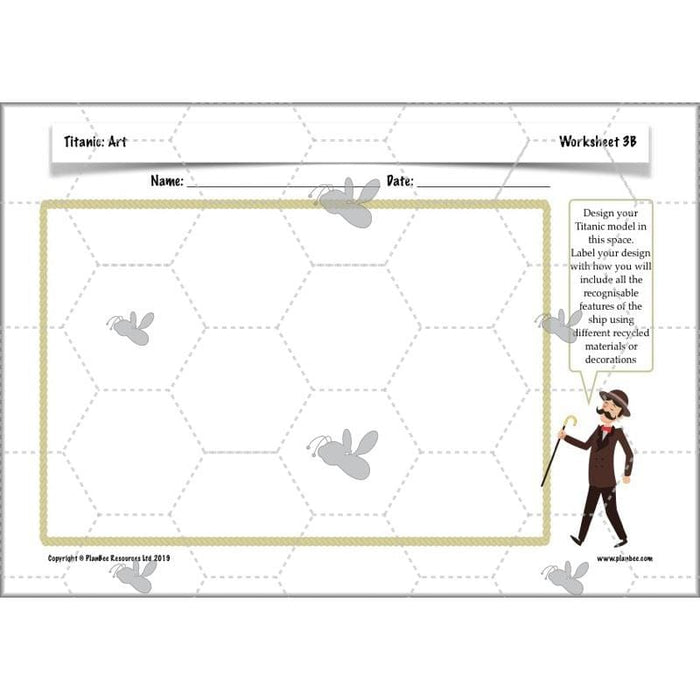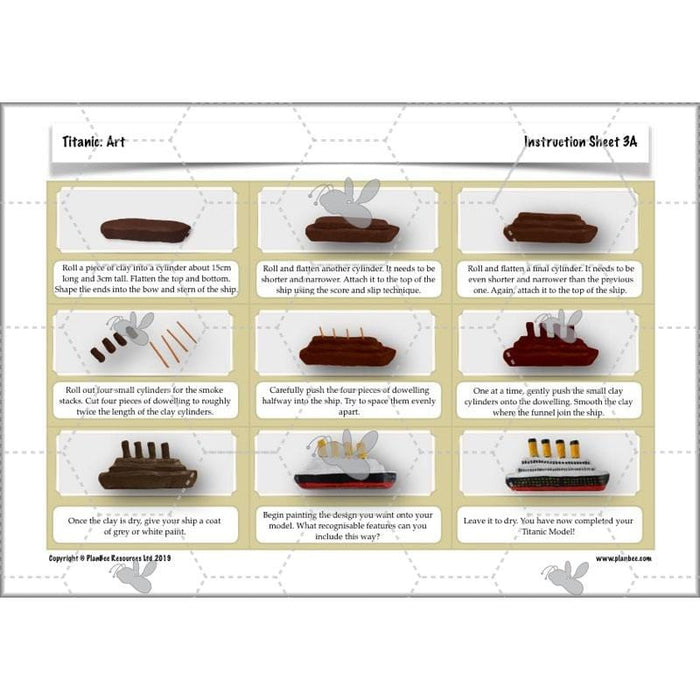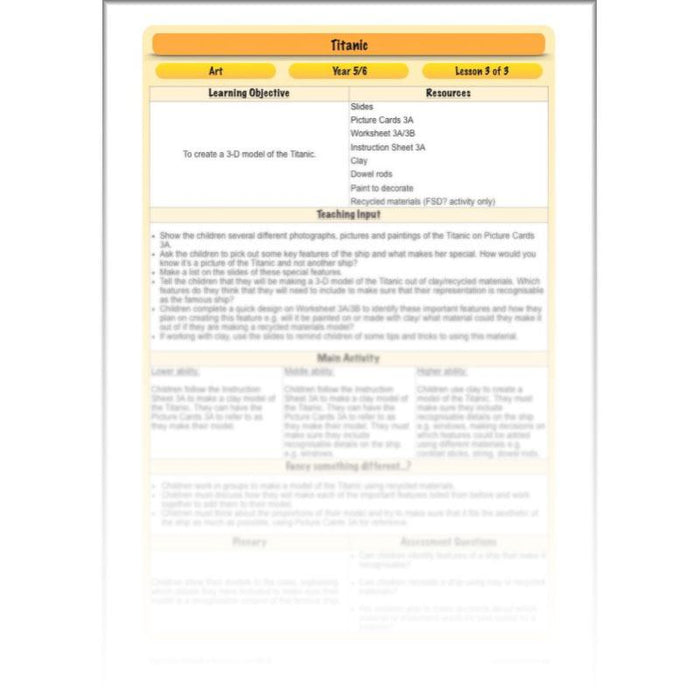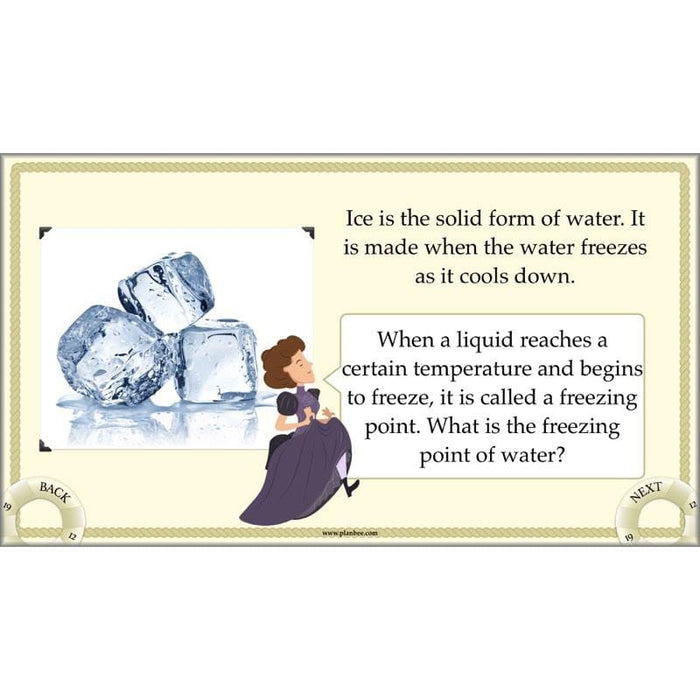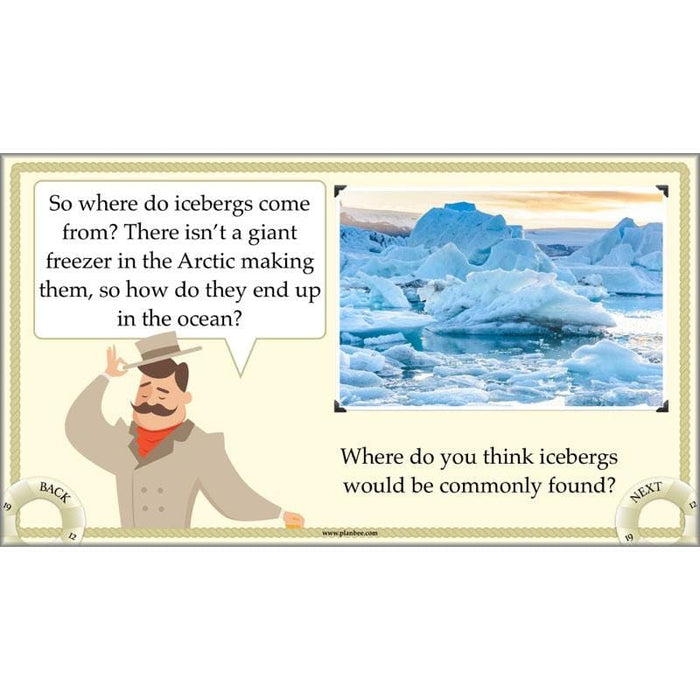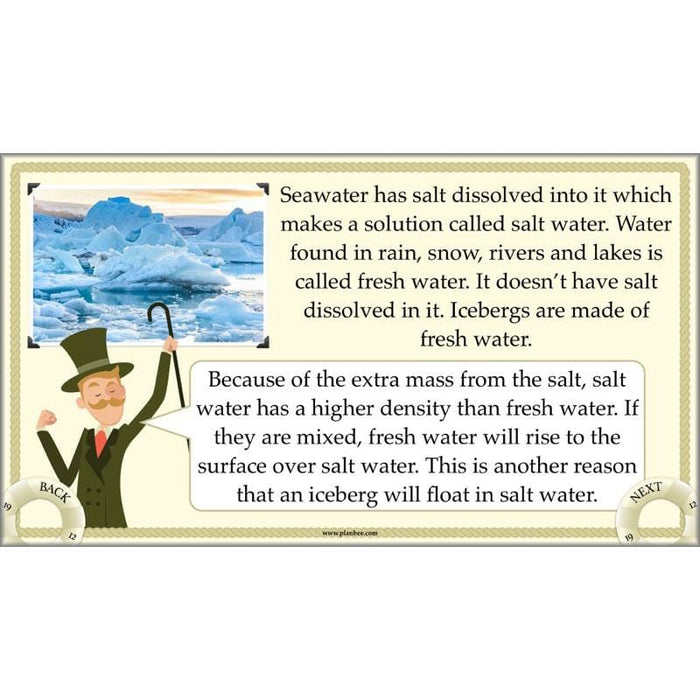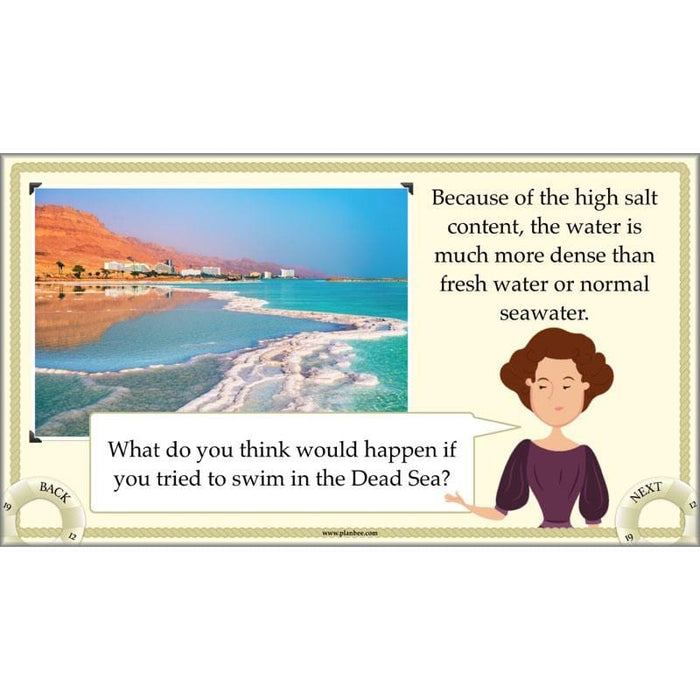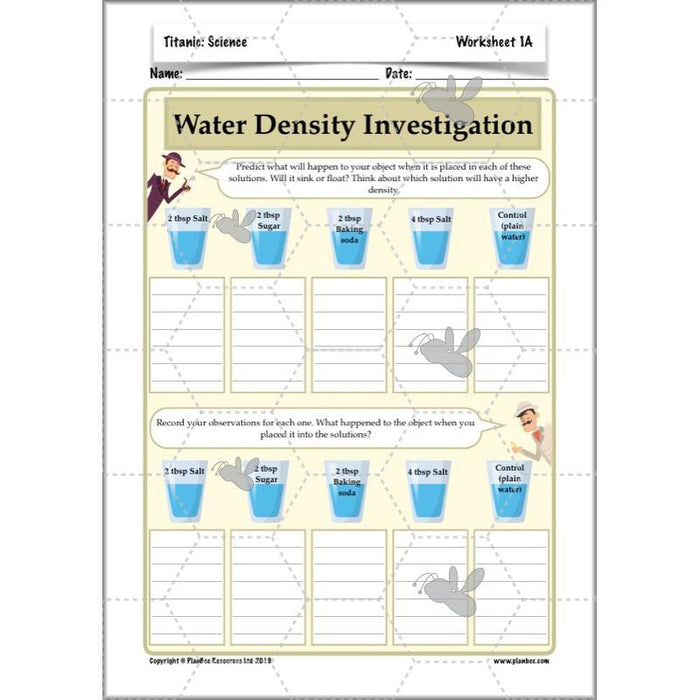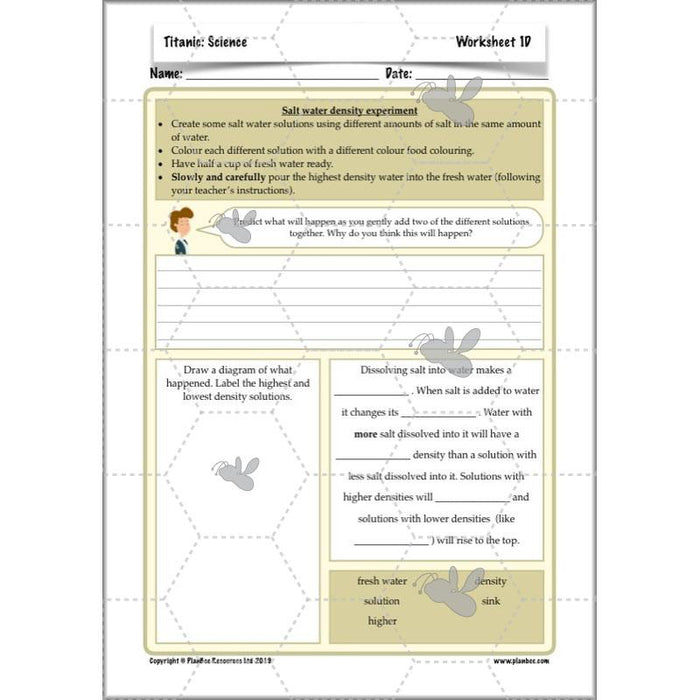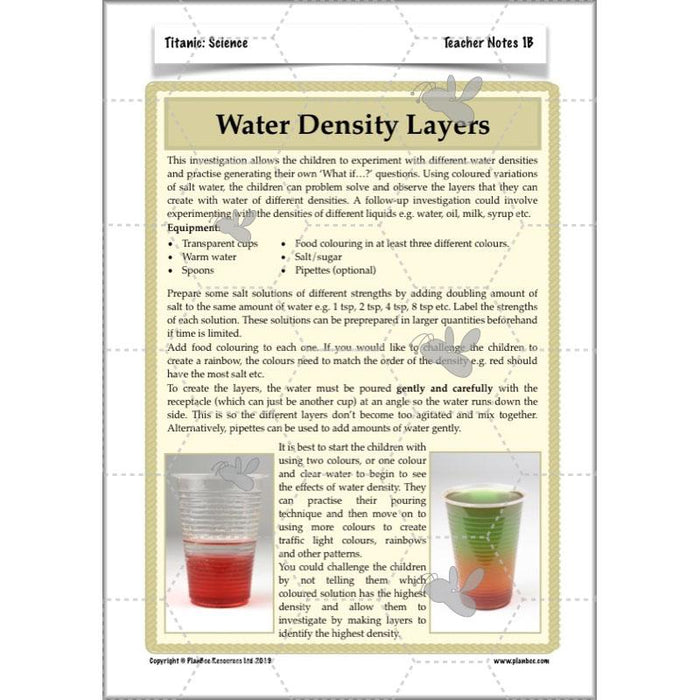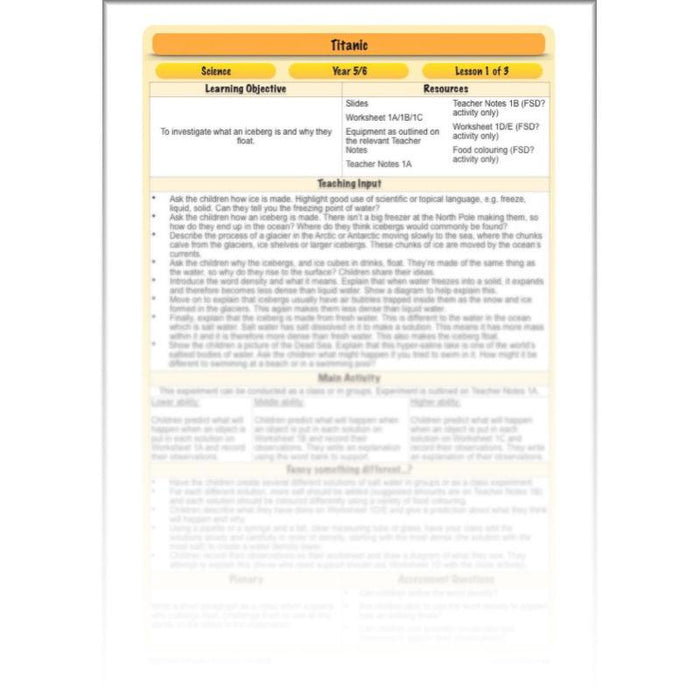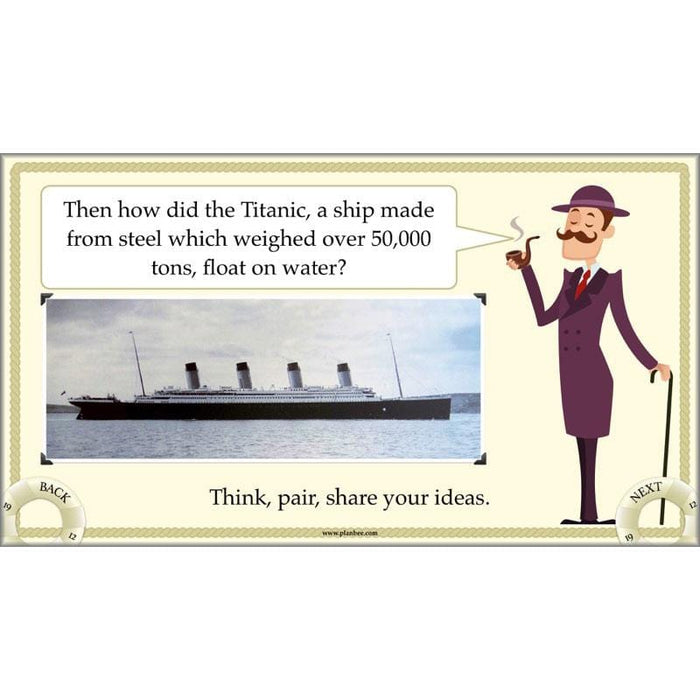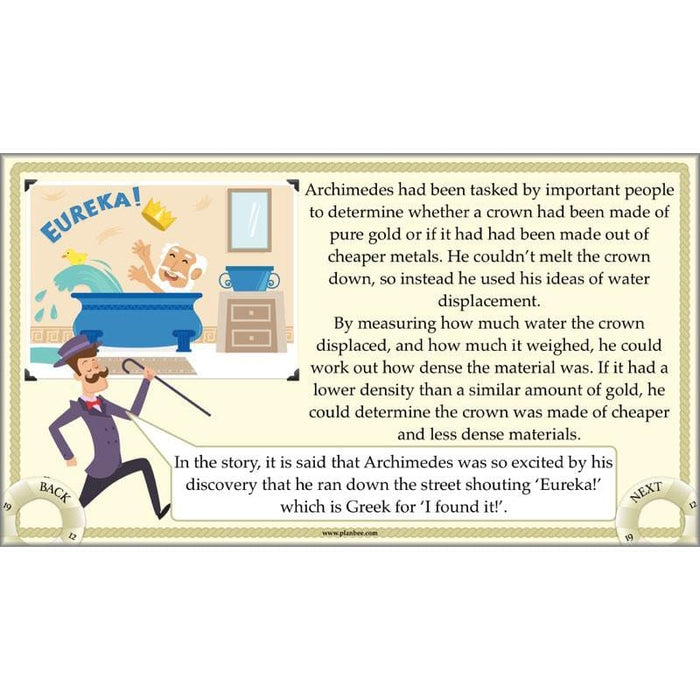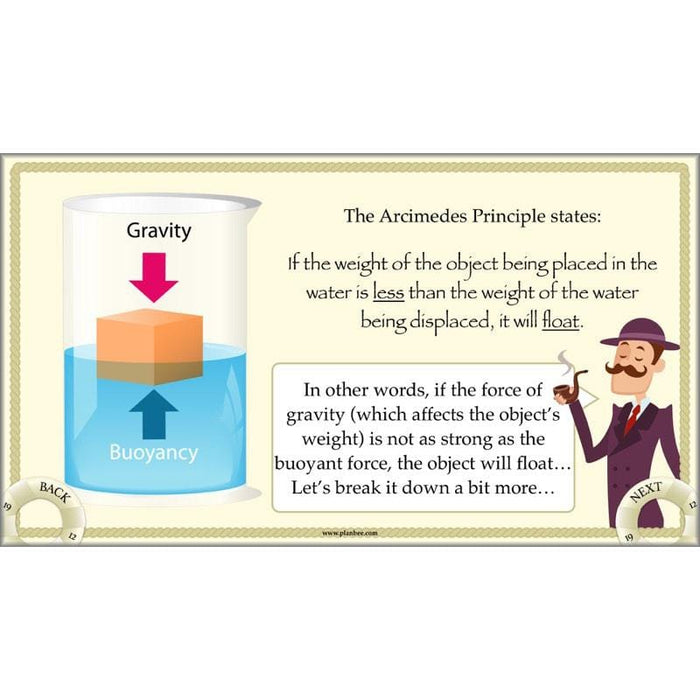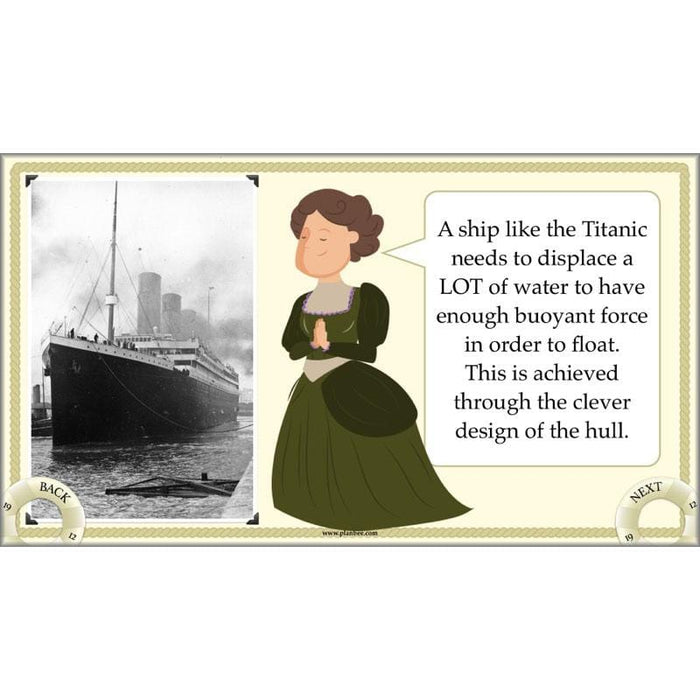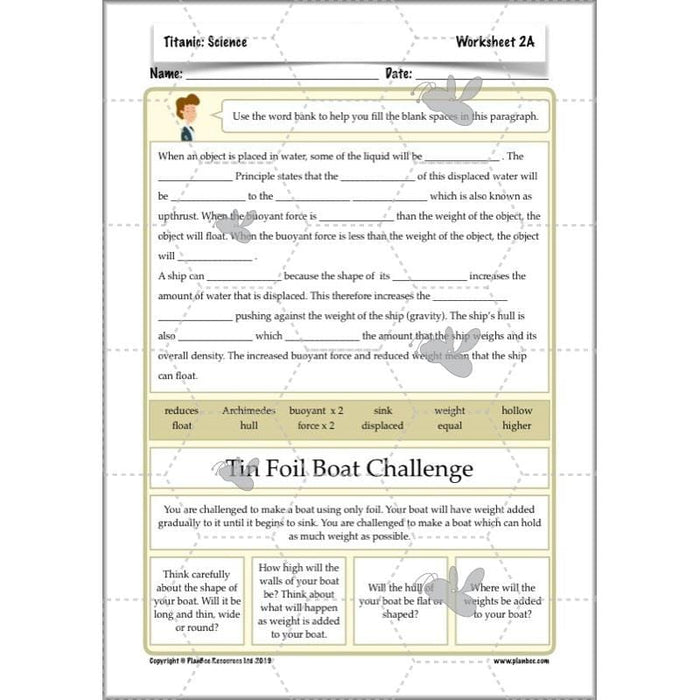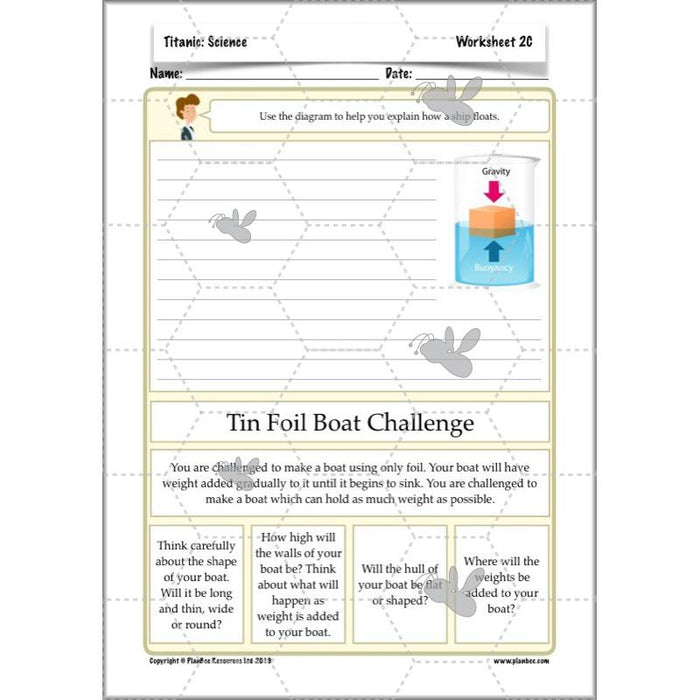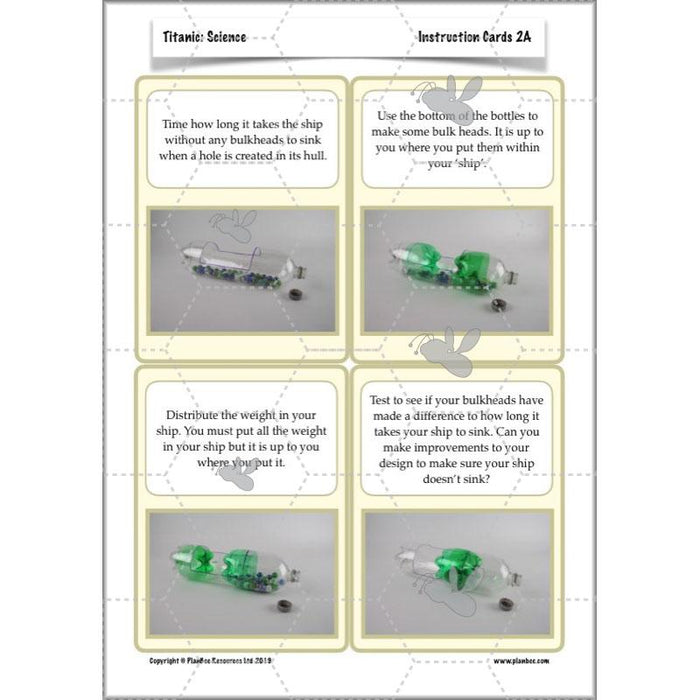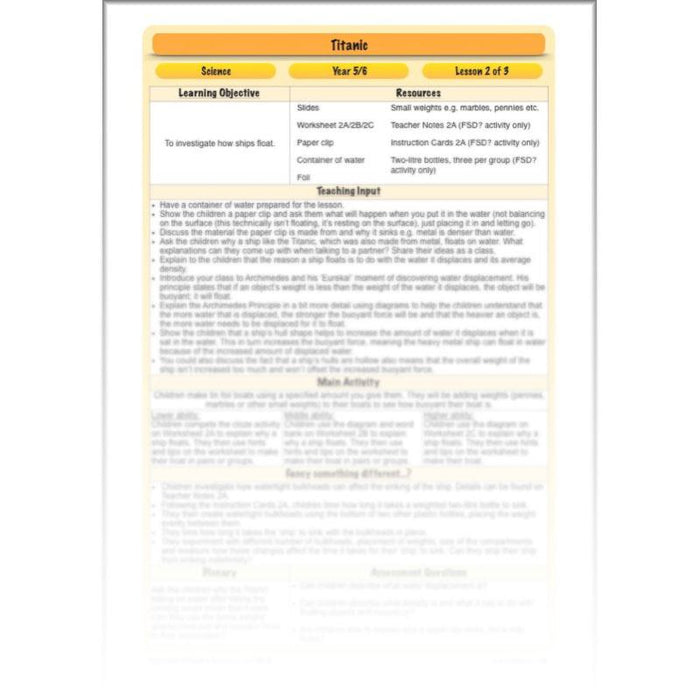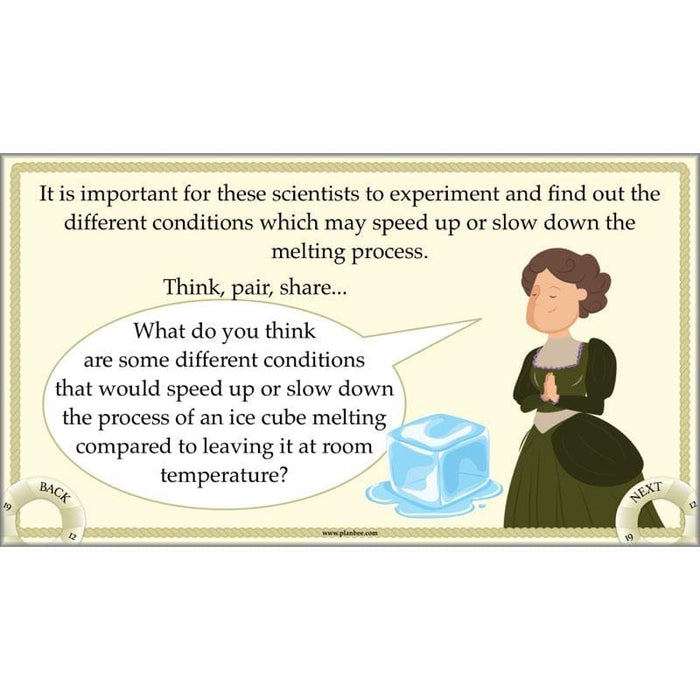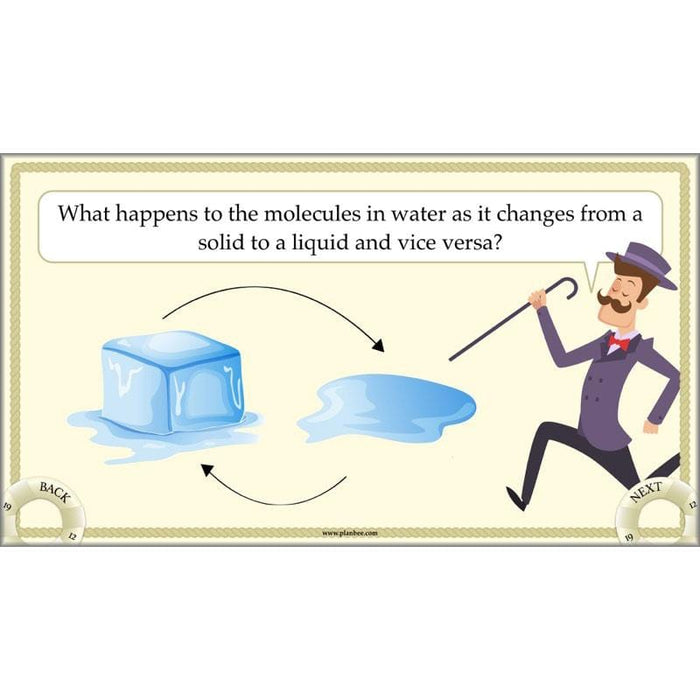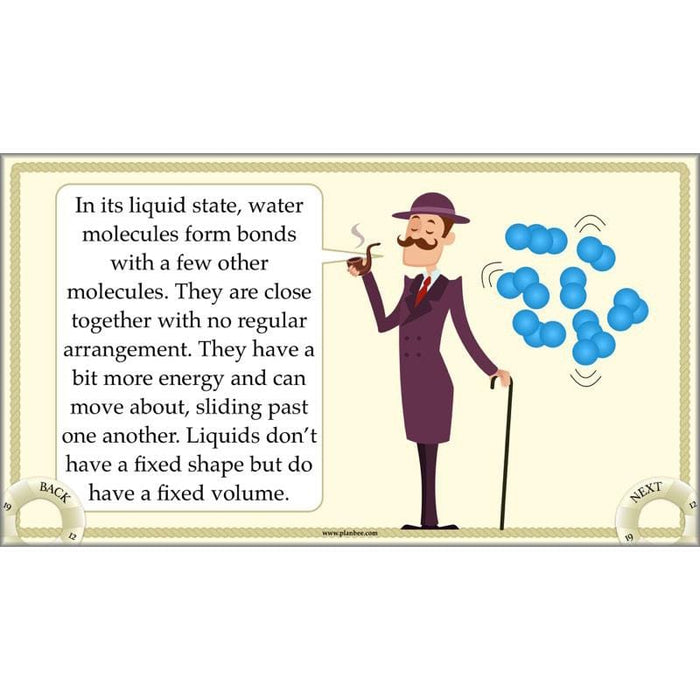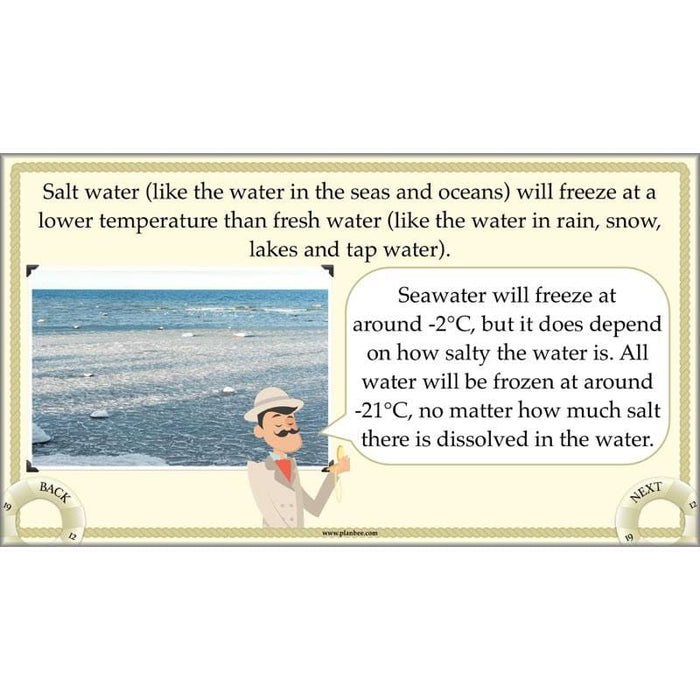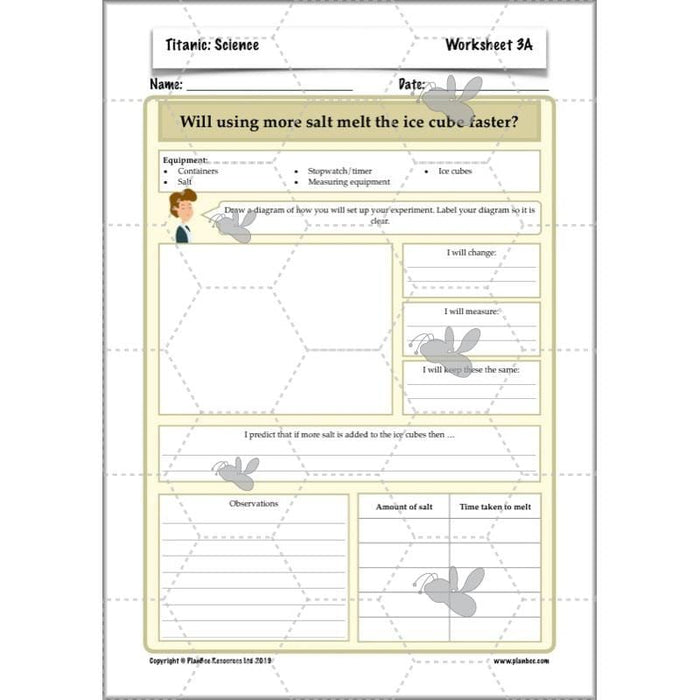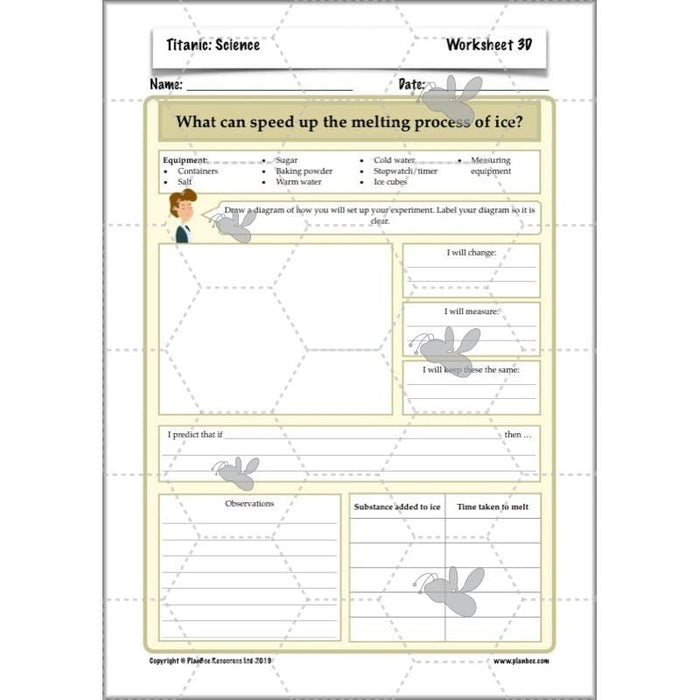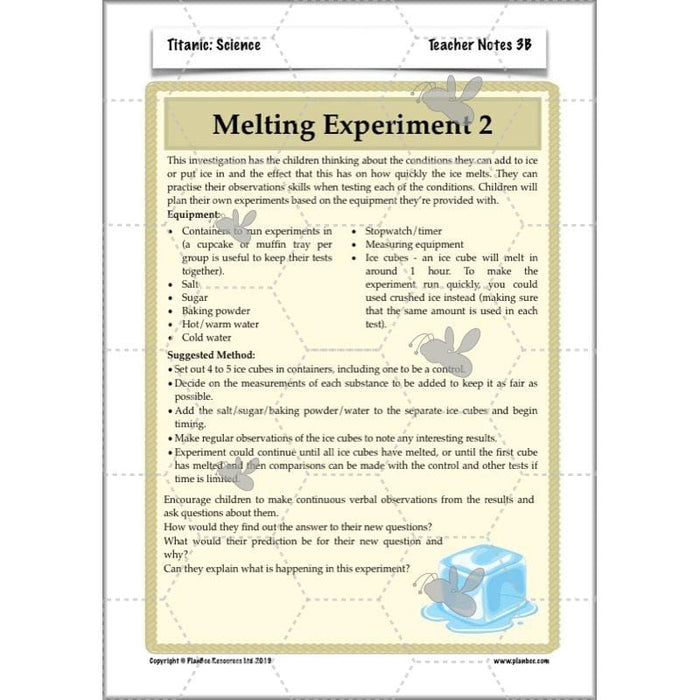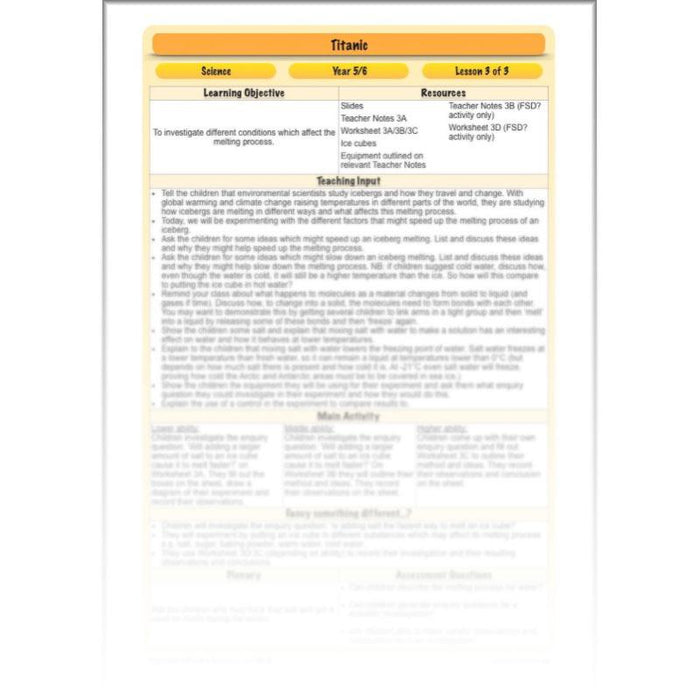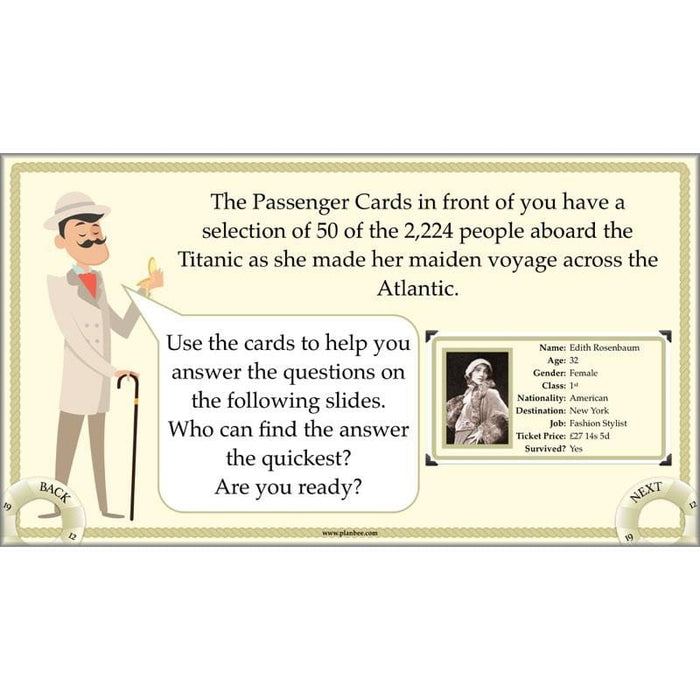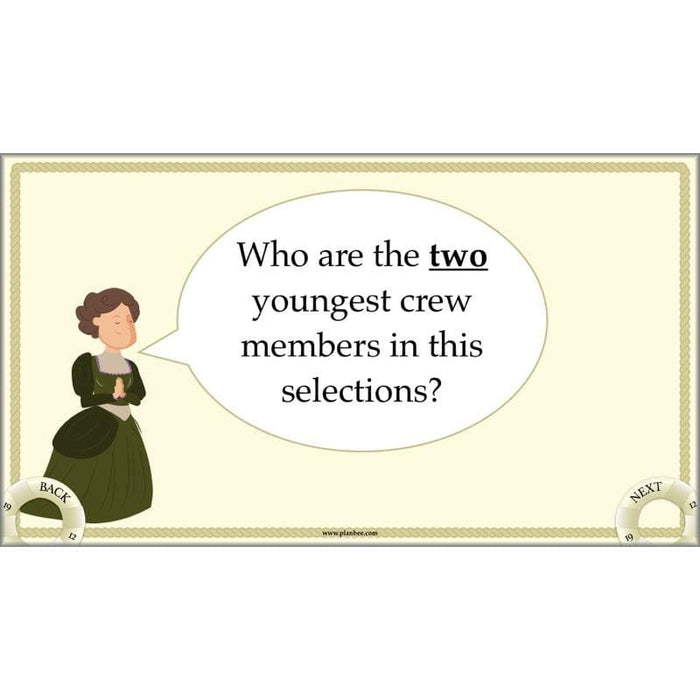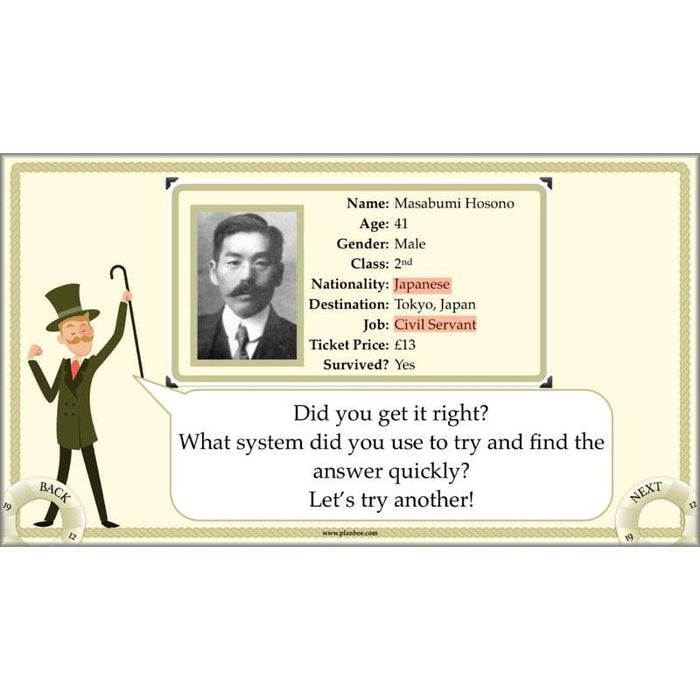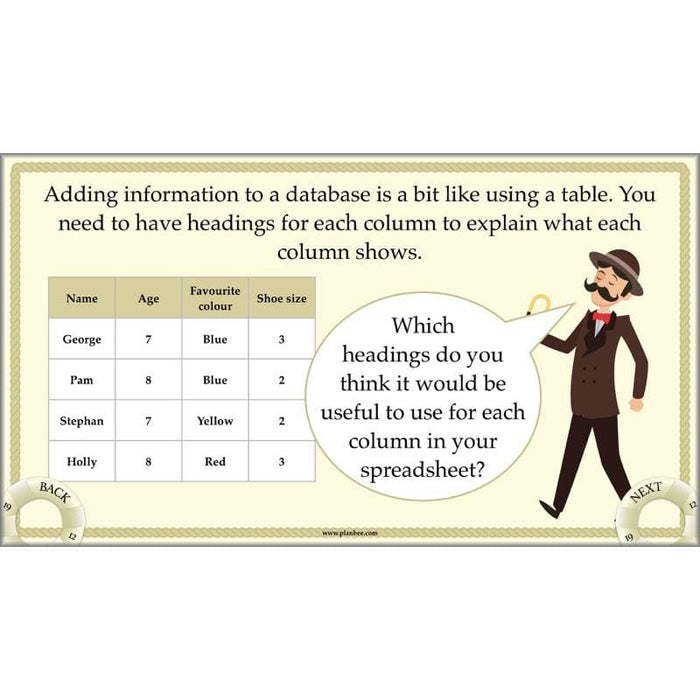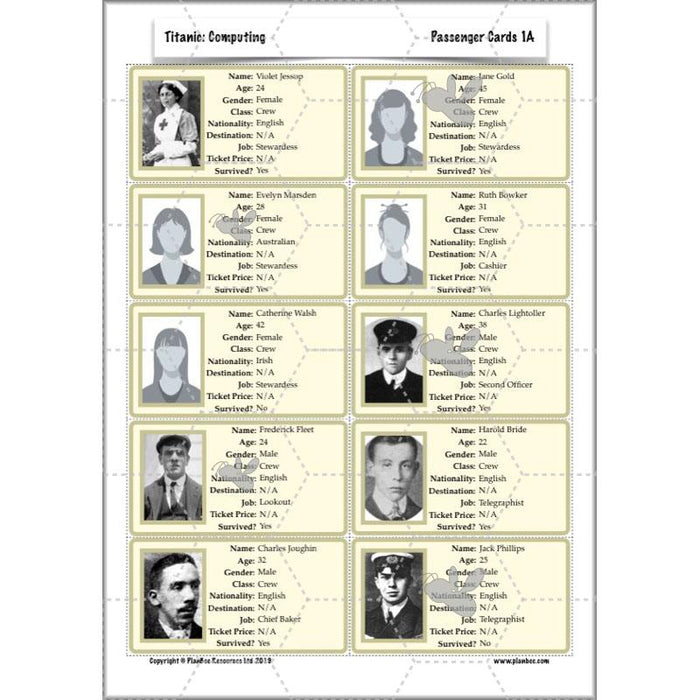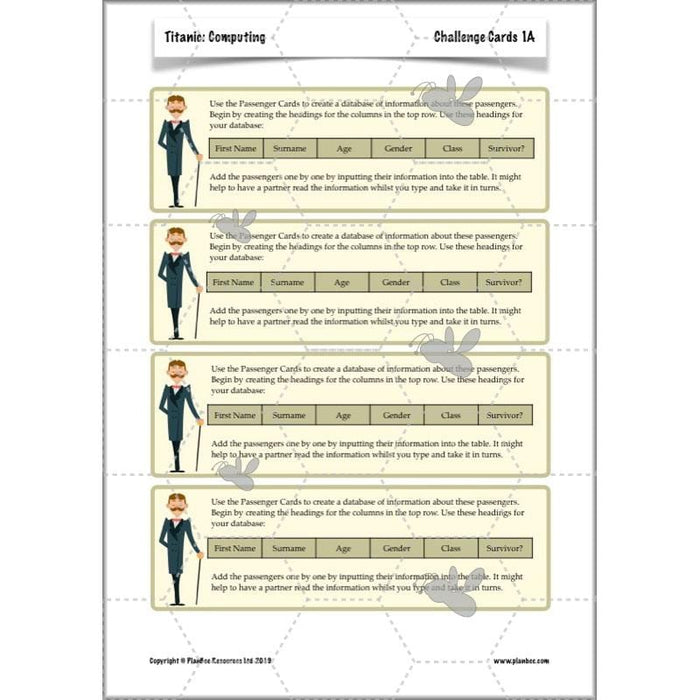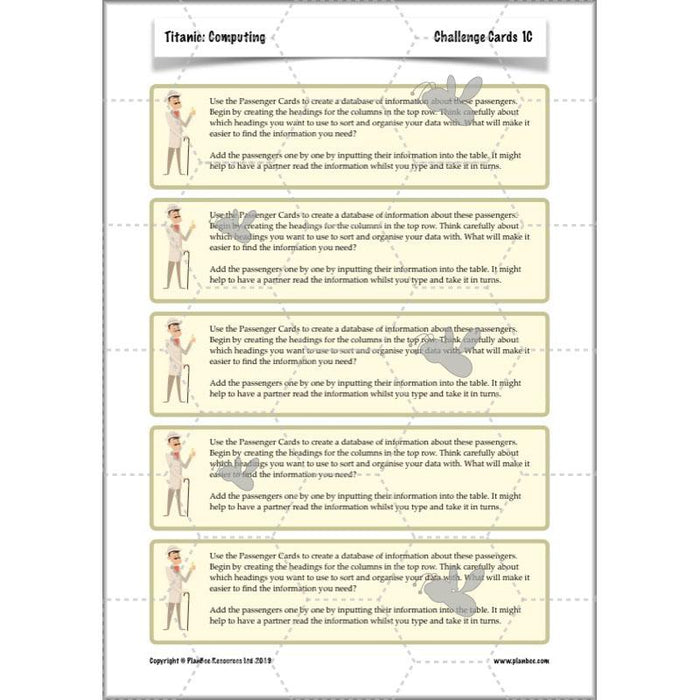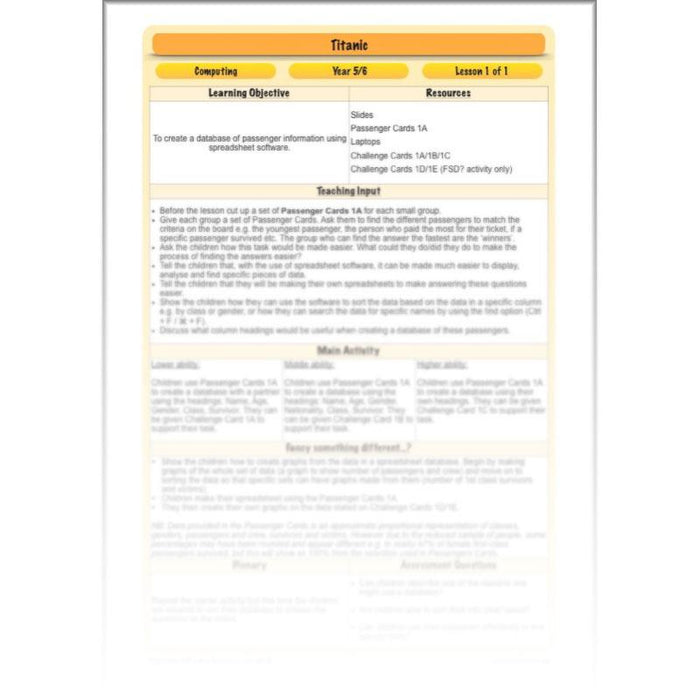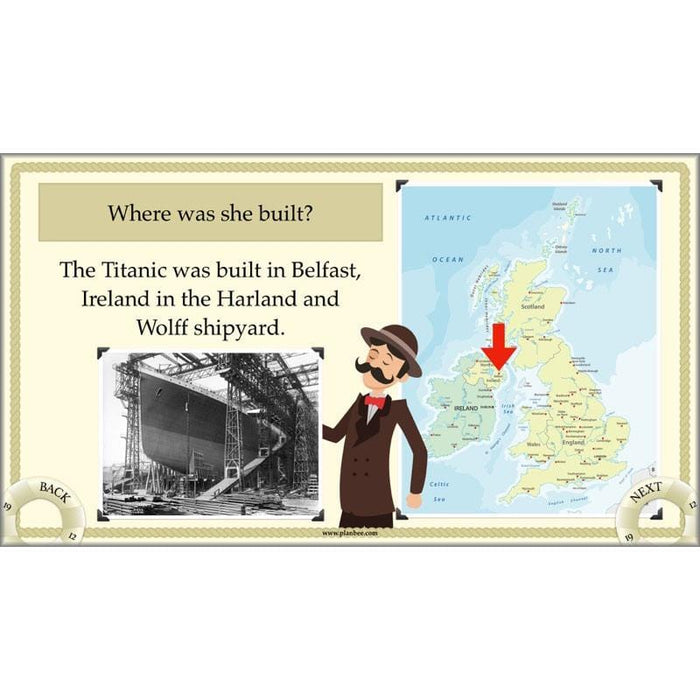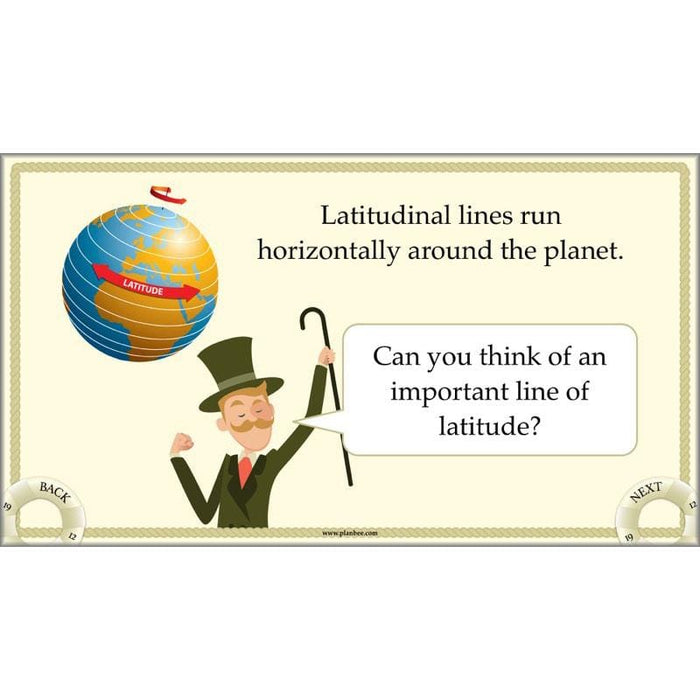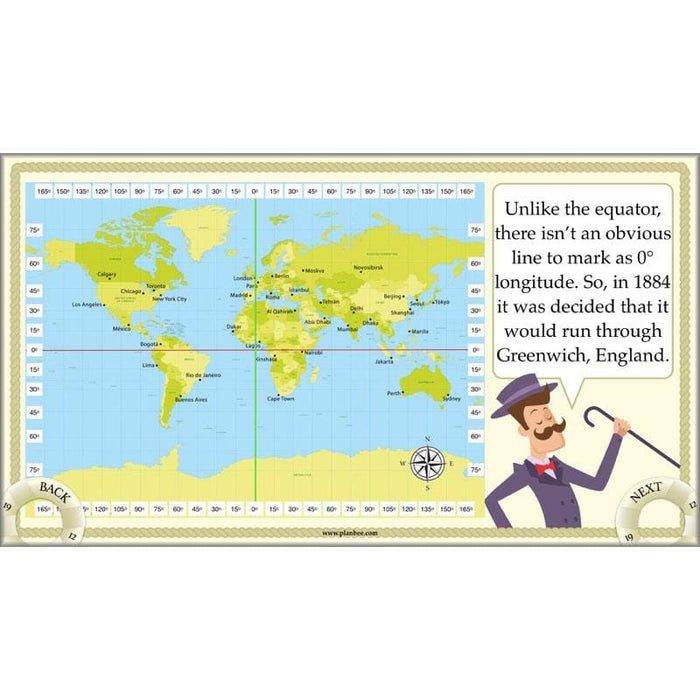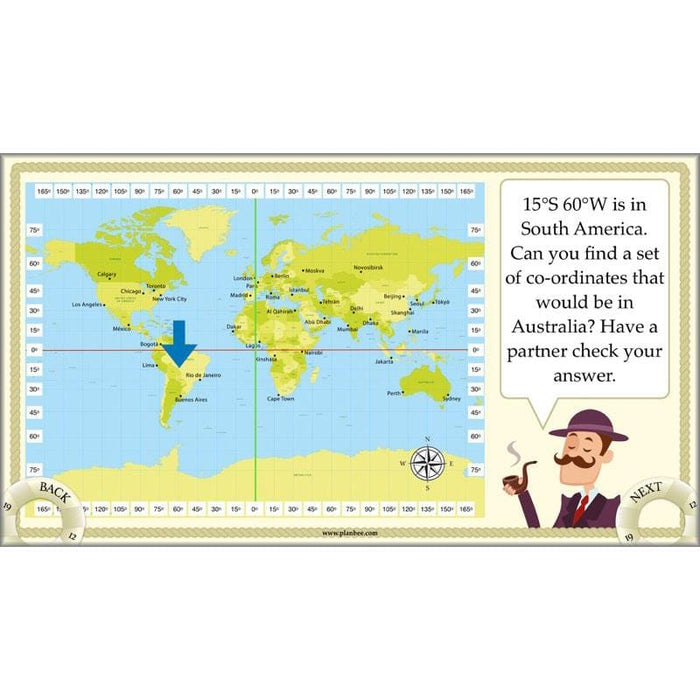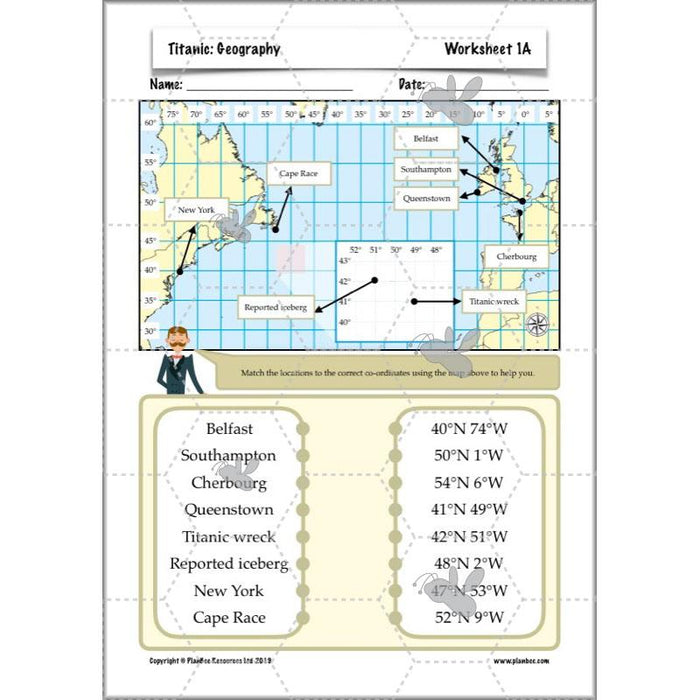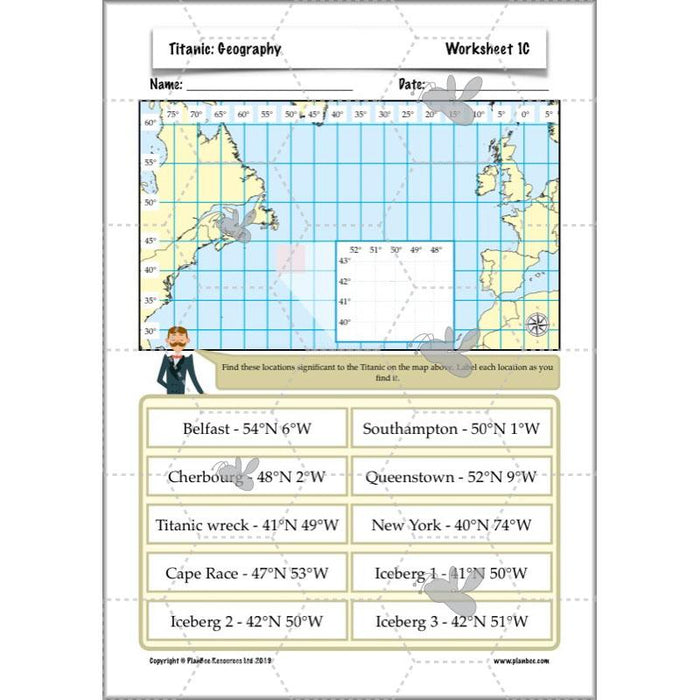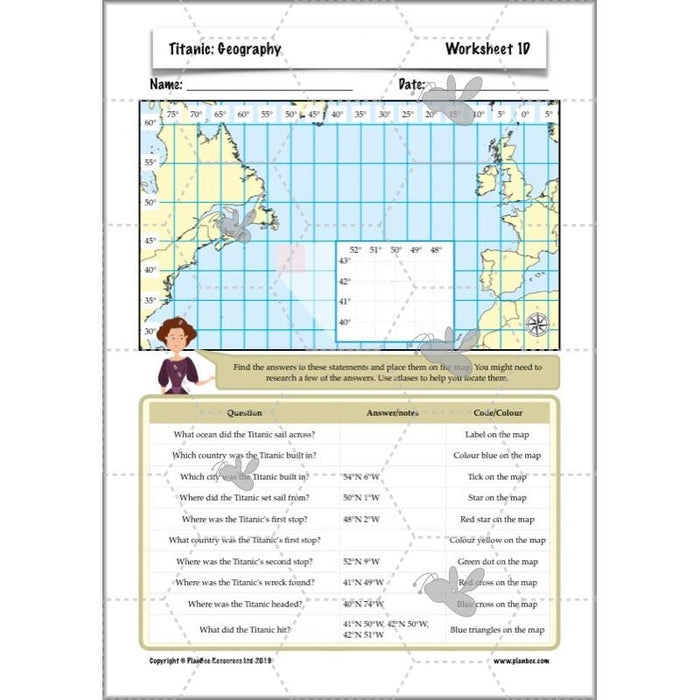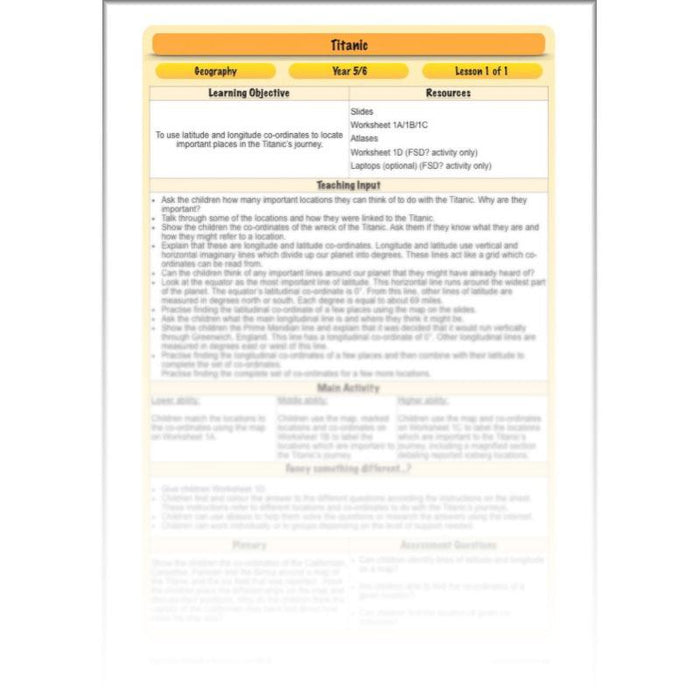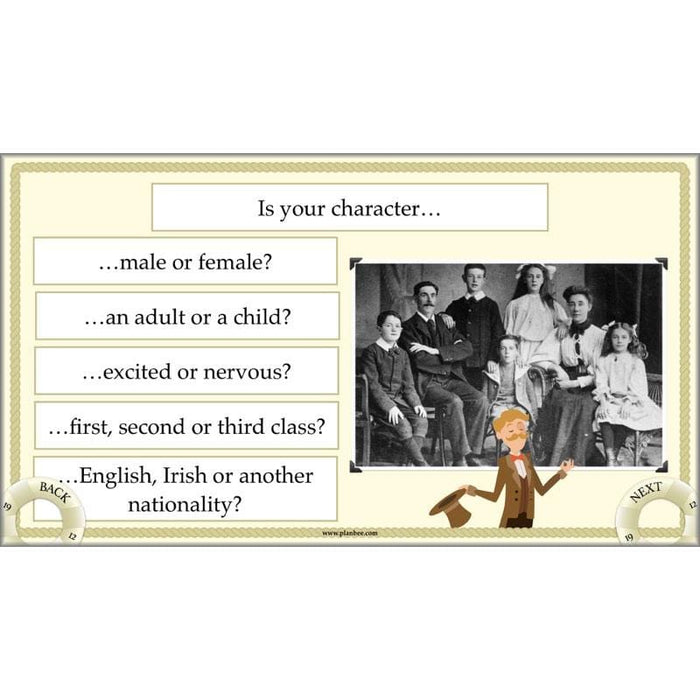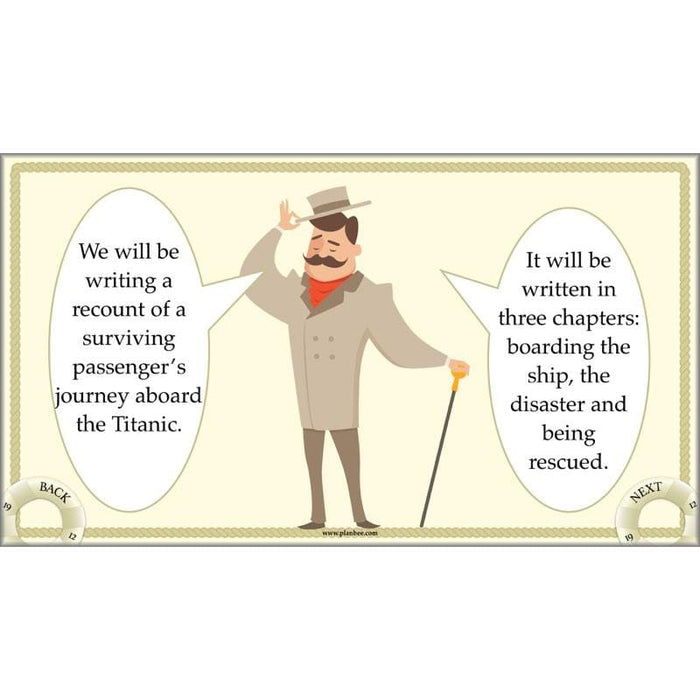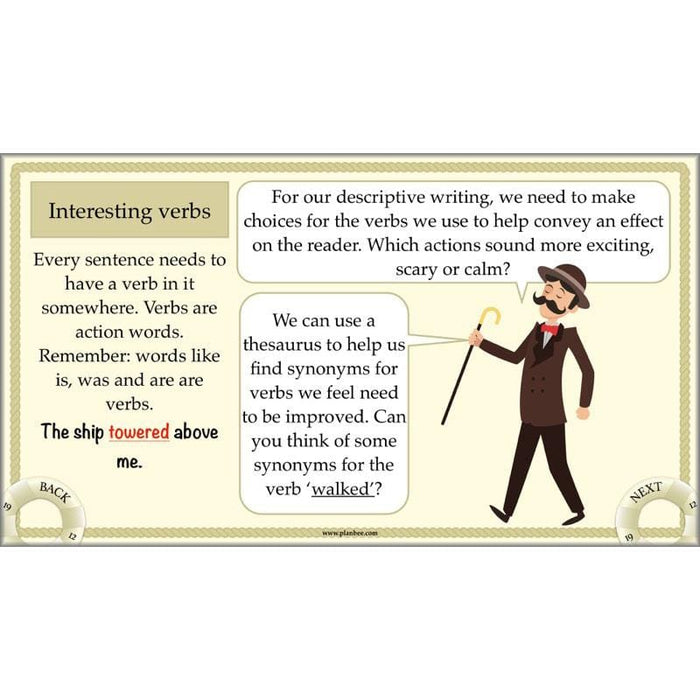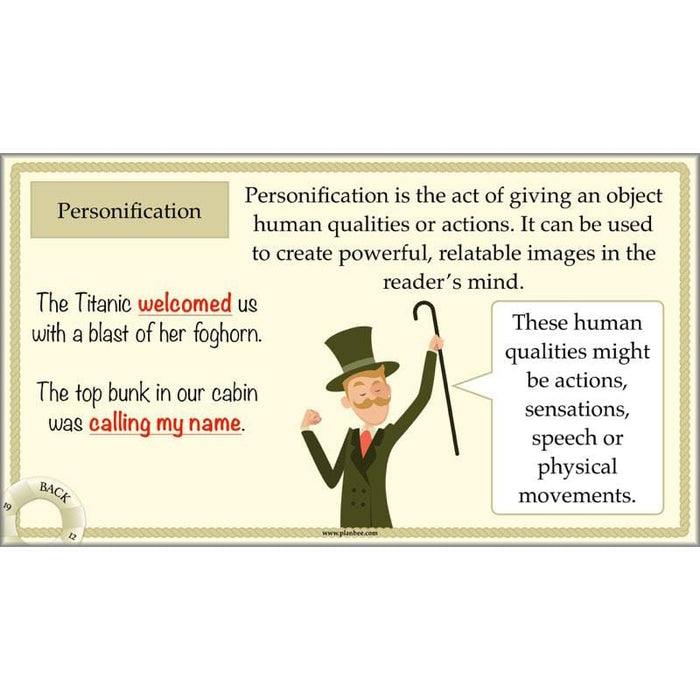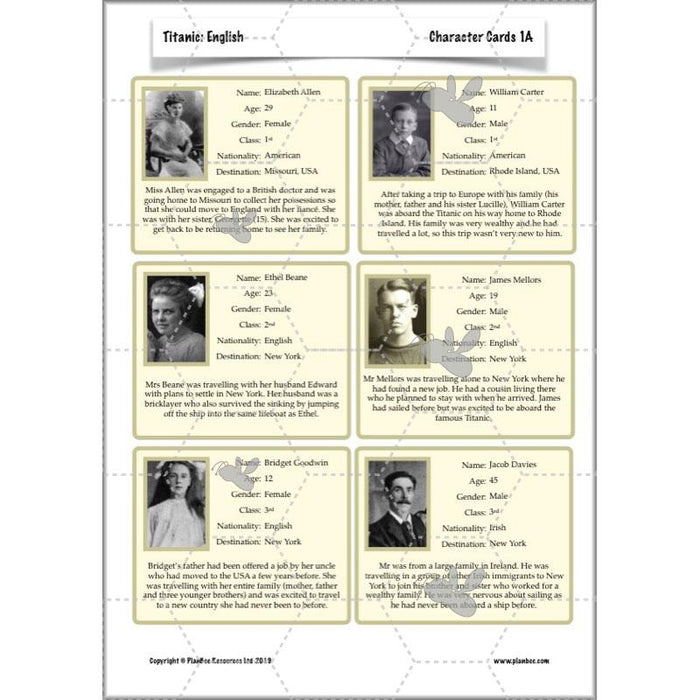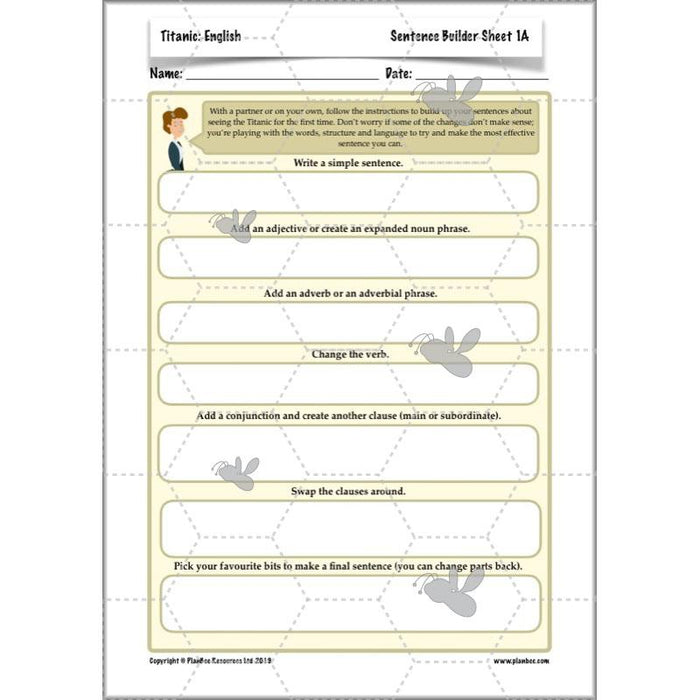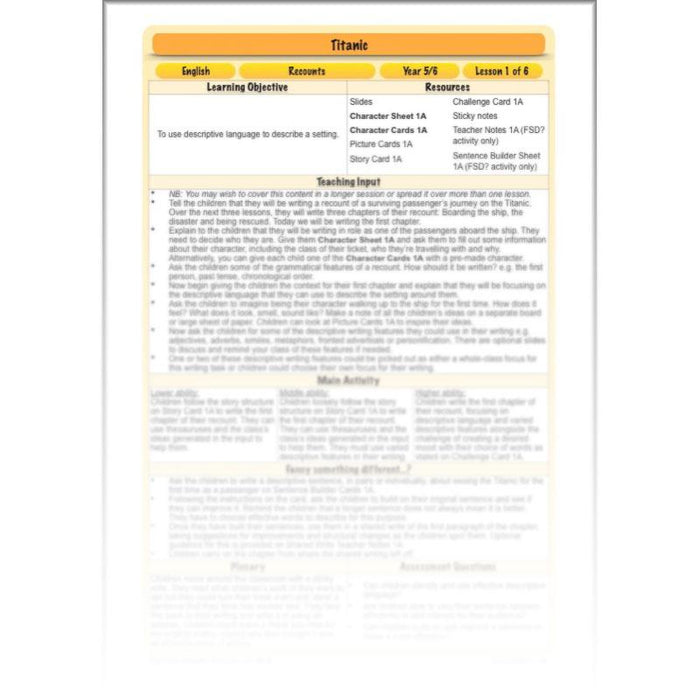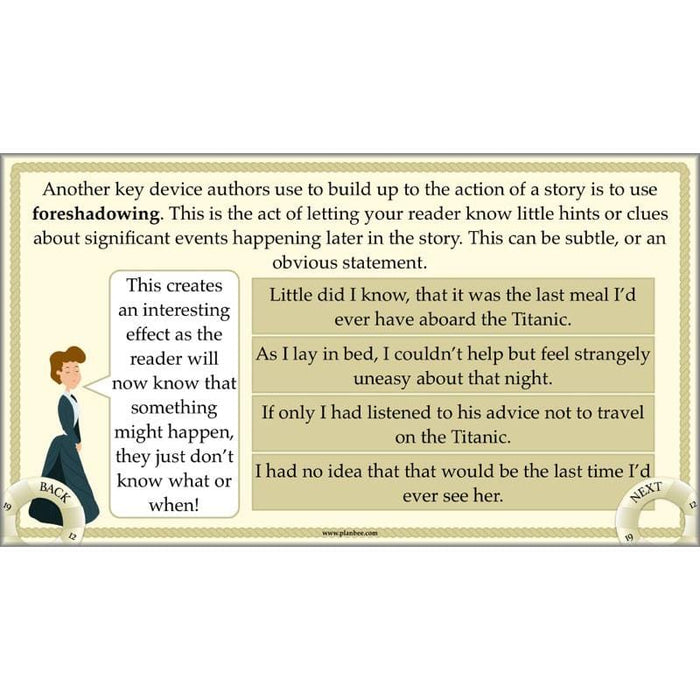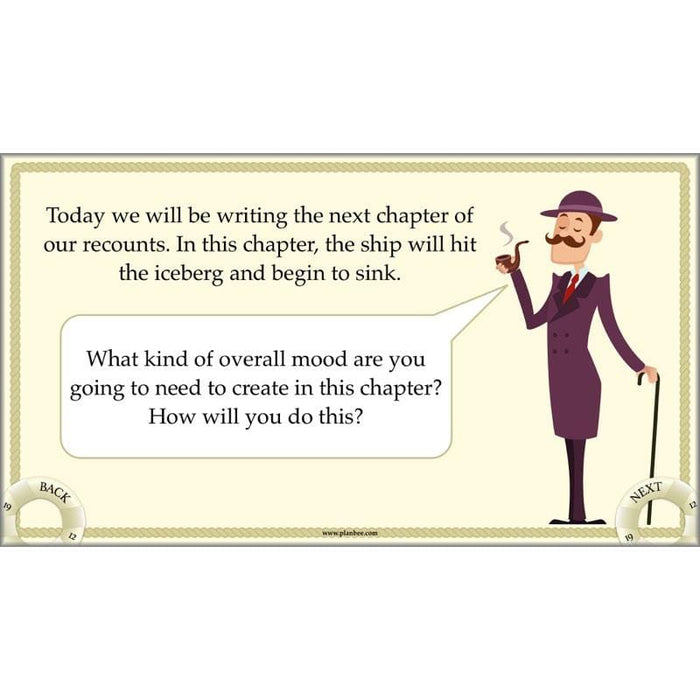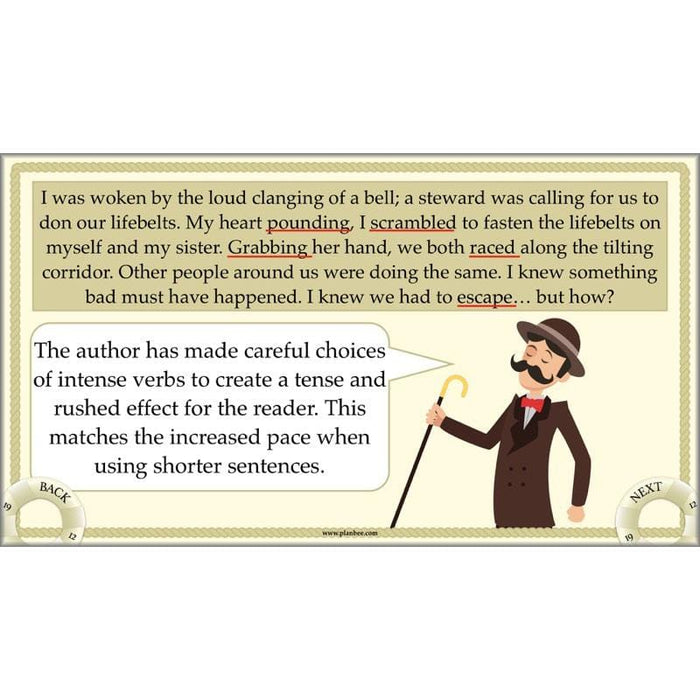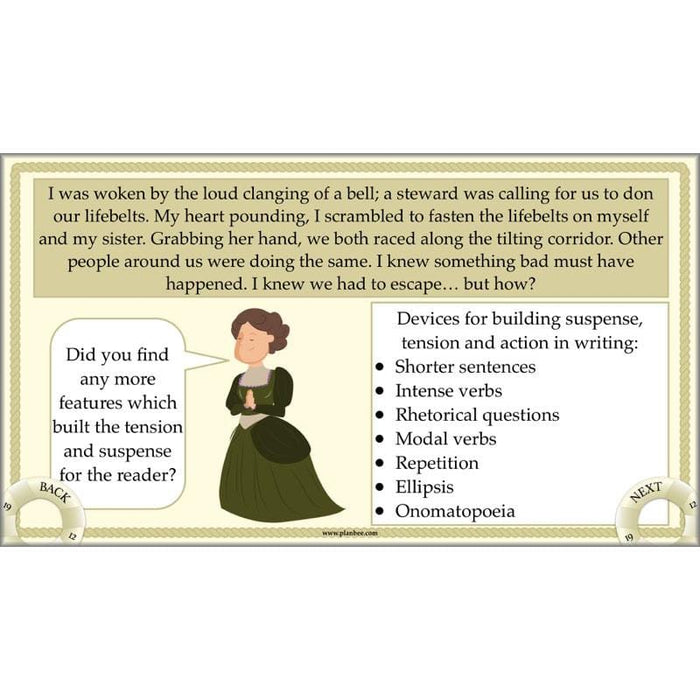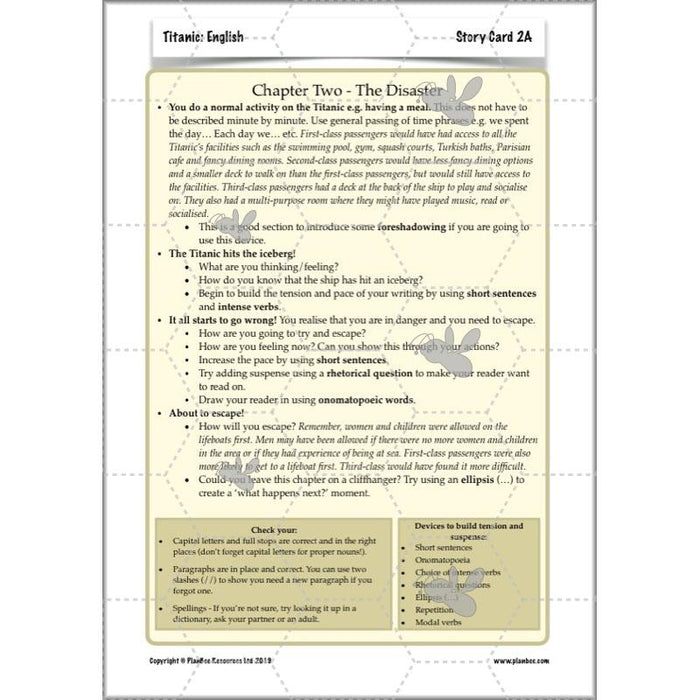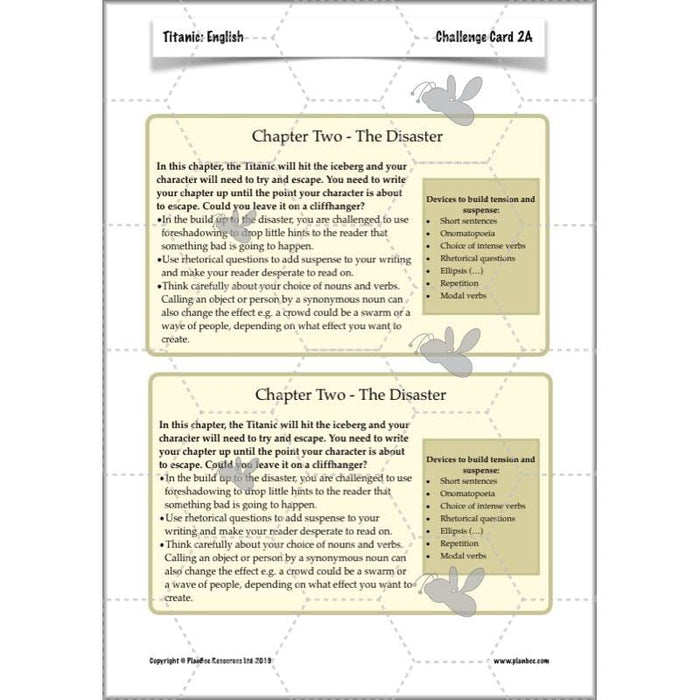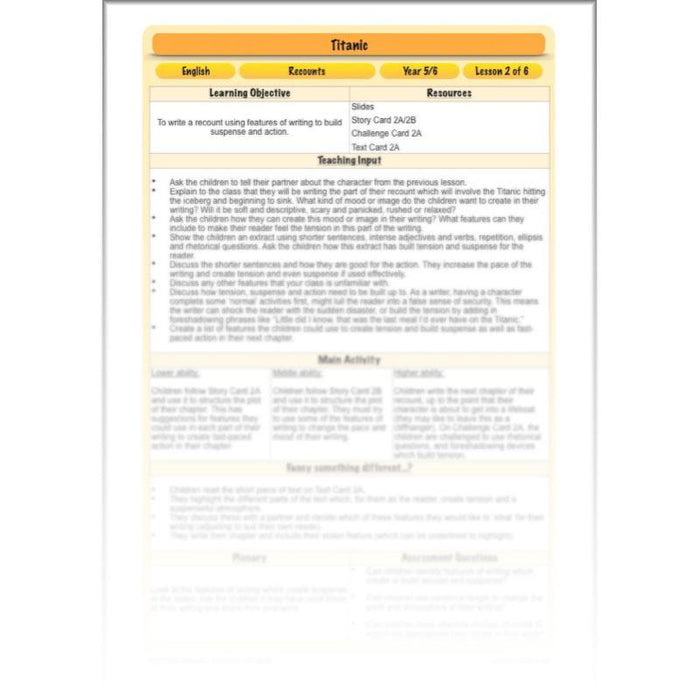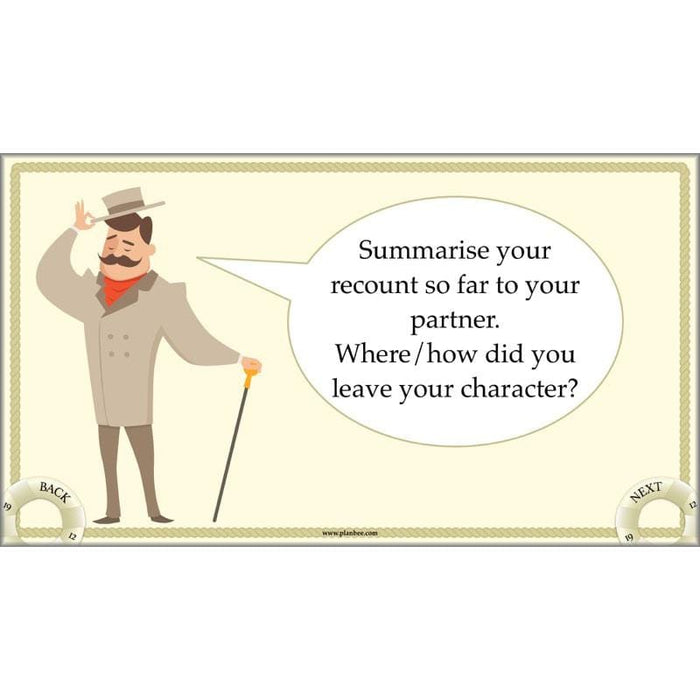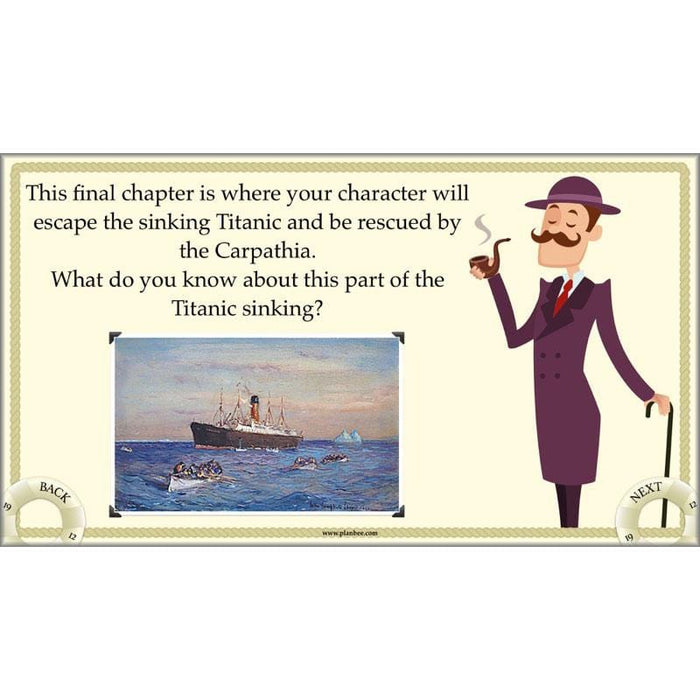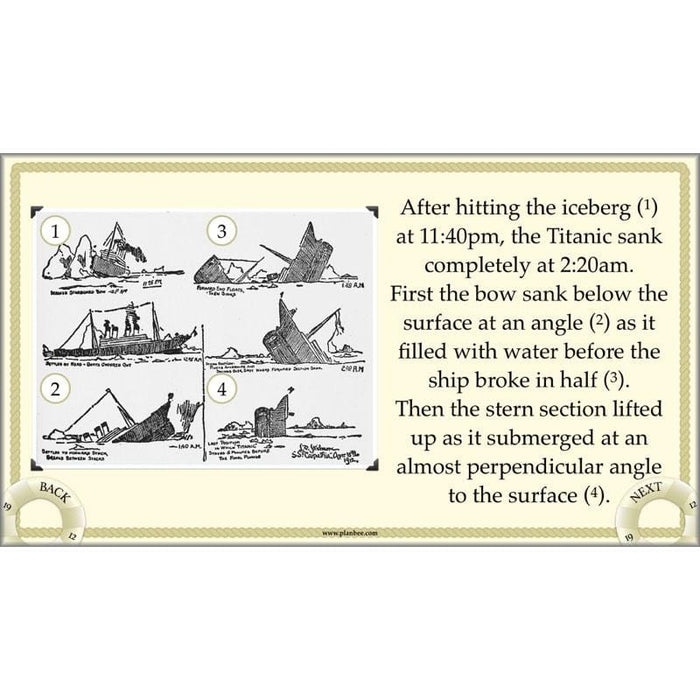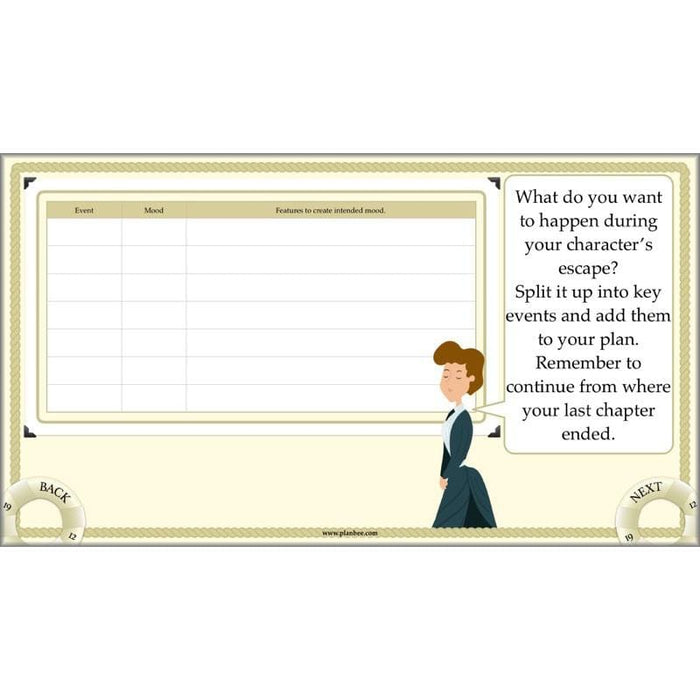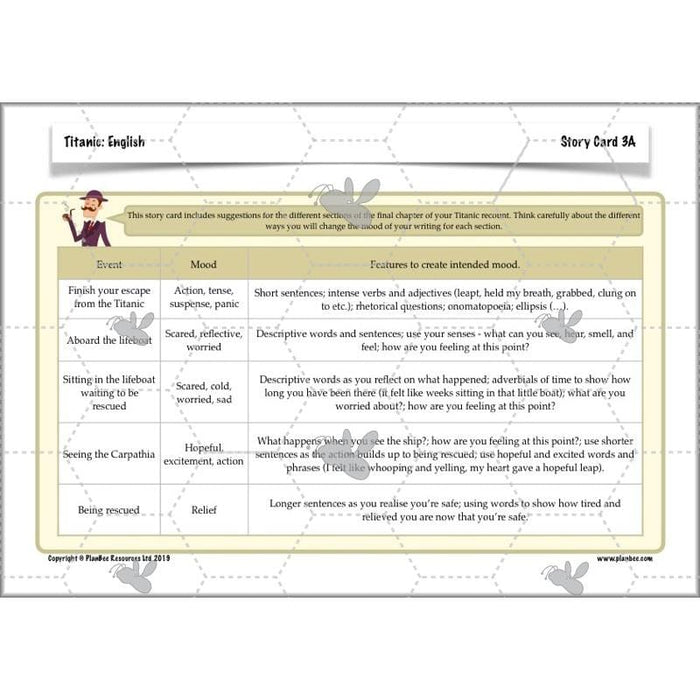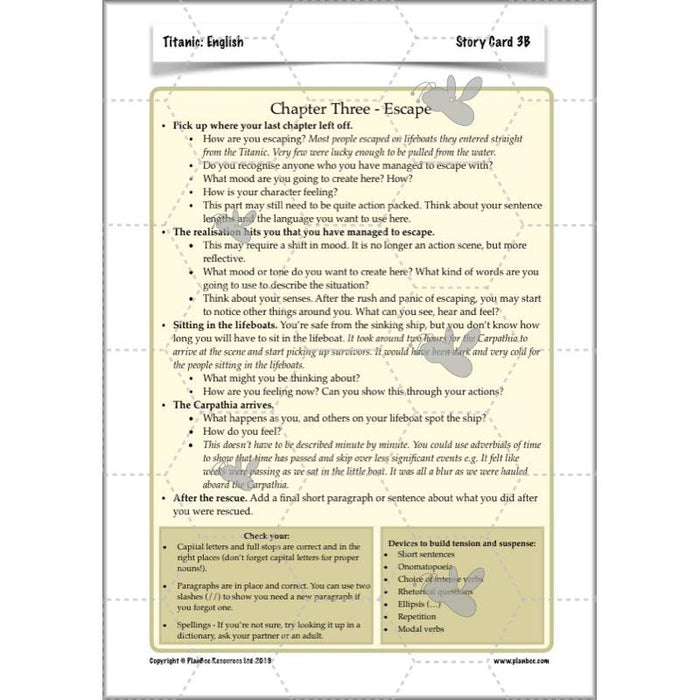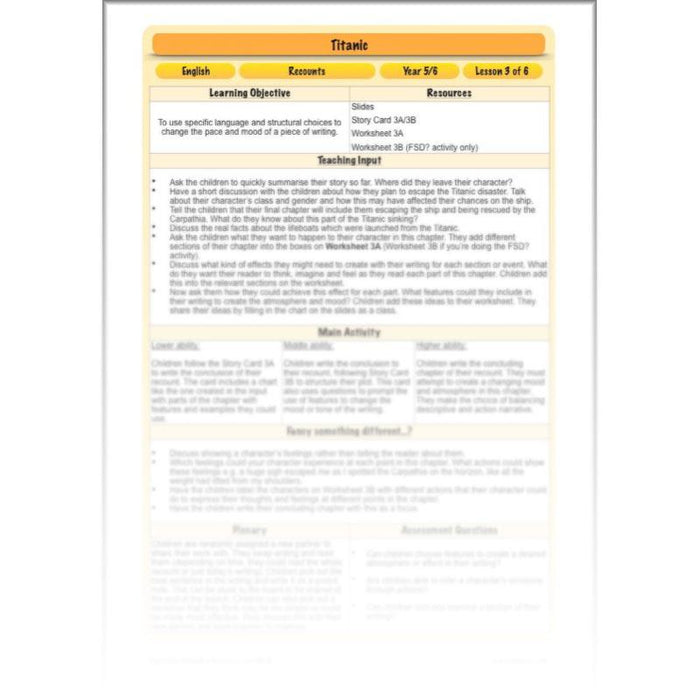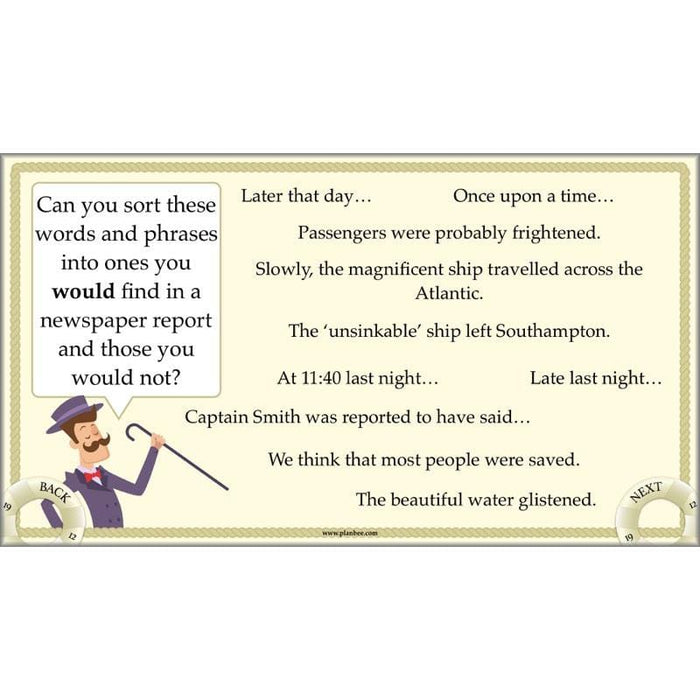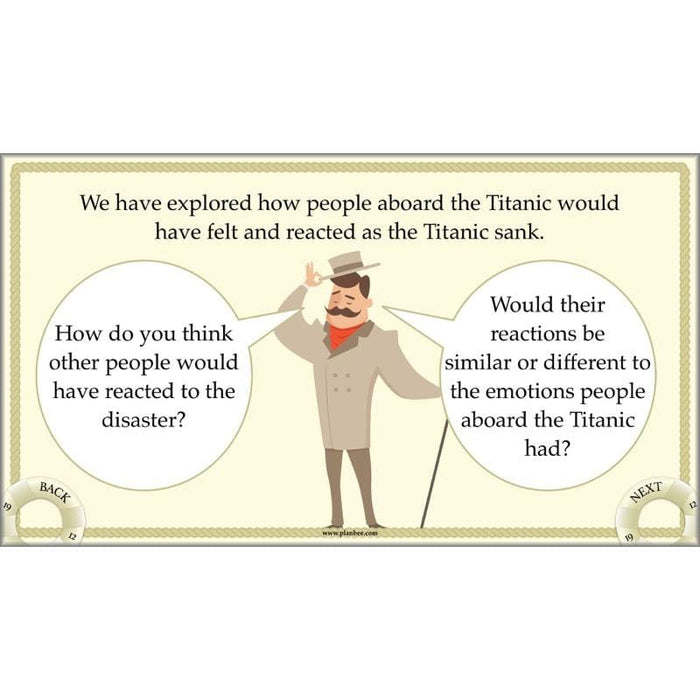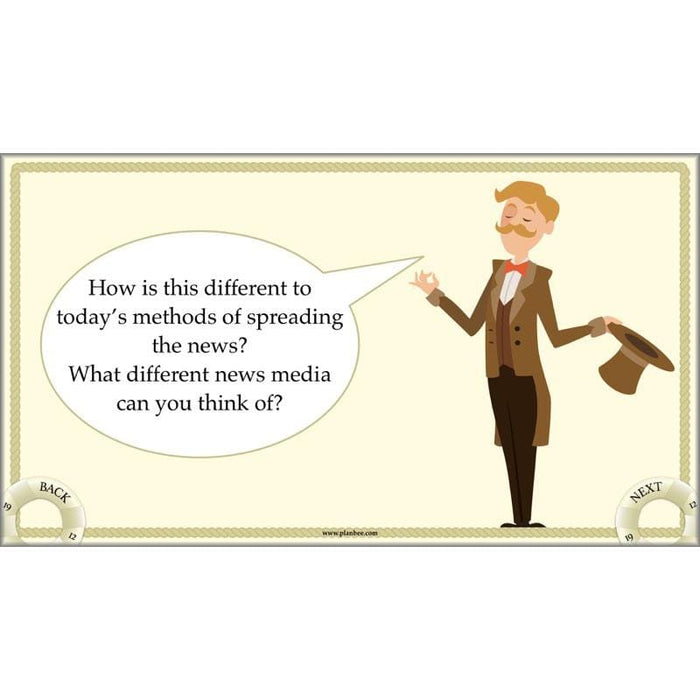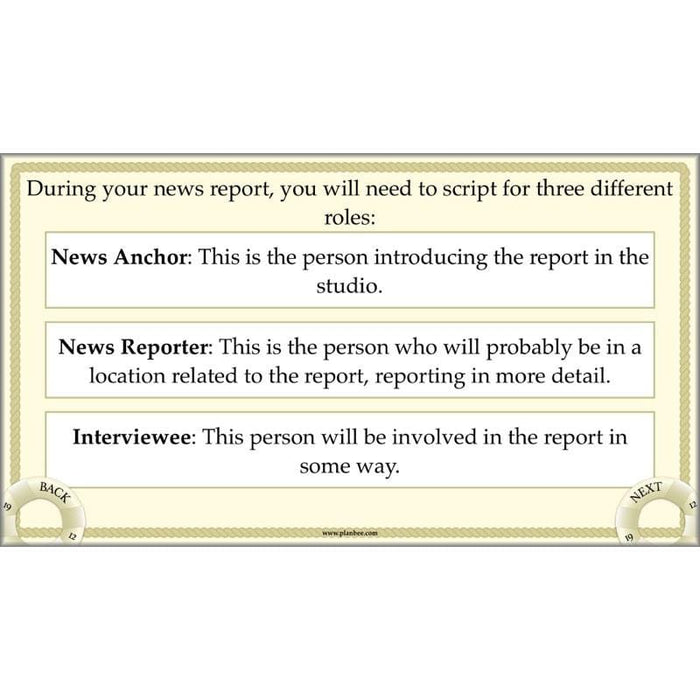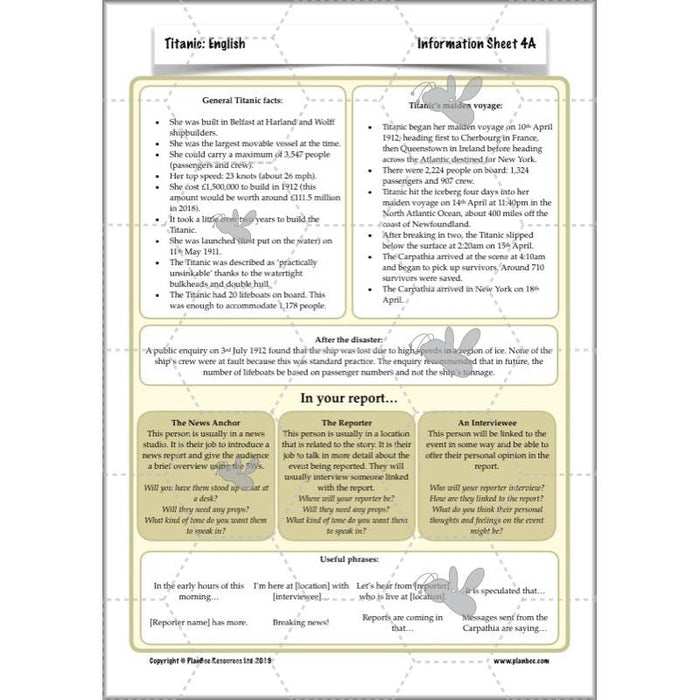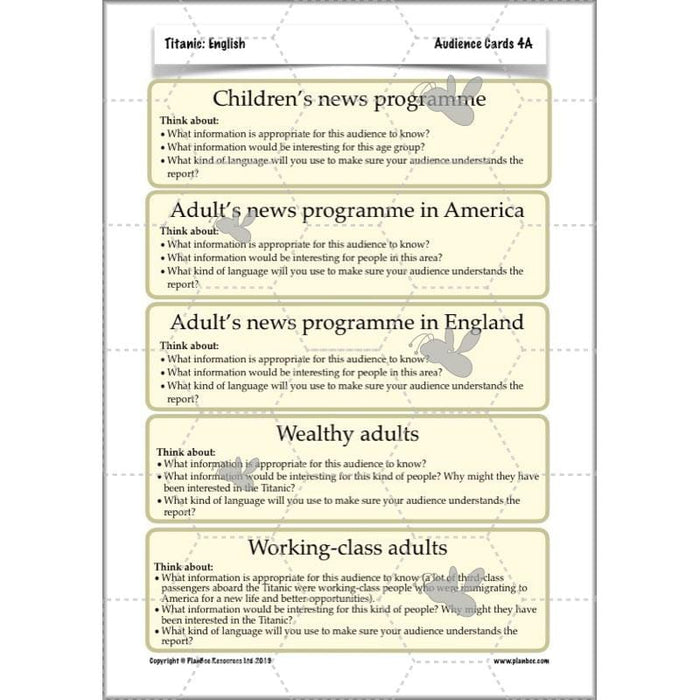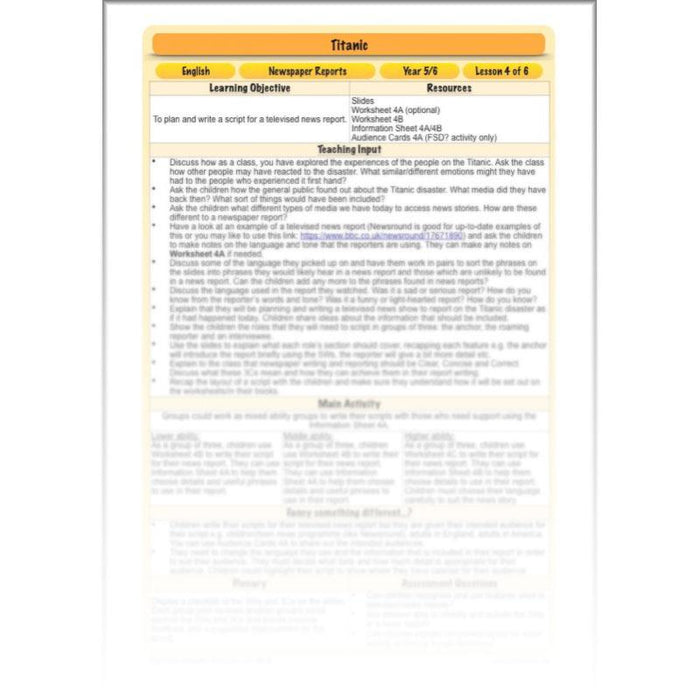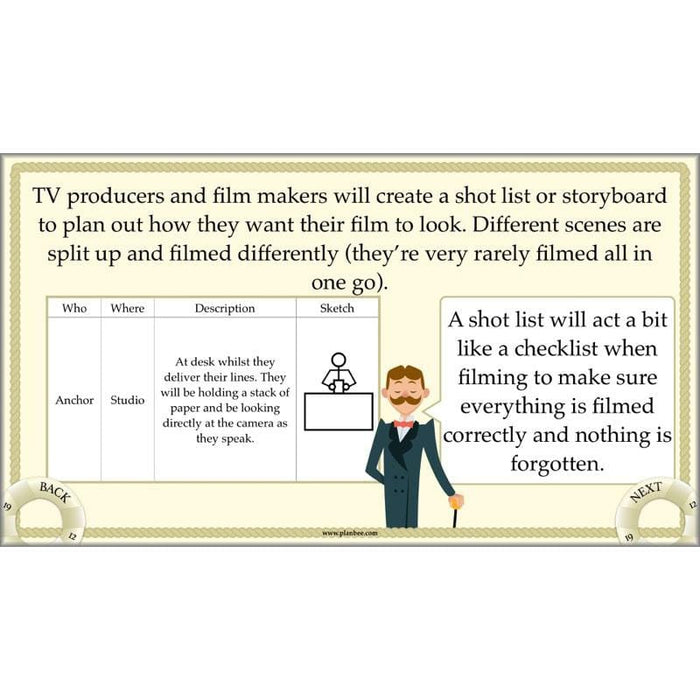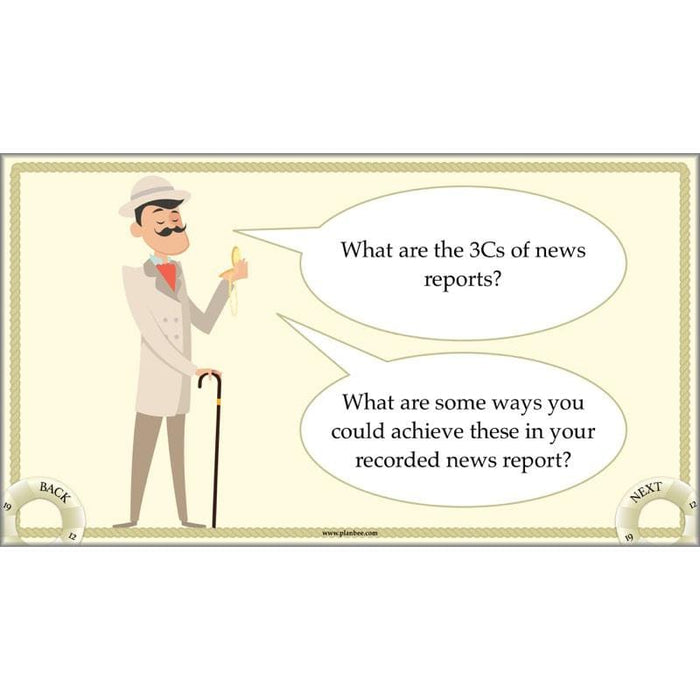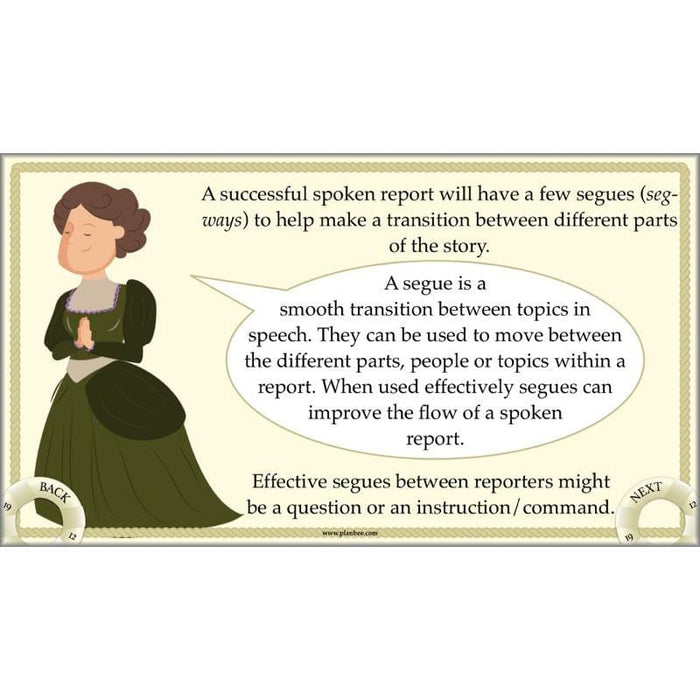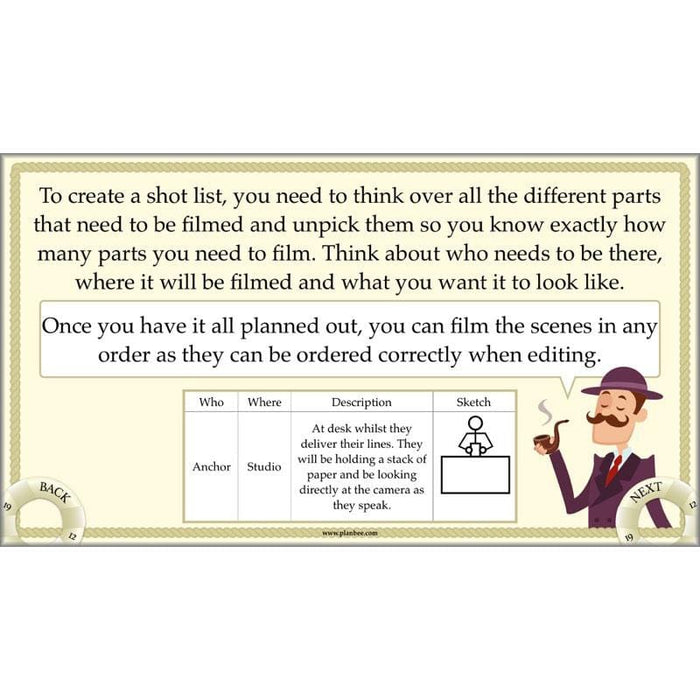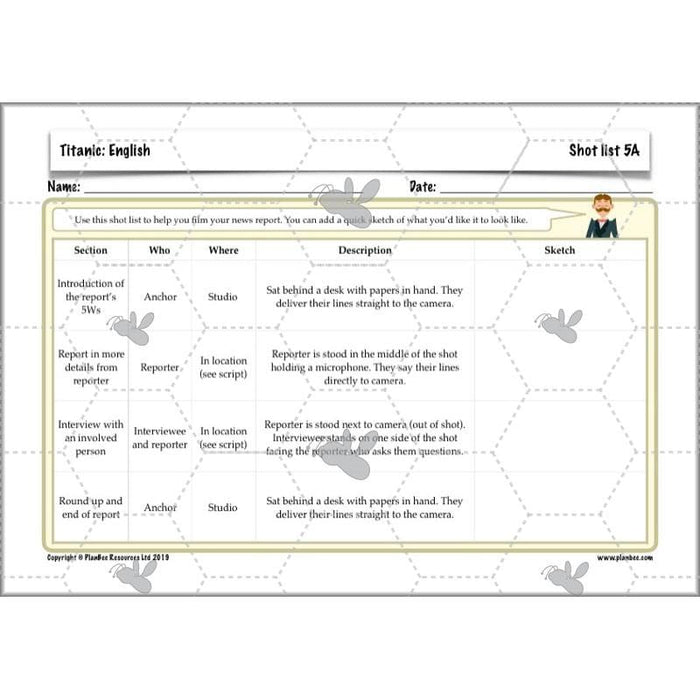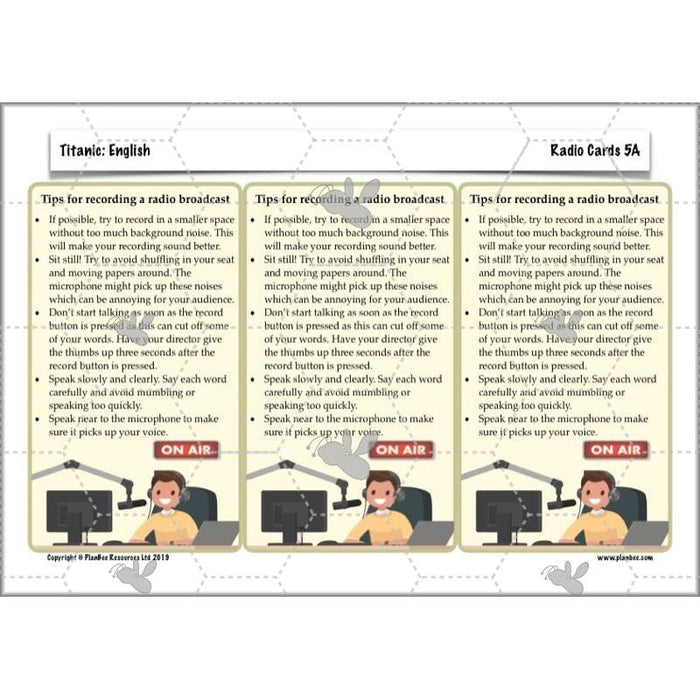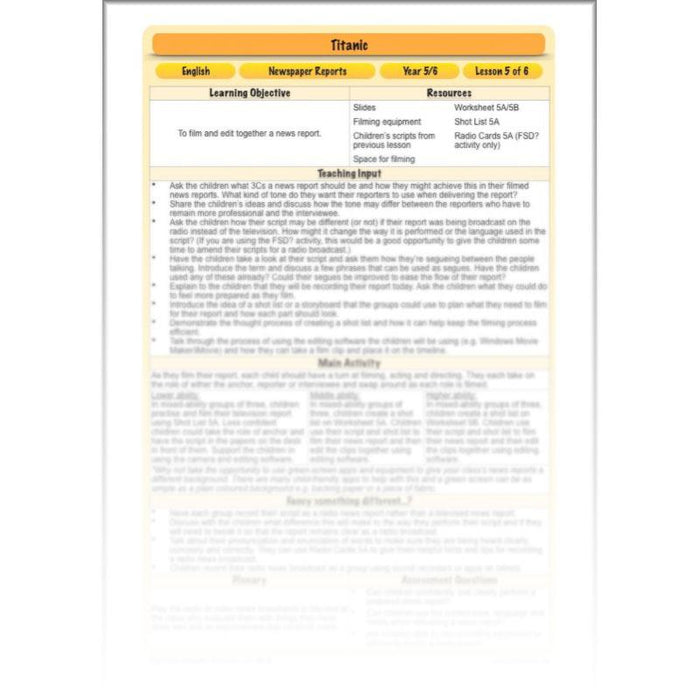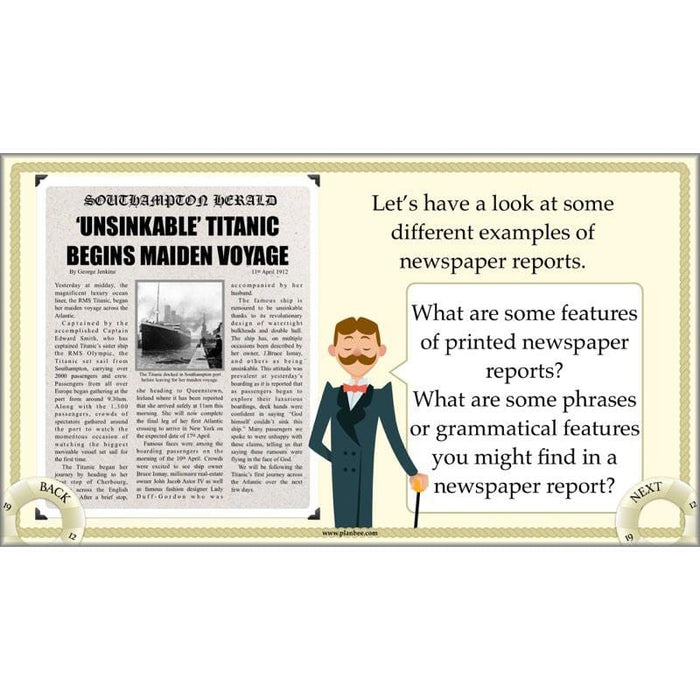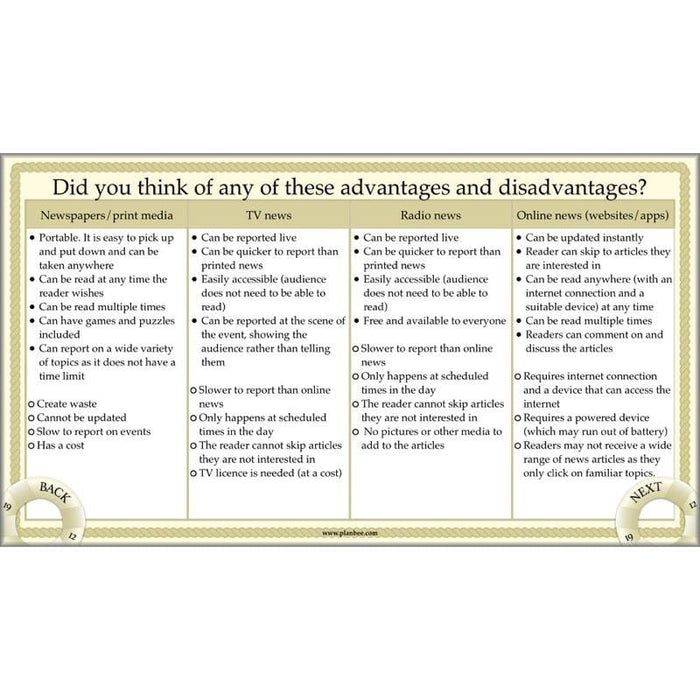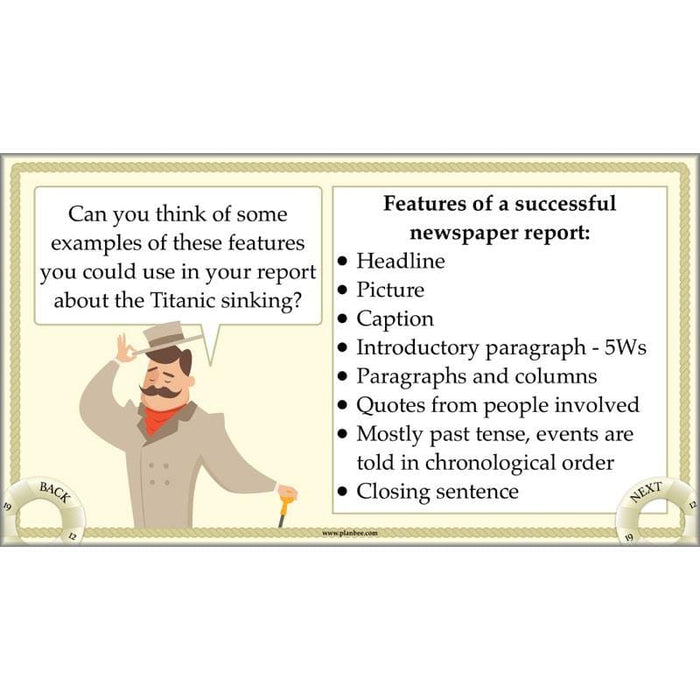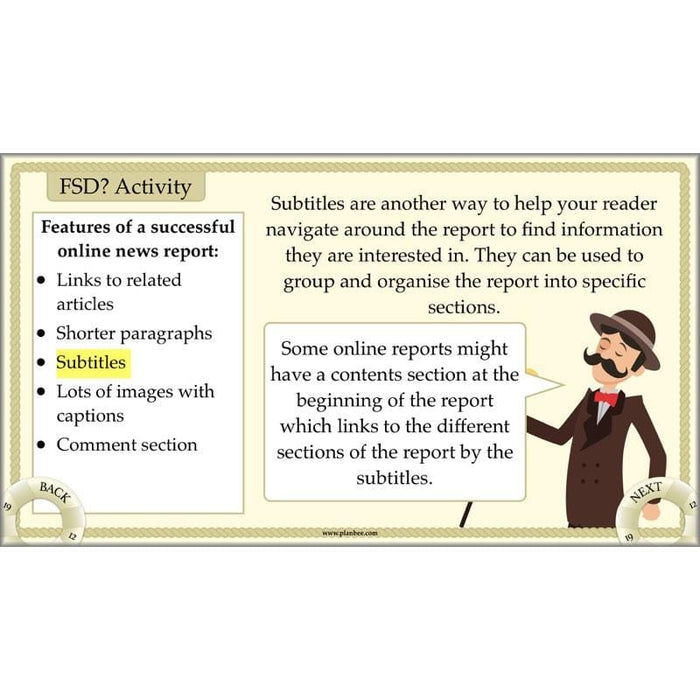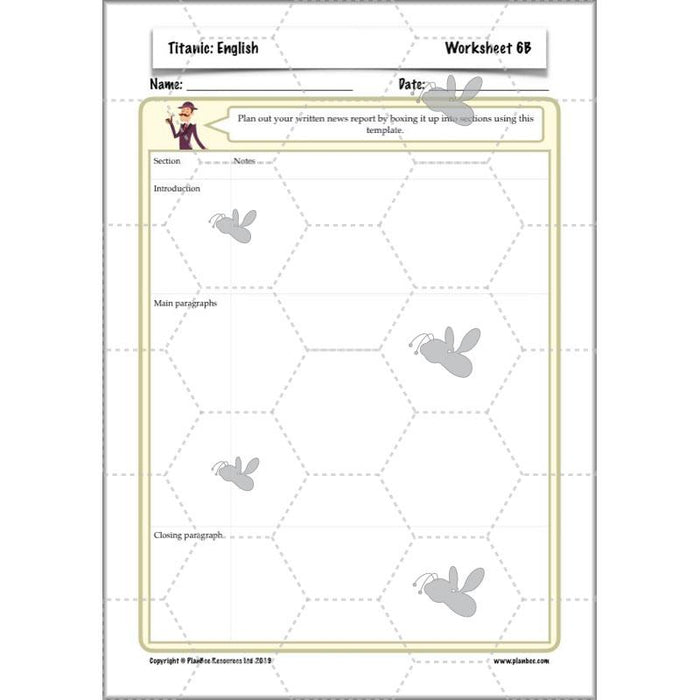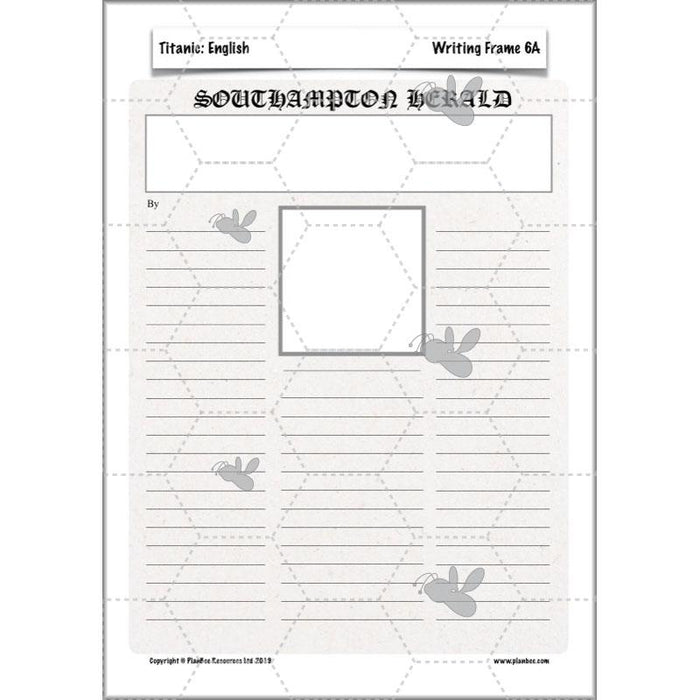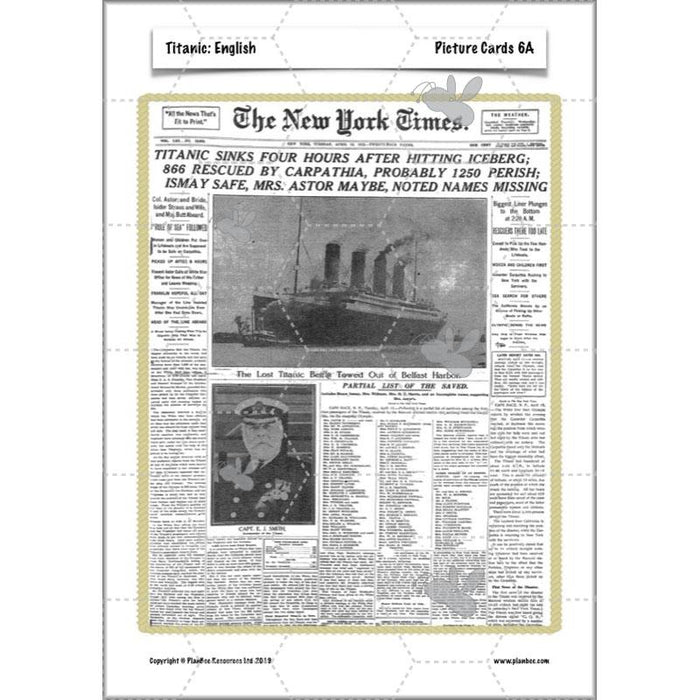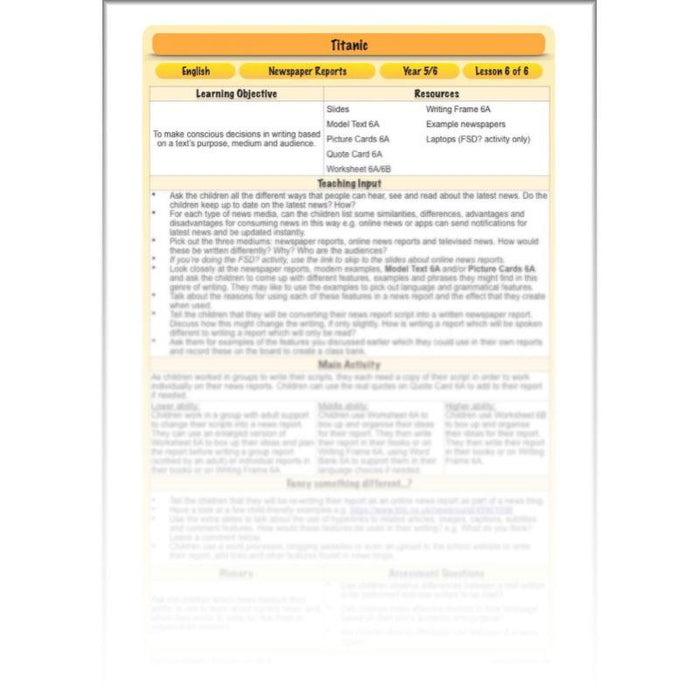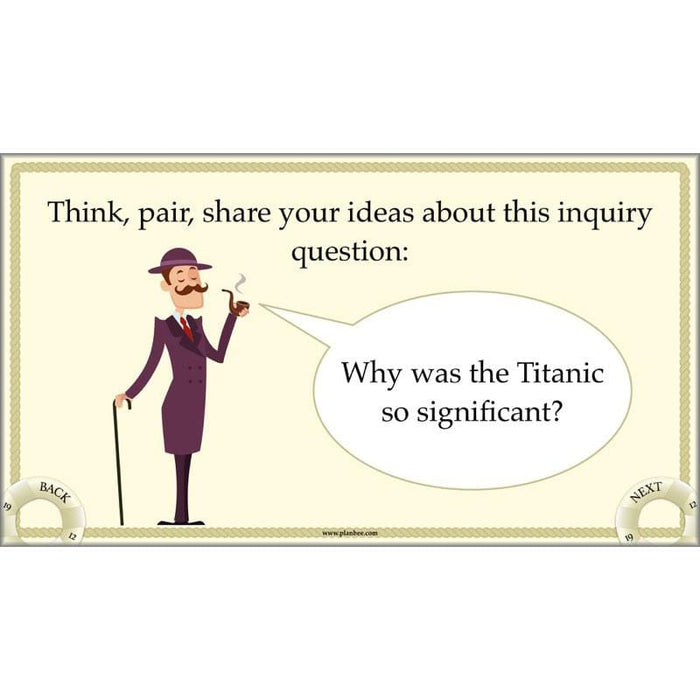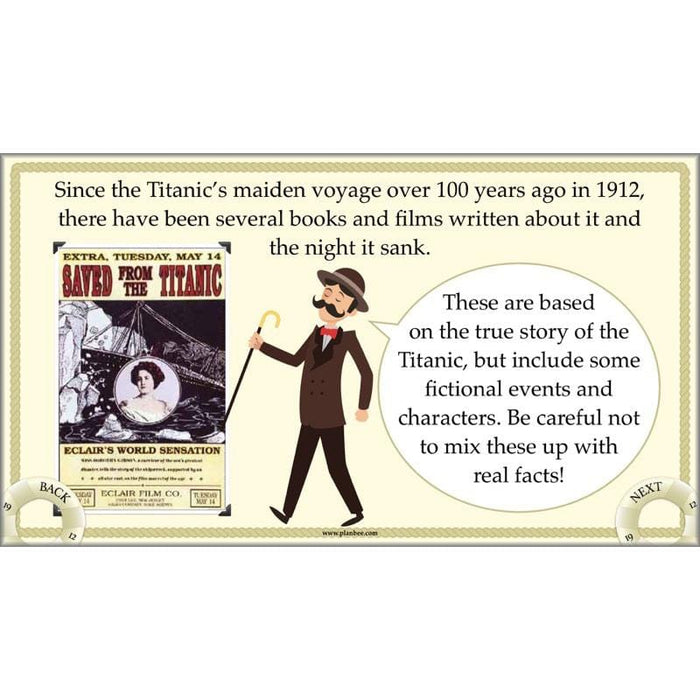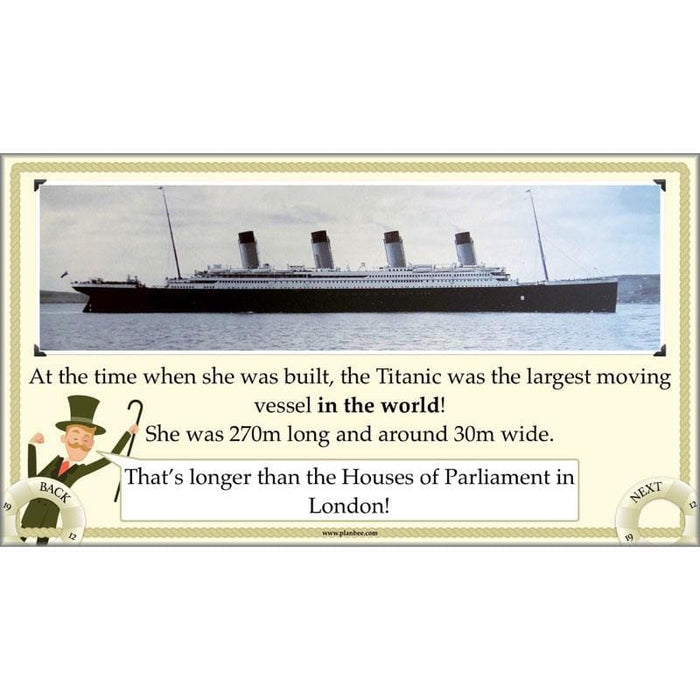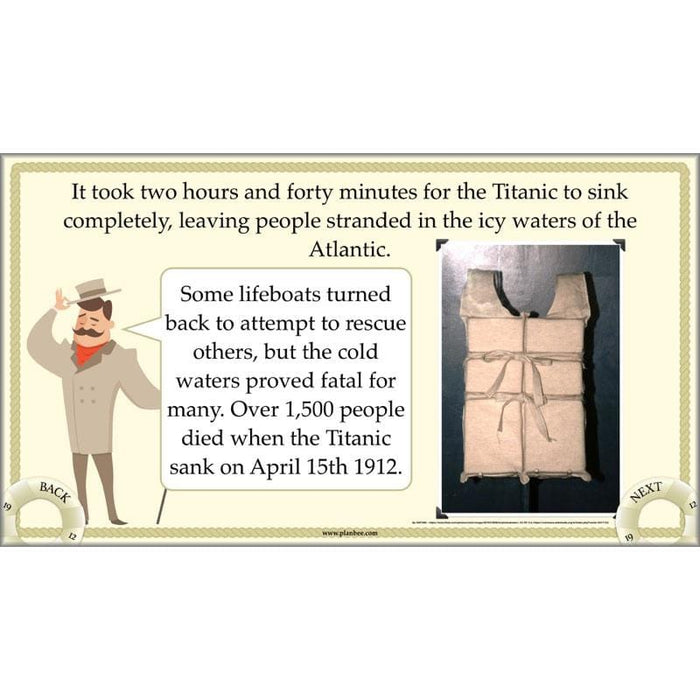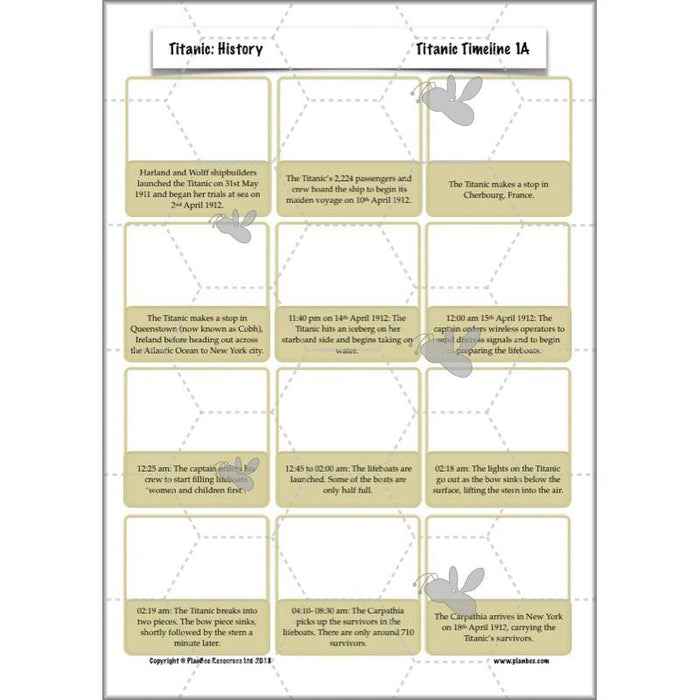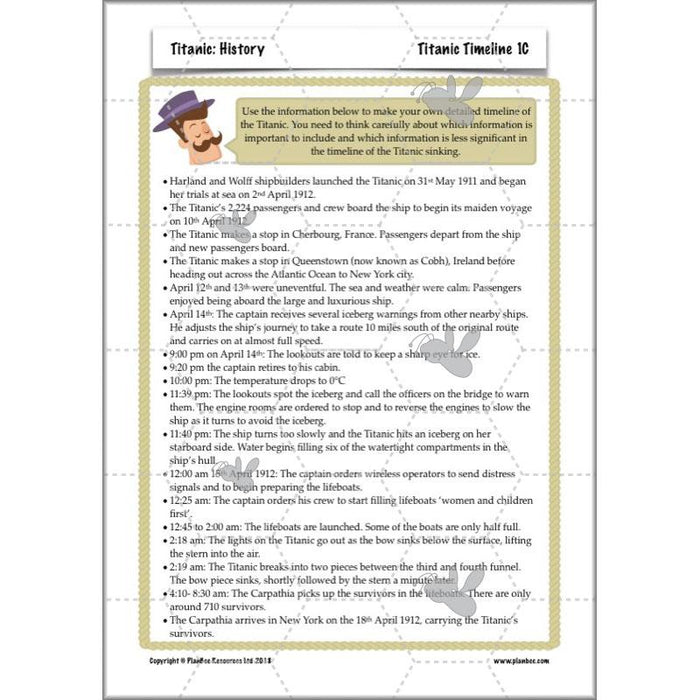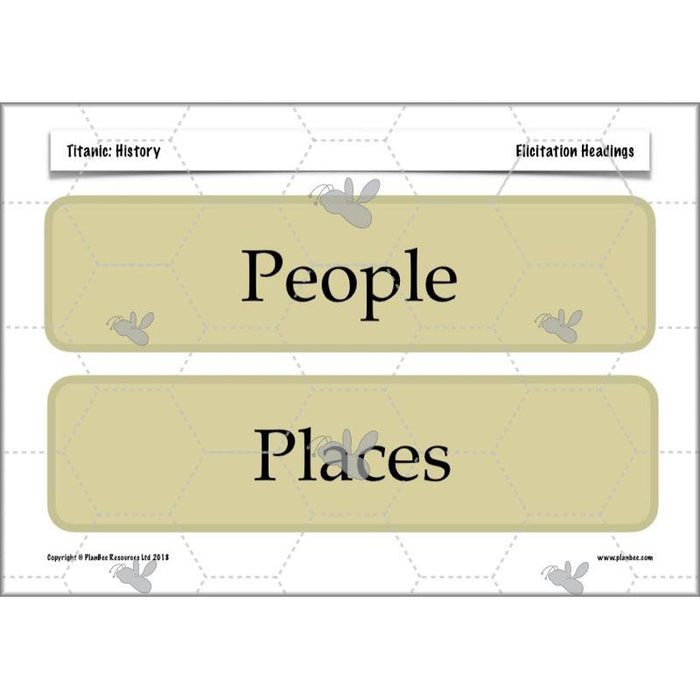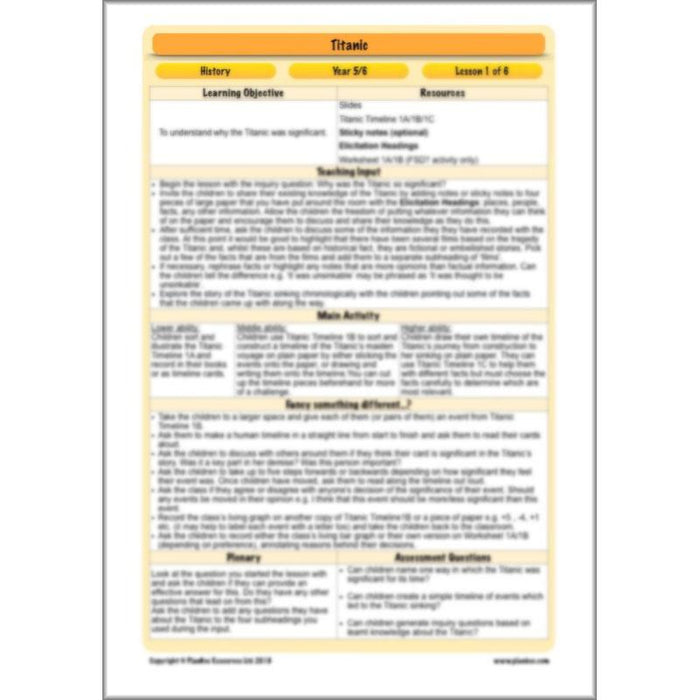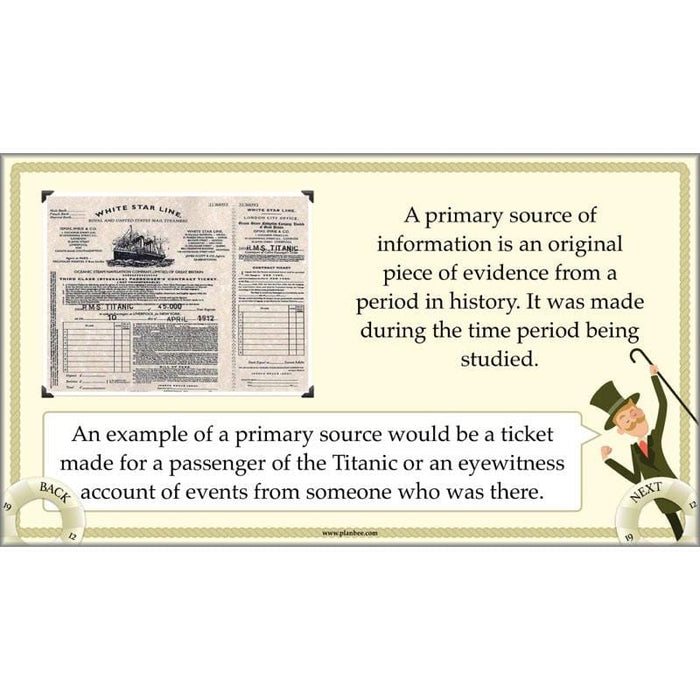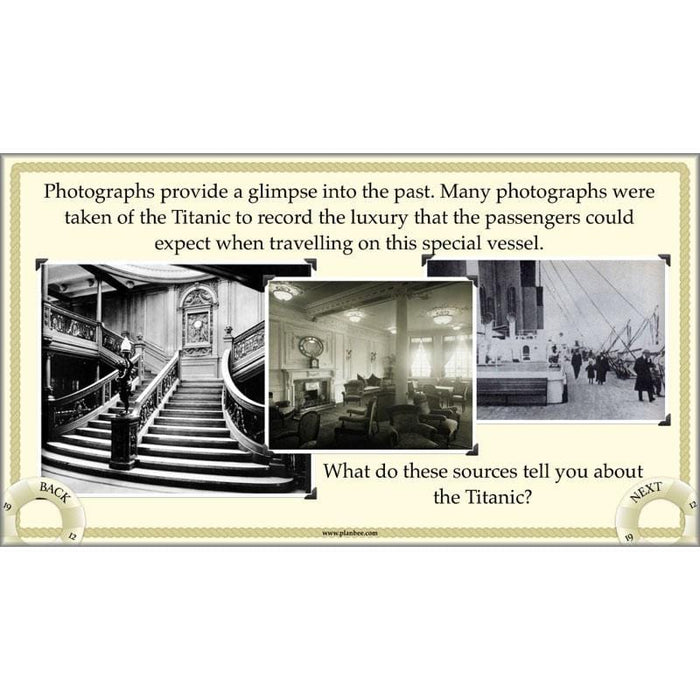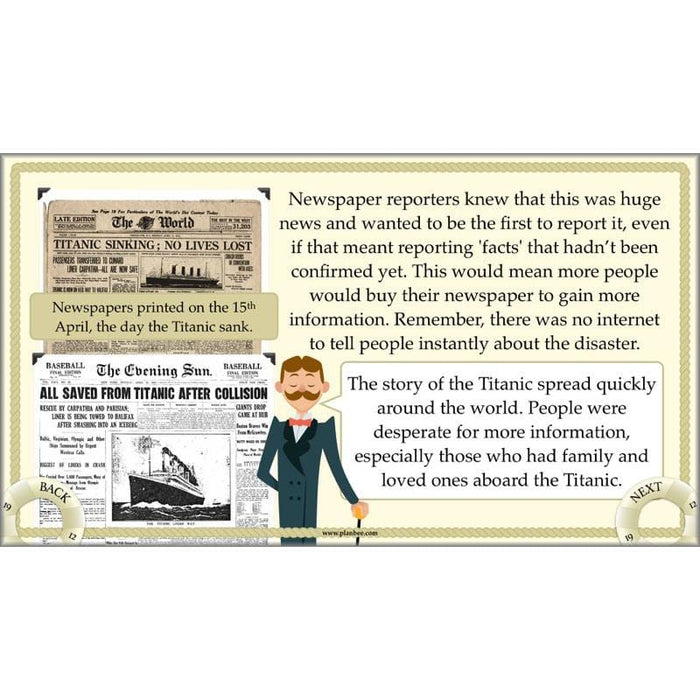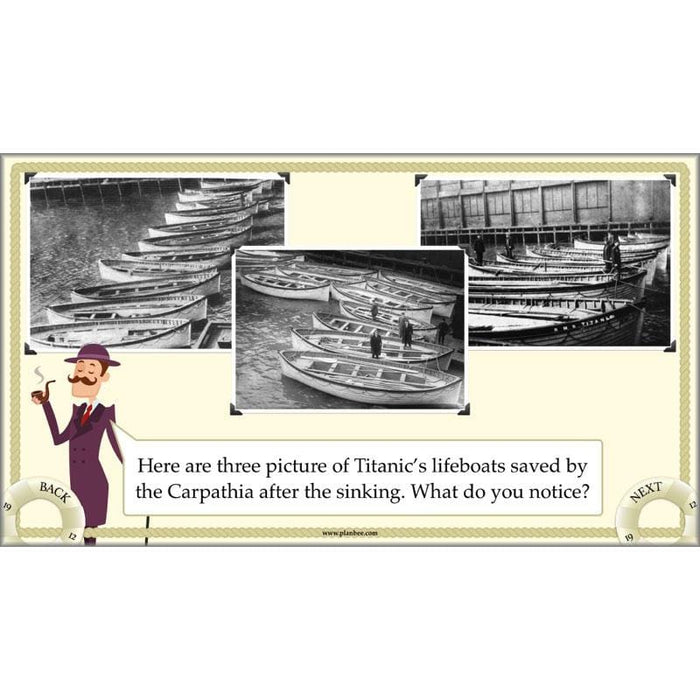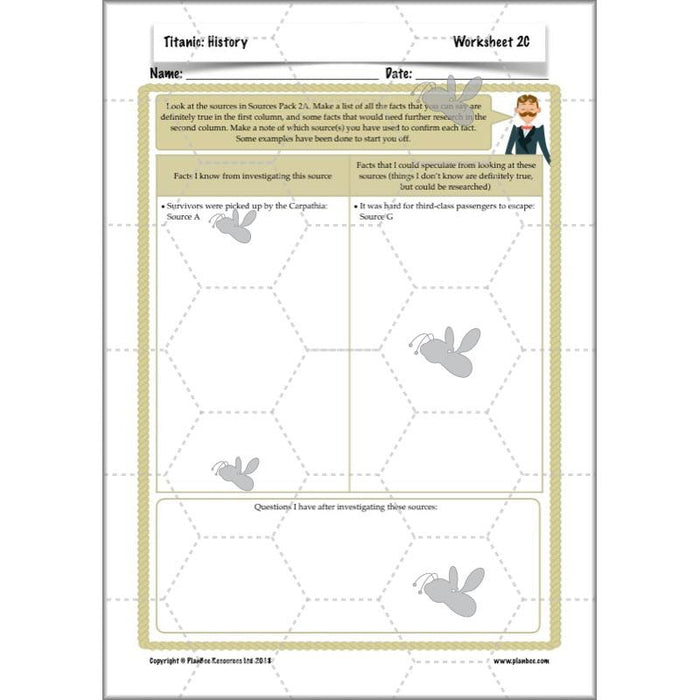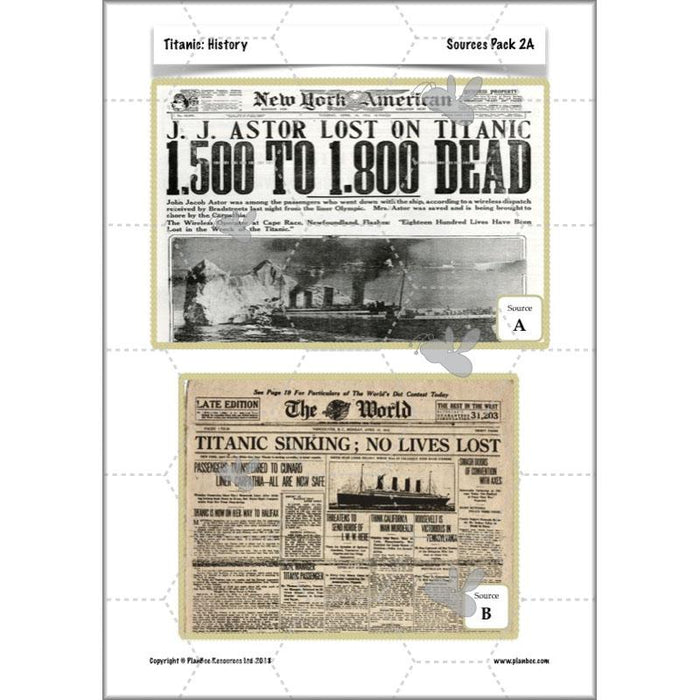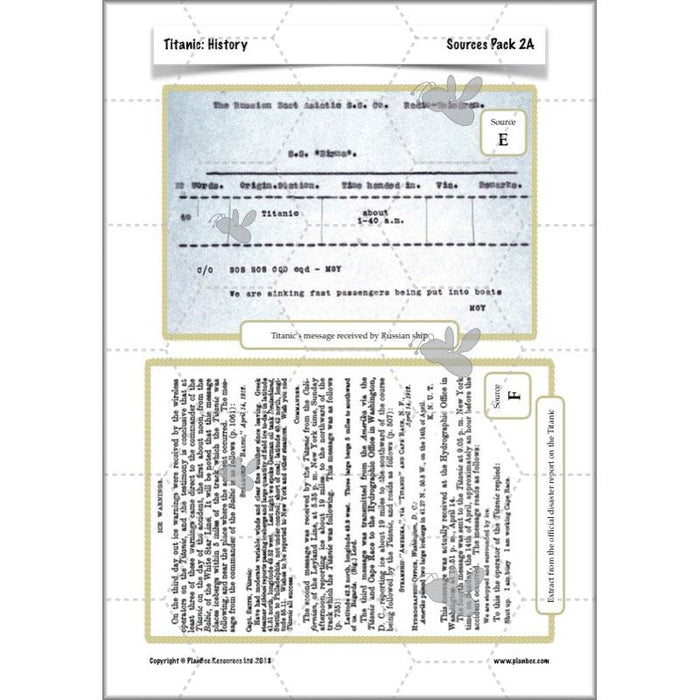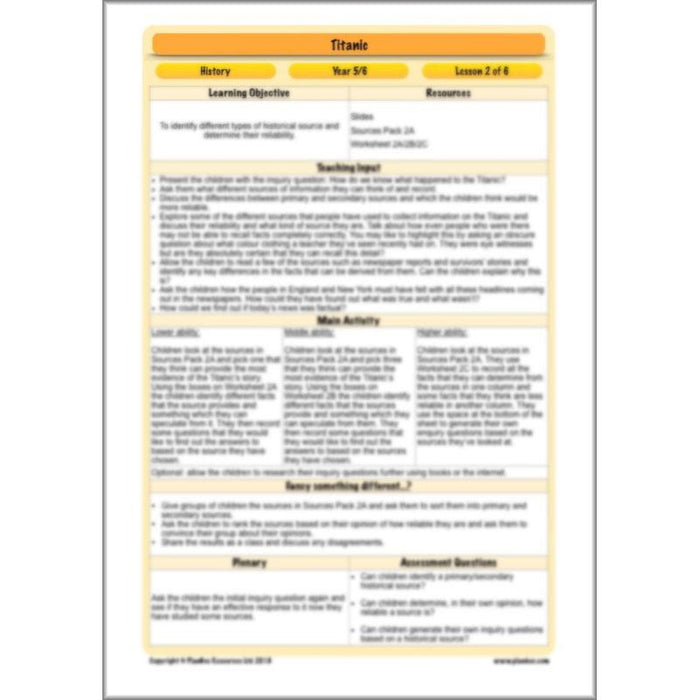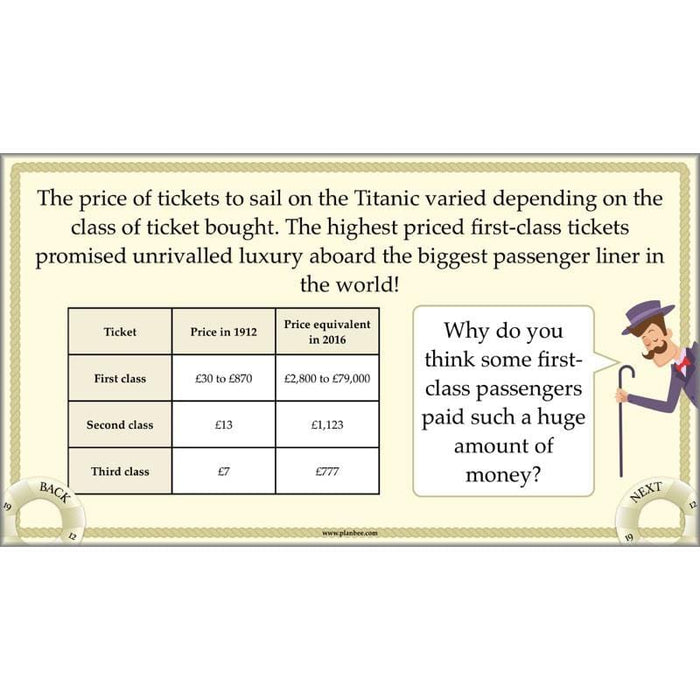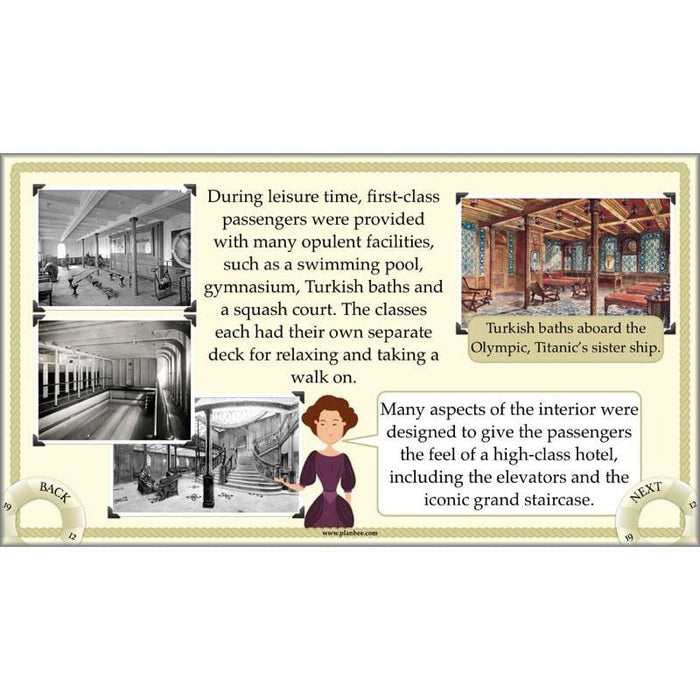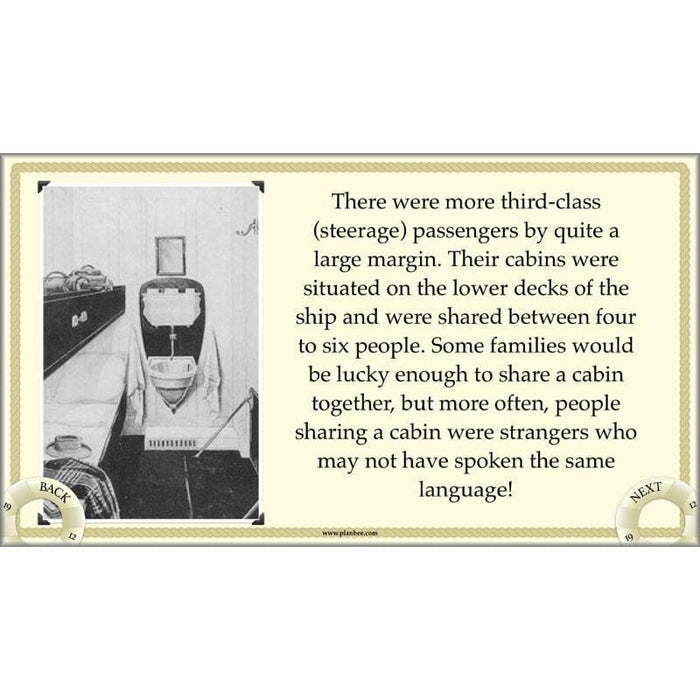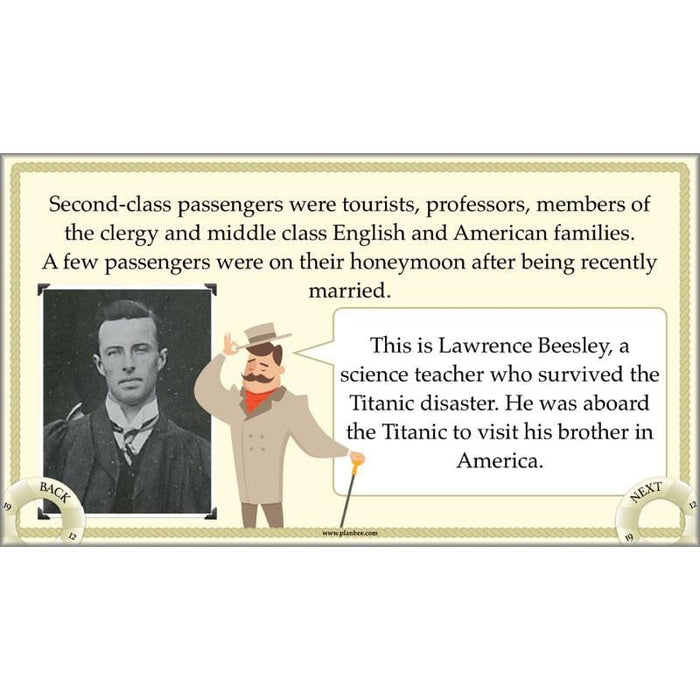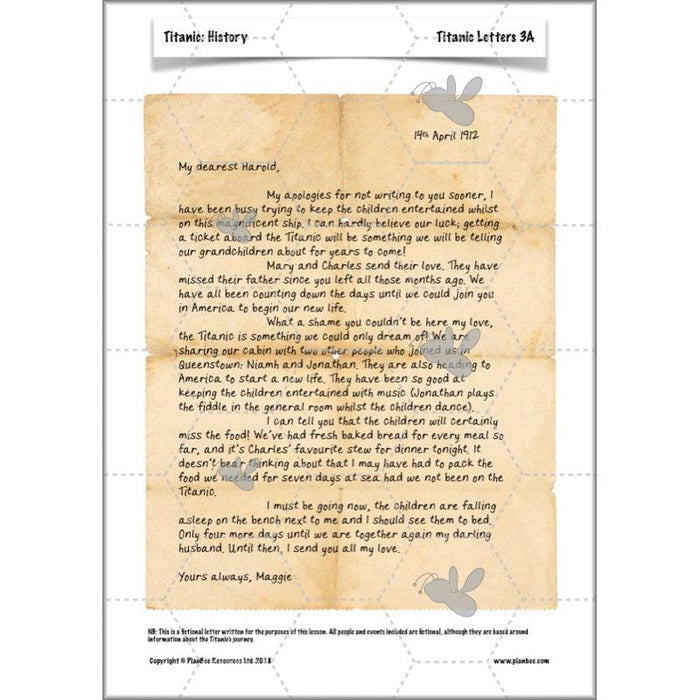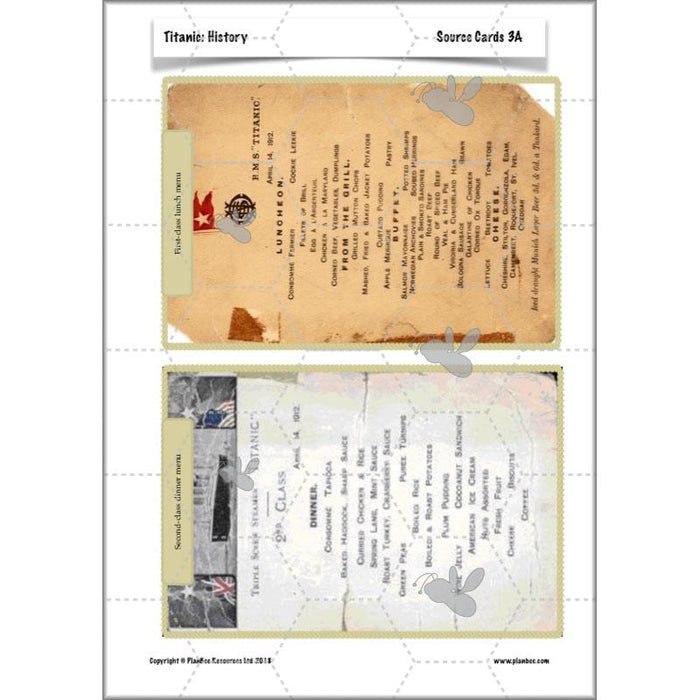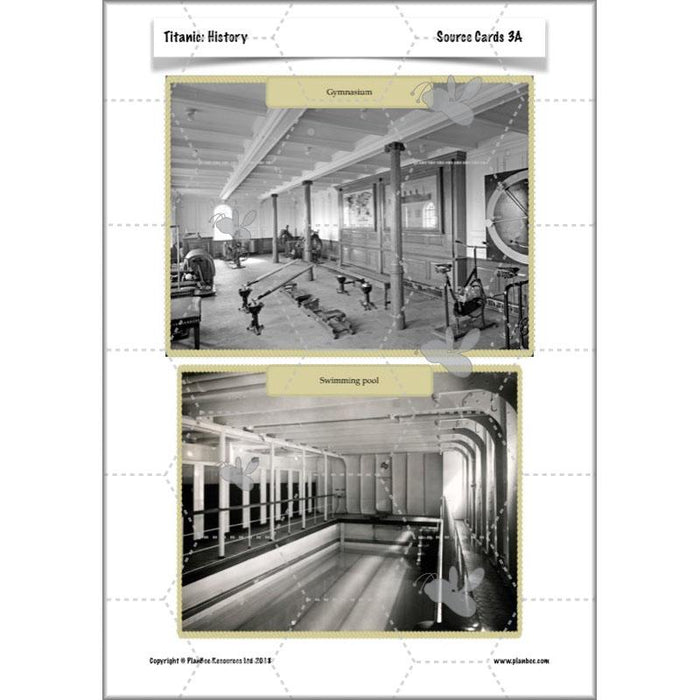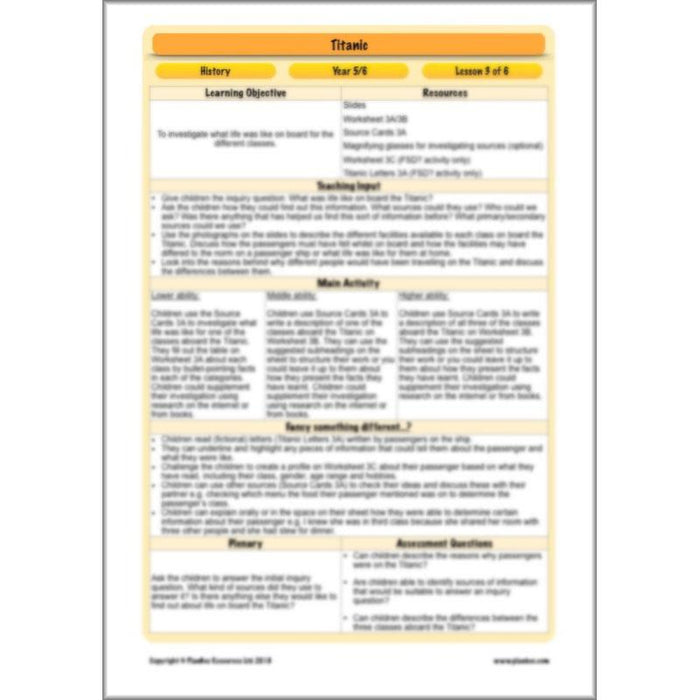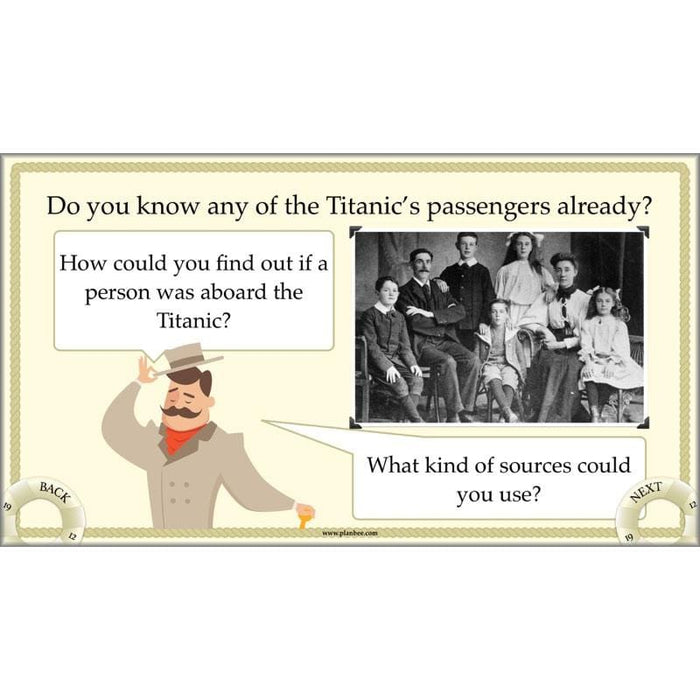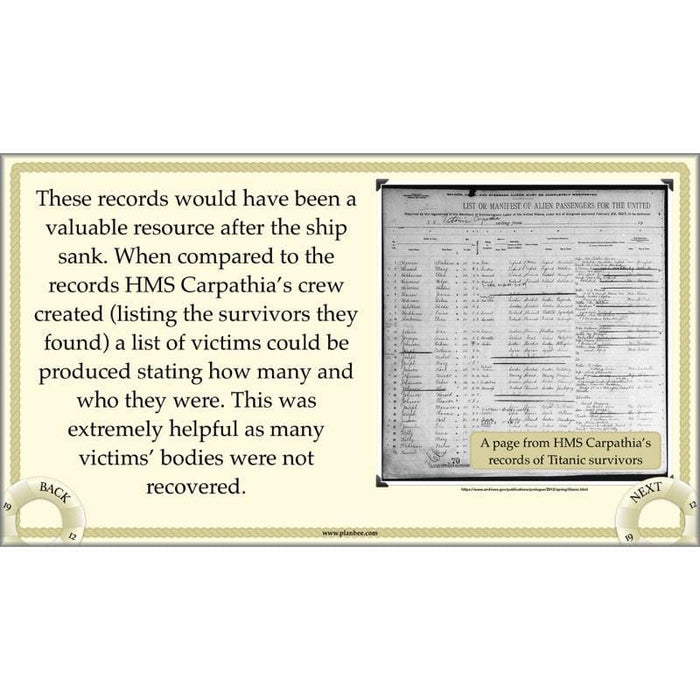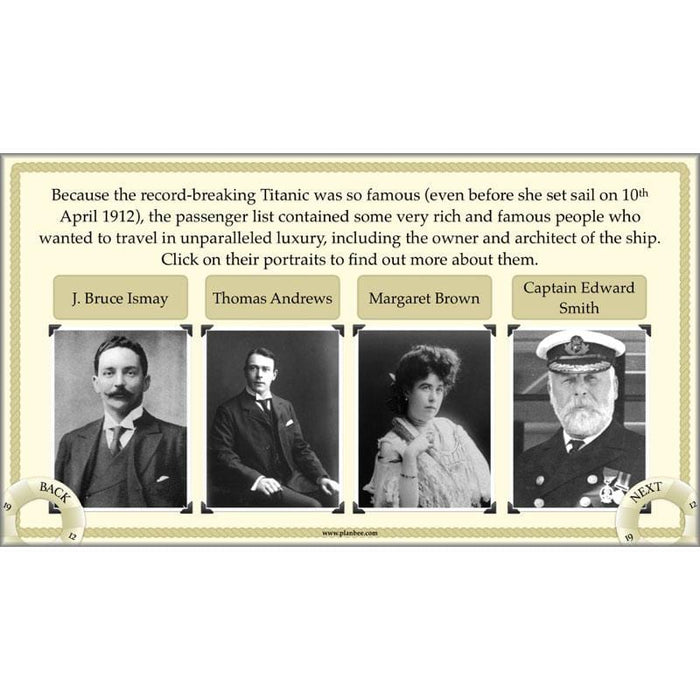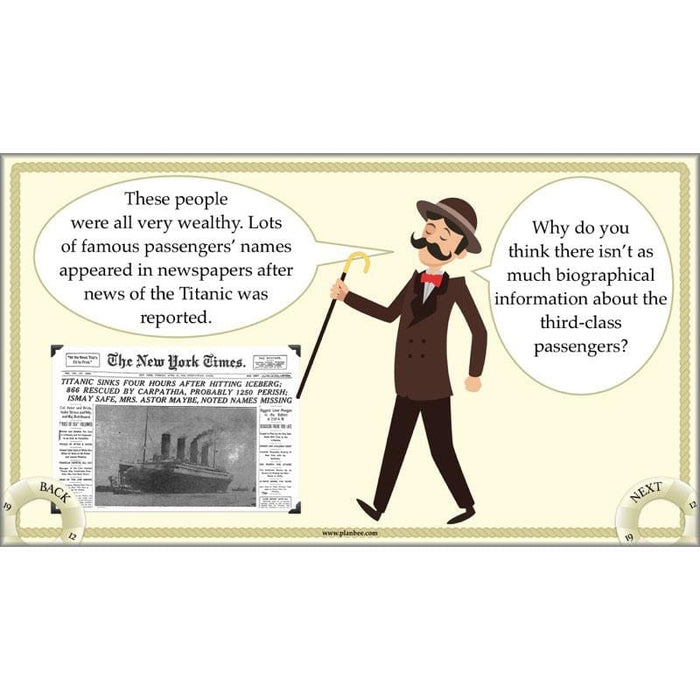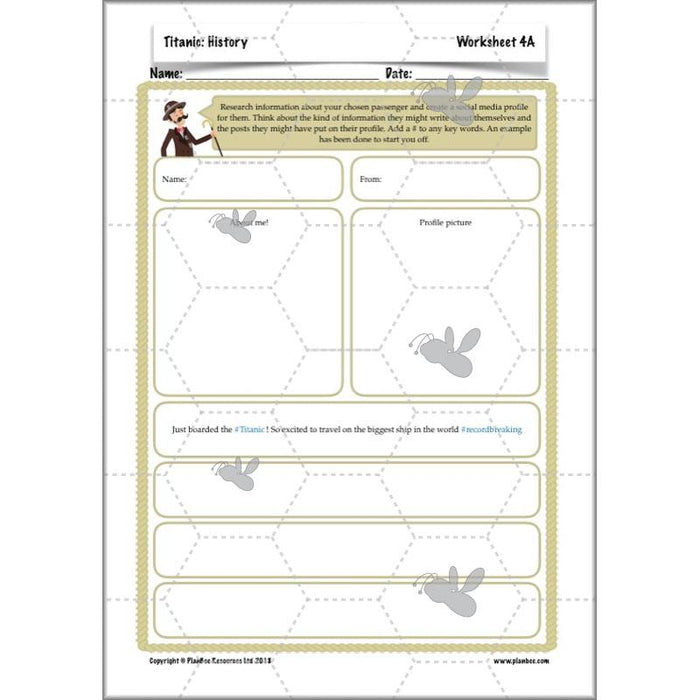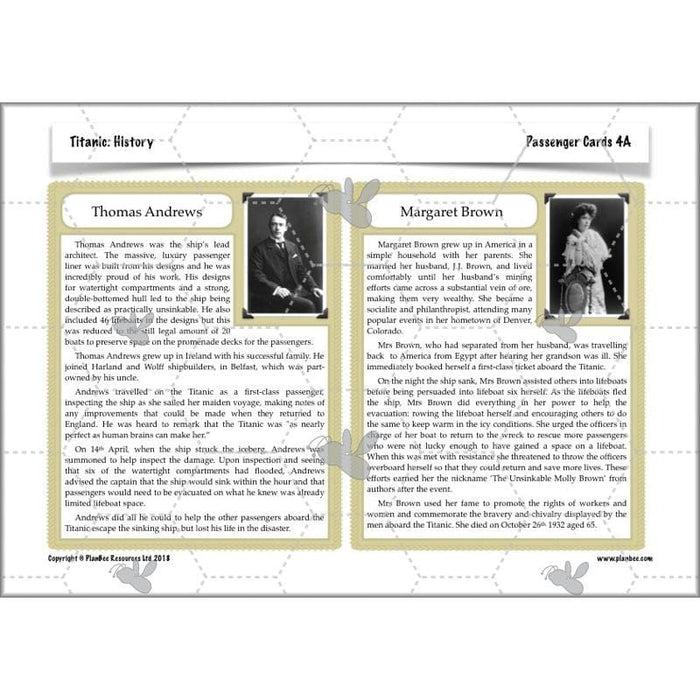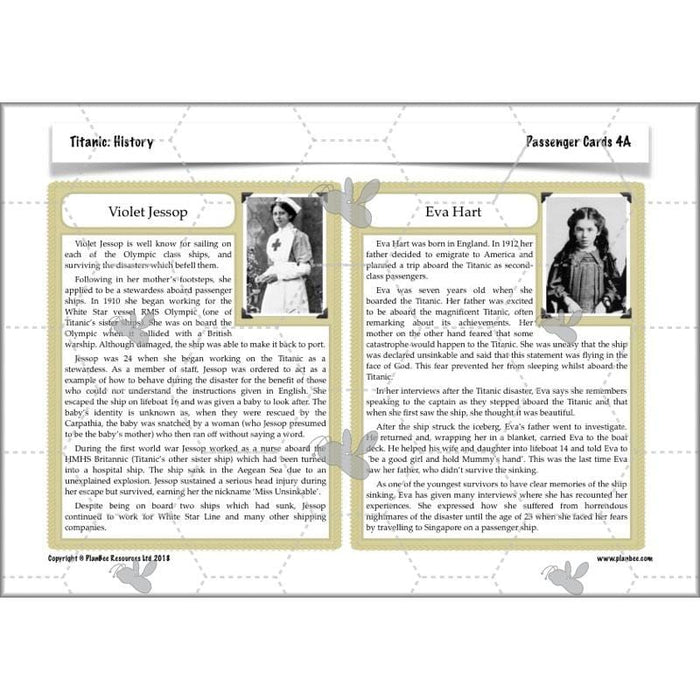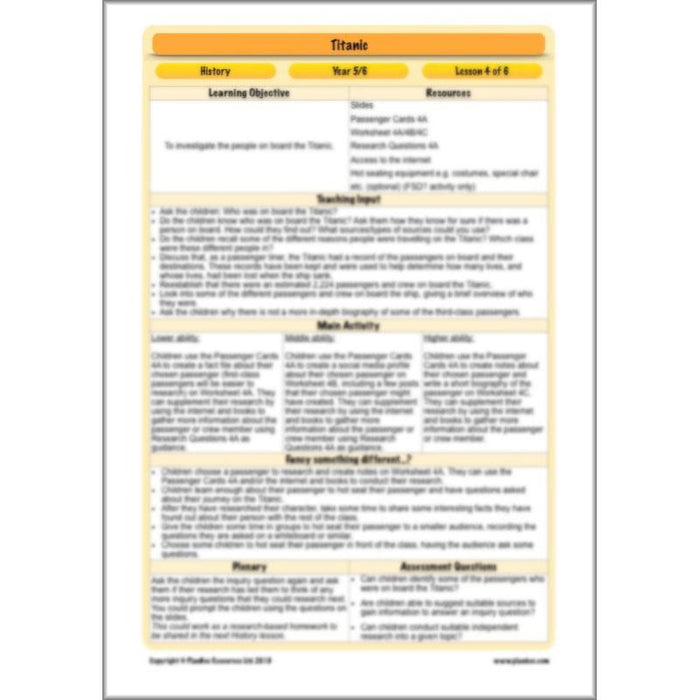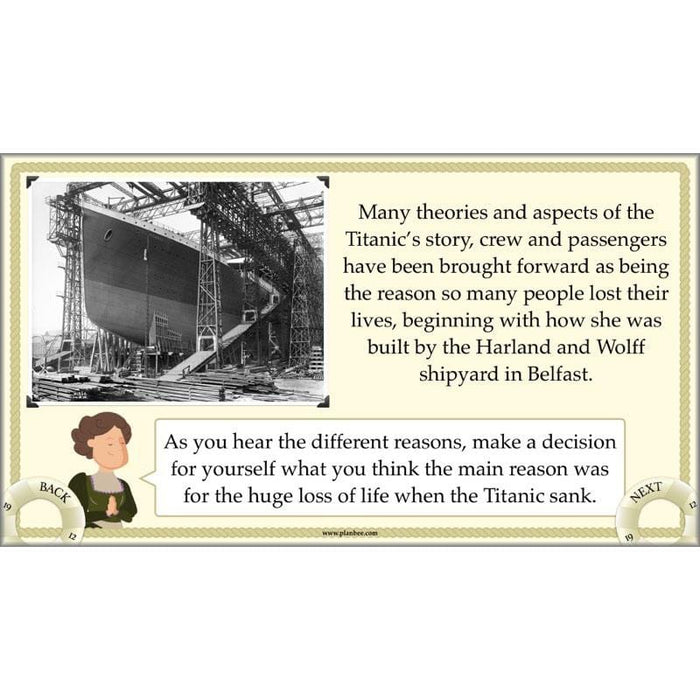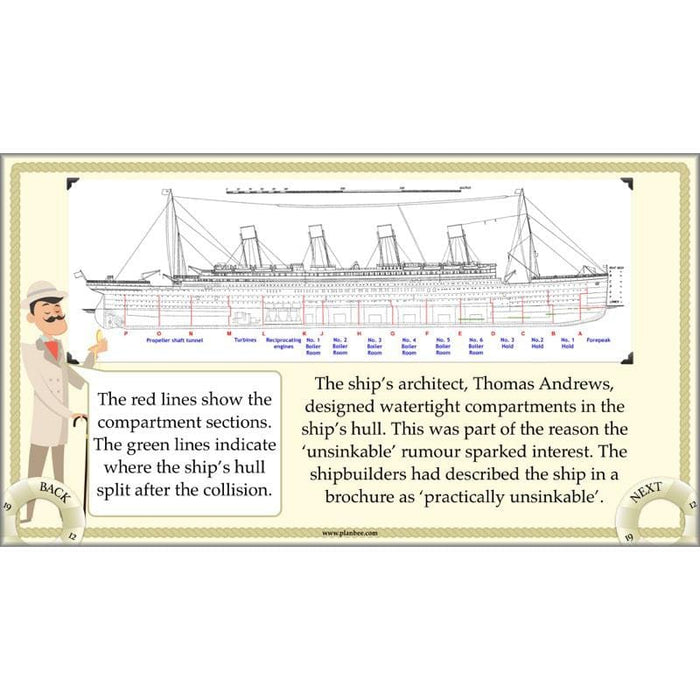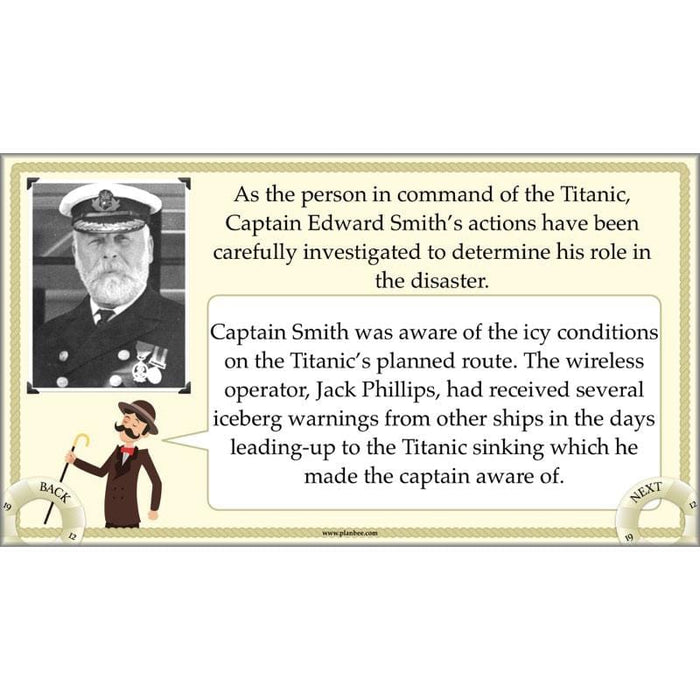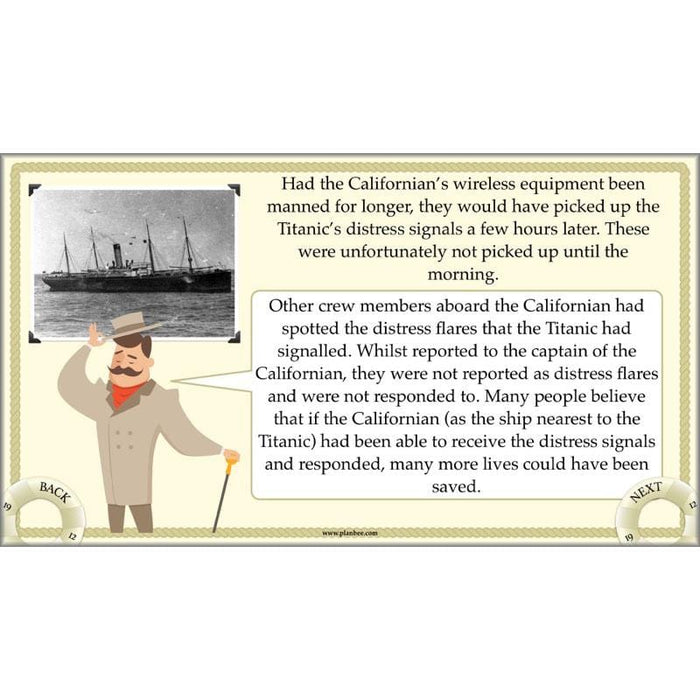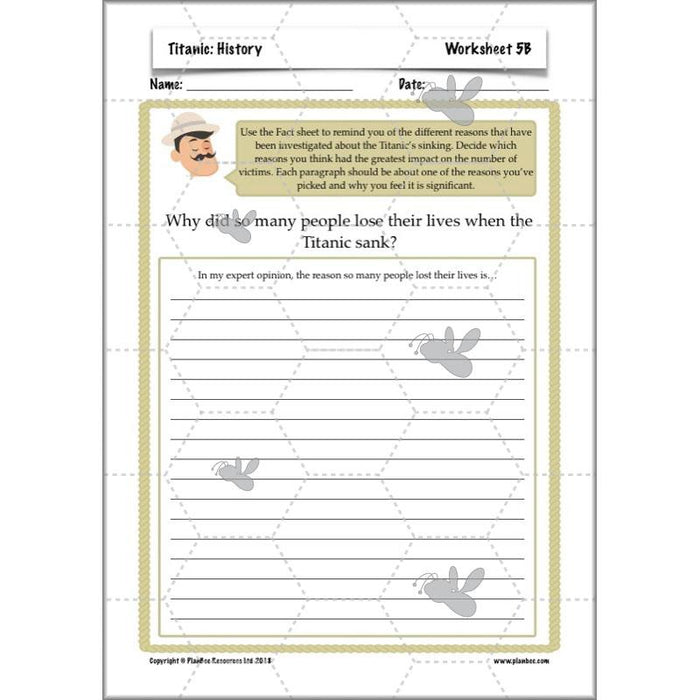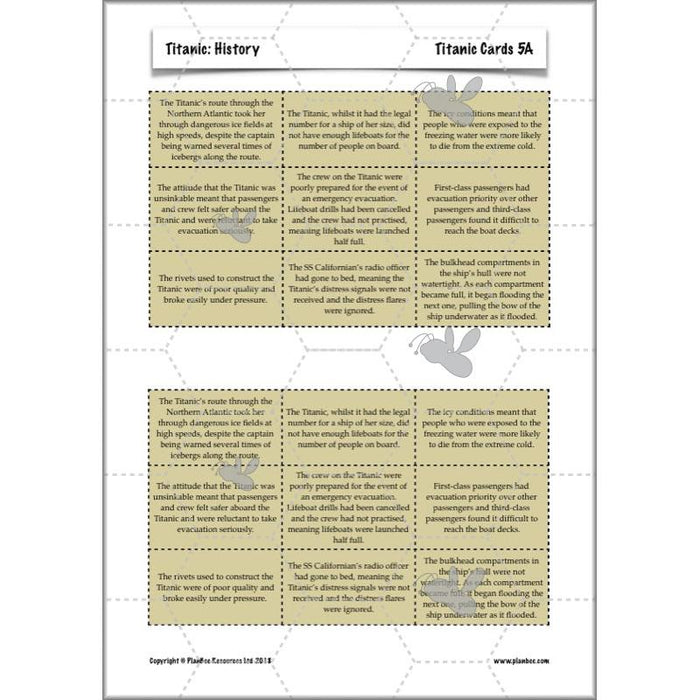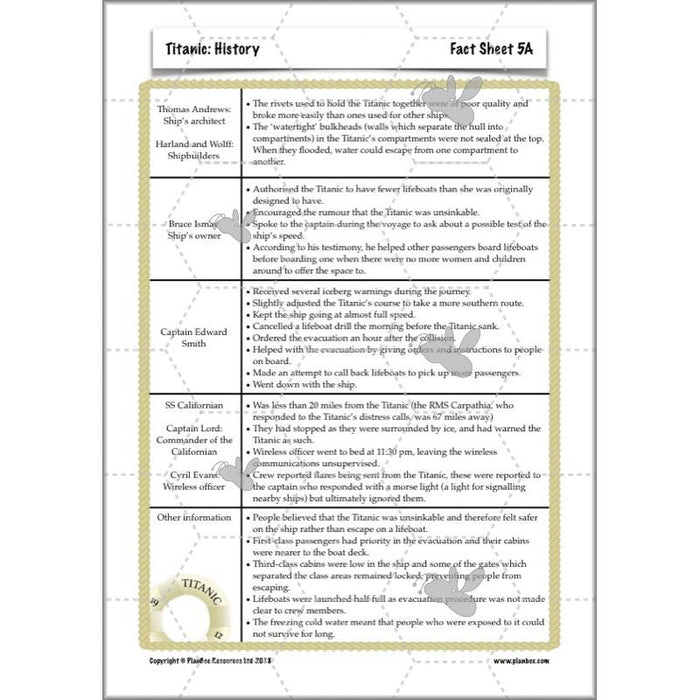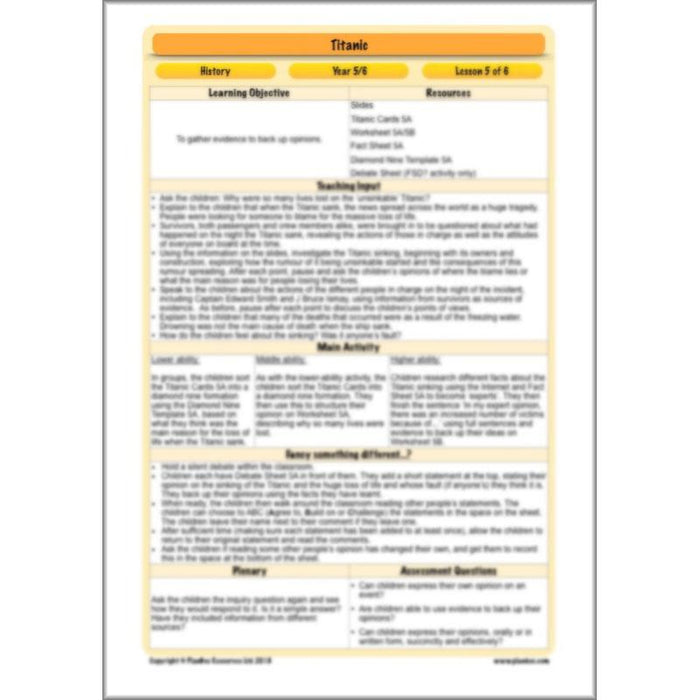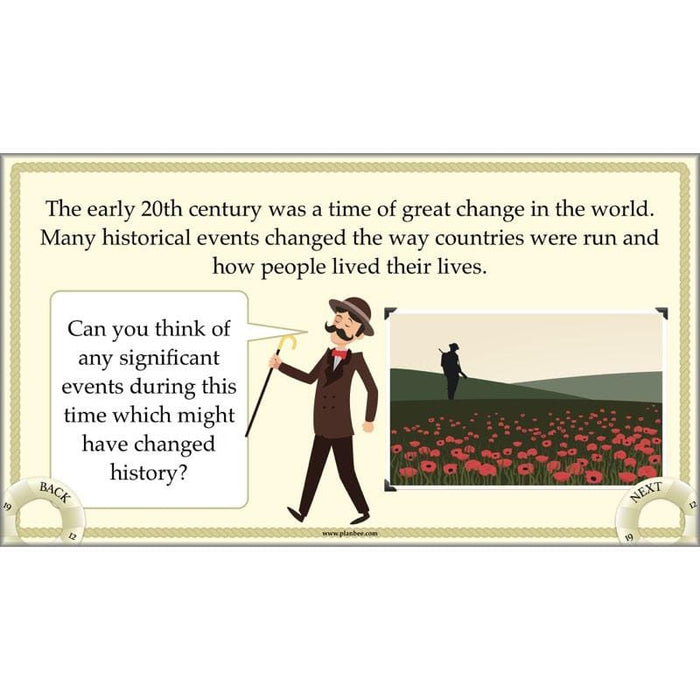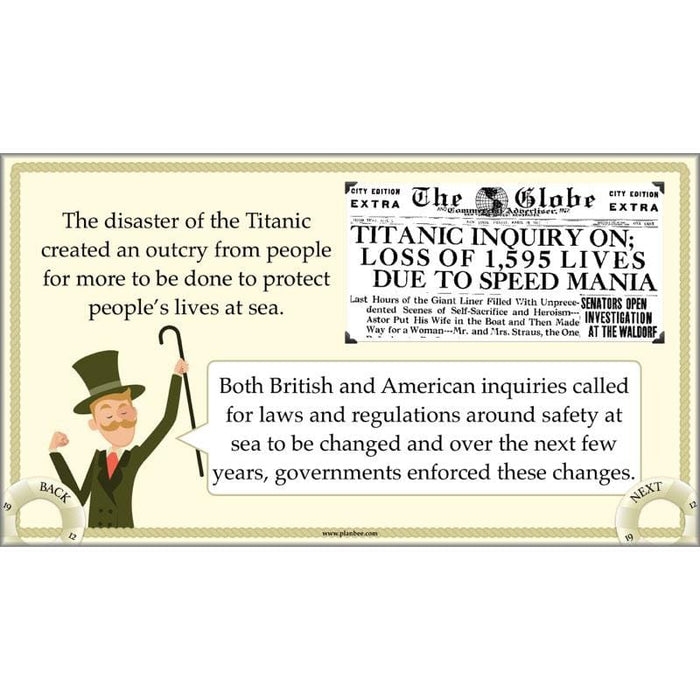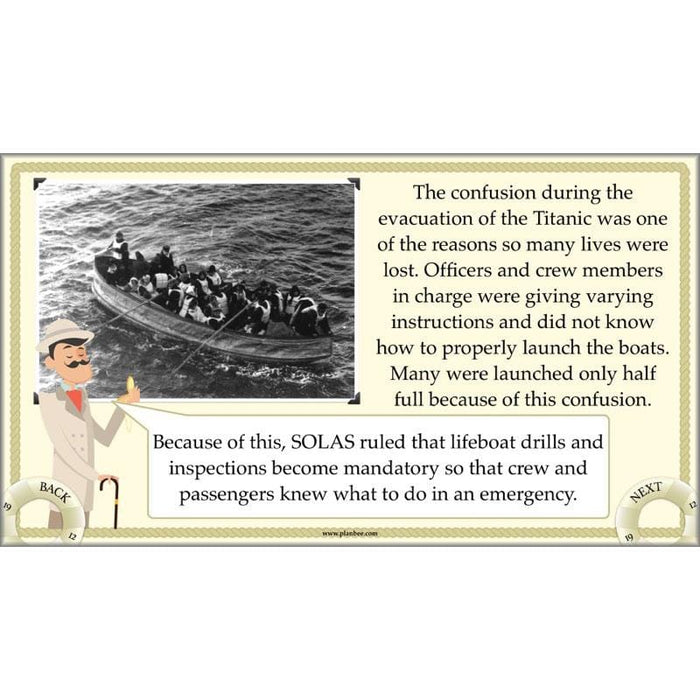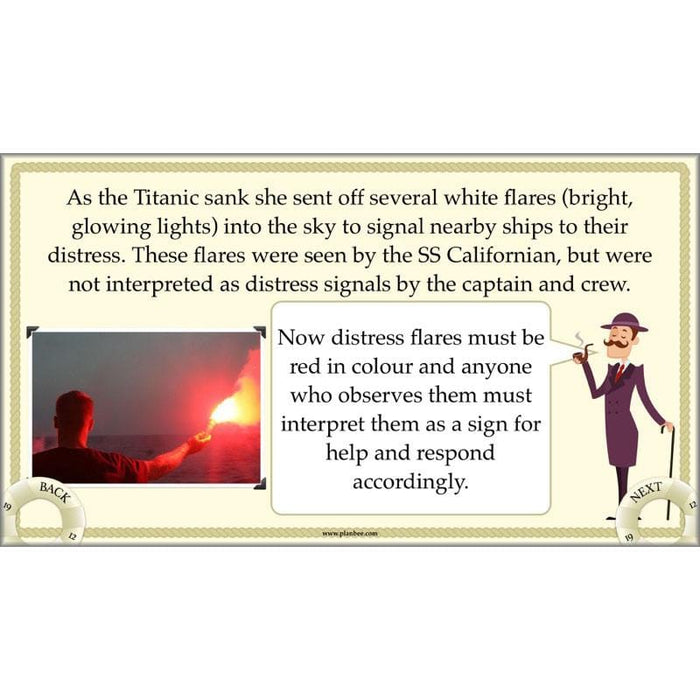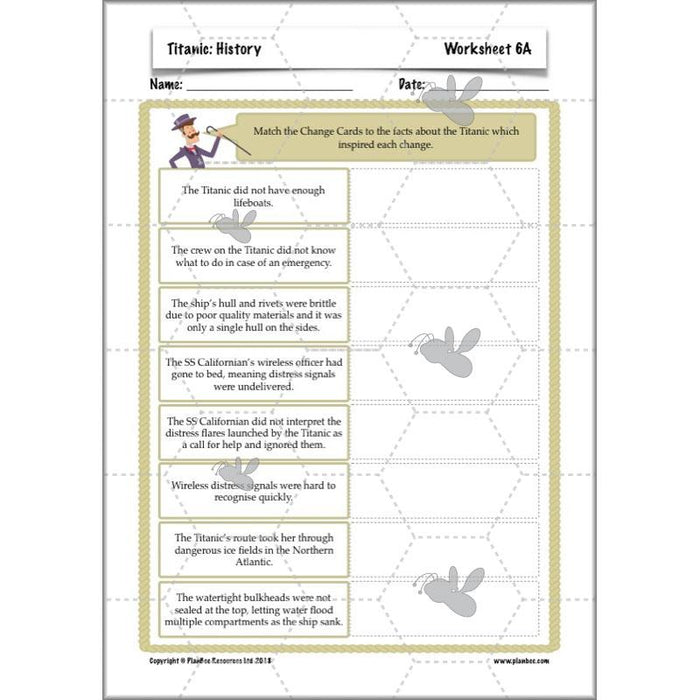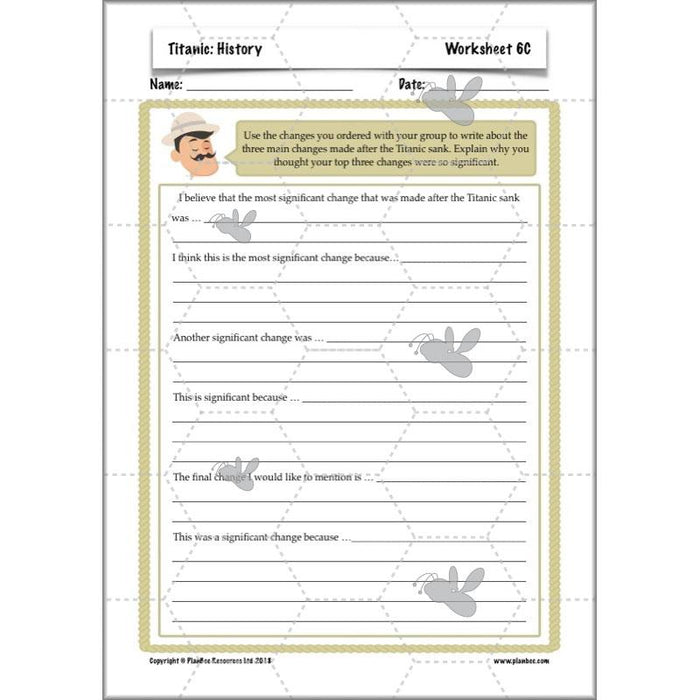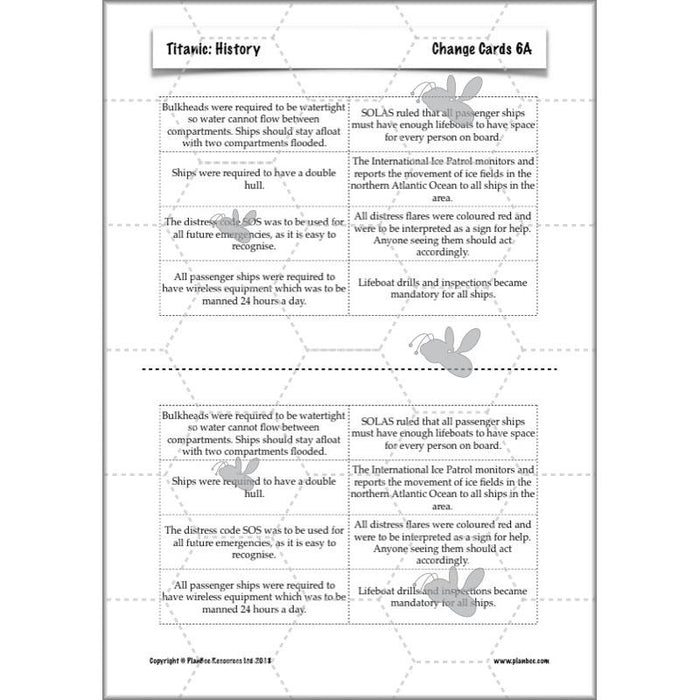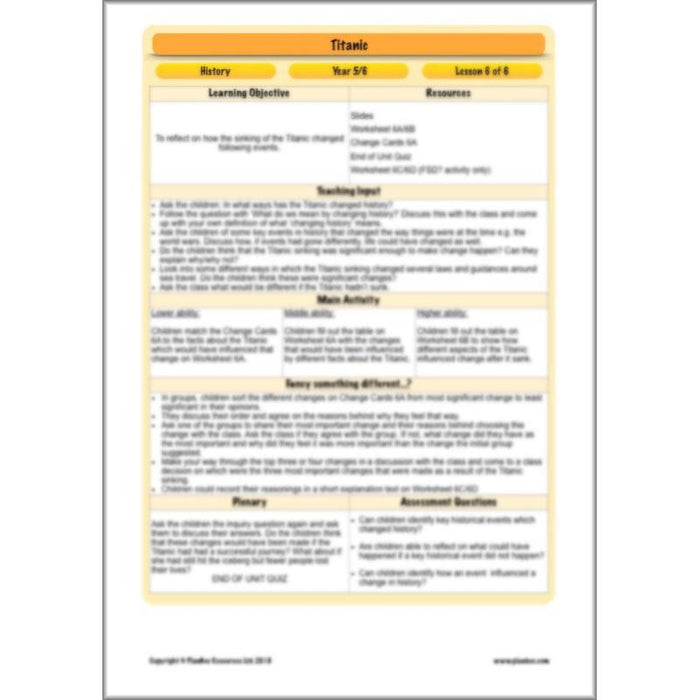#AllARTLessonsinTopic
These Titanic KS2 Art lessons are a great way to help your class learn more about the Titanic whilst also developing their art skills! Throughout these Titanic art lessons, your Year 5 or Year 6 class will have the chance to explore how to draw the Titanic using perspective, to investigate how colour can change the mood of a painting, and to create their own 3-D models of the Titanic.
Each of these three Titanic KS2 Art lessons comes fully planned and ready to teach with a detailed lesson plan, a slideshow for the teaching input that explains the necessary artistic techniques (as well as interesting background information), differentiated activity ideas, and printable resources to support your children as they create their own Titanic artwork.
#AllCOMPUTINGLessonsinTopic
Looking for a Computing lesson to teach as part of your Titanic cross-curricular topic? We've got you covered! In this lesson for Year 5 & Year 6, your class will use spreadsheet software to help them organise, sort and use data effectively when analysing information about the Titanic's crew and passengers.
The included slideshow presentation for the teaching input explores the importance of using databases to organise and sort information. The children can then create their own databases about the passengers and crew of the Titanic.
#AllENGLISHLessonsinTopic
This Titanic English planning pack for KS2 children challenges your Year 5 or Year 6 children to use what they know about the Titanic disaster to explore how different people would have reacted to the disaster. Your class will put themselves in a passenger’s shoes as they write a recount of the character’s experiences aboard the Titanic, as well as investigate how the public may have reacted when they heard the terrible news of the disaster through a newspaper report.
This complete Titanic English series of lessons is packed with enough activity ideas and resources to extend this topic over several sessions to allow your class to really master the genres of writing they will learn about with this ready-to-teach scheme of work.
#AllGEOGRAPHYLessonsinTopic
This Titanic Geography lesson for KS2 children helps your class use lines of latitude and longitude to describe different locations that were significant to the Titanic's first and only voyage. They will learn what lines of latitude and longitude are, and explore them in relation to a world map. They can then use what they have learnt to help plot locations important to the Titanic.
Like every PlanBee lesson, this planning pack contains a detailed lesson plan with differentiation, a slideshow presentation for the teaching input, and a range of printable resources to support children in their independent learning. Download this ready-to-teach Titanic Geography lesson now to help your KS2 put the Titanic into geographical context.
#AllHISTORYLessonsinTopic
These Titanic KS2 History lessons for Year 5 & Year 6 will give your class the chance to climb aboard the most famous vessel of the early 20th century as they investigate the history behind the Titanic and her infamous maiden voyage.
Each of these six Titanic History lessons will help turn your class into inquisitive historians as they discover the different sources they can use to answer the questions they have about the Titanic, her journey, her passengers and her fatal collision with an iceberg on 14th April 1912.
Containing everything you need to deliver these Titanic KS2 History lessons, including detailed lesson plans, slideshows for each of the teaching inputs, differentiated activity ideas and a range of printable resources to support children in their independent learning activities, this planning pack allows you to simply enjoy exploring the Titanic with your UKS2 class...without having to spend hours of your own time planning!
#AllSCIENCELessonsinTopic
Download these Titanic Science lessons to give your KS2 class a fun, practical way to gain a greater understanding of the Titanic through practical Science investigations. This series of three Titanic Science lessons explore iceberg density, buoyancy and melting ice, all through practical experiments for your children to carry out, giving your class the chance to further dig into the reasons behind this famous disaster.
Each of these Titanic Science lessons comes ready to teach with an easy-to-follow lesson plan with three-way differentiation plus an alternative activity, a slideshow for the teaching input and a range of printable resources to support your class as they undertake their investigations. All you need to do is download, teach and enjoy!
#Lesson1ArtHowtoDrawtheTitanic
Teach your KS2 class how to draw the Titanic using perspective in their artwork with this ready-to-teach Art lesson for Year 5 & Year 6. The included slideshow presentation explores what perspective in art is and how they can use vanishing points and construction lines to give their drawings a sense of depth.
They can then put these skills to the test as they draw the Titanic using the techniques they have just learnt about. They can also construct a model of the Titanic from a 3-D net and use this to create some tricky perspective photography!
Everything you need to teach this Art lesson is included in this lesson pack, including a lesson plan, slideshow, differentiated activity ideas and a range of handy printable resources. So, if you want to teach your class how to draw the Titanic, you've come to the right place!
What's included:
- Lesson plan
- Slides
- Activity ideas
- Differentiated worksheets
- Picture cards
- Net templates
- Challenge cards
#Lesson2ArtColourandMood
Introduce your Year 5 or Year 6 class to the German painter Willy Stöwer and his iconic painting of the Titanic disaster in this ready-to-teach Art lesson. Your children will have the chance to explore how later edits of his work have had colour added to them and discuss how this changes the effect and mood of the painting. The included slideshow presentation guides your class through some examples and explains how colour can affect what a painting portrays.
During their independent Art activities, your class will then be challenged to use what they have learnt about colour and mood in paintings to recreate Willy Stöwer's iconic painting for themselves, choosing colours to reflect the mood they want to evoke.
What's included:
- Lesson plan
- Slides
- Activity ideas
- Differentiated worksheets
- Picture cards
#Lesson3ArtMakeaTitanicModel
Teach your class how to make a Titanic model from clay in this KS2 Art lesson for Year 5 & Year 6. The included slideshow presentation challenges your class to think about the features of the Titanic, before demonstrating some handy techniques to use when working with clay.
Your class can then try their hand at using these techniques to make their own model of the Titanic from clay. Alternatively, they can work in groups to make models of the Titanic from recycled materials.
What's included:
- Lesson plan
- Slides
- Activity ideas
- Picture cards
- Differentiated worksheets
- Instruction sheet
#Lesson4ScienceIcebergDensity
In this Titanic Science lesson for Year 5 and Year 6, your KS2 class will have the chance to investigate the different reasons icebergs float and how density affects sinking and floating objects. Take your class’s understanding further by investigating how the amount of salt in a saltwater solution affects the density of the water and can make objects which normally sink, float.
This Iceberg Density lesson comes ready to teach with a detailed lesson plan, a slideshow for the teaching input, differentiated activities and a range of printable resources.
What's included:
- Lesson plan
- Slides
- Activity ideas
- Differentiated worksheets
- Teacher notes
#Lesson5ScienceTitanicBuoyancy
In this Titanic Buoyancy lesson for KS2 children, your class will explore buoyancy and why ships float when a paper clip sinks in water. Your Year 5 & Year 6 children will investigate the Archimedes Principle, buoyancy and water displacement as they find an answer to this question.
During their independent learning, they can then express what they have found out about buoyancy in relation to the Titanic, as well as carry out a practical investigation into water-tight bulkheads.
During the plenary, they will then use what they have learnt to explain why the Titanic sunk after an iceberg pierced holes in the side, filling the hull with water.
What's included:
- Lesson plan
- Slides
- Activity ideas
- Differentiated worksheets
- Teacher notes
- Instructions cards
#Lesson6ScienceMeltingIce
Practise planning and executing an investigation with your KS2 class as they plan an experiment to find out how salt affects ice as it melts. Challenge them to use their understanding of solids and liquids to explain what is happening.
During the teaching input, your class will find out how scientists today measure the melting ice caps and use this as the starting point for considering what can speed up or slow down ice melting.
They can choose an enquiry question to explore through practical experiments, making sure to follow scientific processes appropriately as they do so.
What's included:
- Lesson plan
- Slides
- Activity ideas
- Teacher notes
- Differentiated worksheets
#Lesson7ComputingSortingTitanicPassengers
This Titanic Computing lesson for KS2 children will give your class the chance to learn more about the Titanic passengers aboard the famous vessel as they organise, sort and analyse data on the Titanic's passengers and crew.
During the teaching input, your class will use information cards with facts about the Titanic passengers and crew listed, establishing that finding and sorting information in this format is not the easiest! They will then go on to look at how spreadsheets can help make this task a lot simpler and more effective.
During their independent activity, they can then use the information on the cards to create their own spreadsheet of information about 50 Titanic passengers.
What's included:
- Lesson plan
- Slides
- Activity ideas
- Passenger cards
- Challenge cards
#Lesson8GeographyTitanicRouteMap
Plot the Titanic route on a map with your KS2 class, using lines of latitude and longitude to describe the location of different places that were significant to the Titanic's journey. During the included slideshow presentation, your Year 5 or Year 6 class will find out what lines of latitude and longitude are, and how to use coordinates to plot locations on a world map.
During their independent learning, your class can then use what they have learnt to identify places of significance to the Titanic route and plot them on a map using coordinates.
What's included:
- Lesson plan
- Slides
- Activity ideas
- Differentiated worksheets
#Lesson9EnglishDescriptiveWriting
Use this Titanic Descriptive Writing lesson for KS2 to help your class use descriptive language to write a recount of passengers' first encounters with the Titanic. During this ready-to-teach lesson, your Year 5 or Year 6 children will use descriptive language features to create an effect as they describe the first time their character sees the Titanic and the setting around them.
This packed lesson can be taught in one session or can be extended over several lessons to really give your class the chance to explore, draft and edit their writing further. Either way, your class will be creating fantastic Titanic descriptive writing in no time!
What's included:
- Lesson plan
- Slides
- Activity ideas
- Character sheet
- Character cards
- Picture cards
- Story card
- Challenge card
- Teacher notes
#Lesson10EnglishSuspenseandAction
Explore how authors use different writing devices and structures to build up to and create tension and suspense in their writing. Discuss different model texts with your class as they pick out devices and skills to use in their own writing of the next part of their recount. Why not try extending this lesson over a few more sessions to give your class the opportunity to really get to grips with each of the writing devices for this chapter?
What's included:
- Lesson plan
- Slides
- Activity ideas
- Story cards
- Challenge cards
- Text cards
#Lesson11EnglishChangingMoods
Challenge your class to use their learning from the previous two lessons to create a switch in moods as events unfold in the final chapter of their recounts. Discuss how the sentence structure and word choices can help the children as authors create a mood for their readers which matches the events happening to their character as they are rescued from the Titanic disaster.
What's included:
- Lesson plan
- Slides
- Activity ideas
- Story cards
- Differentiated worksheets
#Lesson12EnglishTitanicNewsReport
In this Titanic News Report KS2 English lesson, your Year 5 or Year 6 children will explore how people all over the world found out about the Titanic disaster, and discuss how news reports convey important information. They will then be given the chance to analyse a televised news report in order to start planning and writing their own script for a Titanic news report, as if the technology were available at this time.
This ready-to-teach Titanic News Report lesson provides everything you need to challenge your class to create their own televised Titanic news reports, including a detailed lesson plan, a slideshow for the teaching input, differentiated activity ideas, and a range of printable resources to support your children as they write their scripts.
What's included:
- Lesson plan
- Slides
- Activity ideas
- Differentiated worksheets
- Information sheets
- Audience cards
#Lesson13EnglishRecordingaNewsReport
Put your class’s plans into action as they record their Titanic news broadcast as a either a televised or radio news report. Challenge them to think about the key differences in these two mediums and think about how to make the filming and editing process more efficient using a shot list. This lesson could be extended over several sessions to give your class the opportunity to really get to grips with filming and editing video or sound recordings.
What's included:
- Lesson plan
- Slides
- Activity ideas
- Differentiated worksheets
- Shot list
- Radio cards
#Lesson14EnglishTitanicNewspaperReport
Download this ready-to-teach Titanic Newspaper Report KS2 English lesson to challenge your Year 5 or Year 6 class to analyse the advantages and disadvantages of different news mediums, before converting a script for a televised news report into a written Titanic newspaper report.
During the teaching input (using the included slideshow to guide you and your class through the learning), your children will discuss how the differences in the audience and medium of a report can change the way it is written, as well as explore the features of a newspaper report.
Your class are then challenged to write their own Titanic newspaper reports, drawing on everything they have learnt. You can do this over one session or extend it out across several sessions to give children more time to get stuck into their reports.
What's included:
- Lesson plan
- Slides
- Activity ideas
- Model text
- Picture cards
- Quote cards
- Differentiated worksheets
- Writing frame
#Lesson15HistoryTitanicTimeline
In this Titanic Timeline KS2 History lesson, your Year 5 or Year 6 class will be introduced to the story of the Titanic and how the biggest moving vessel in the world at the time became so famous. The included slideshow presentation for the teaching input goes through the story of the Titanic, learning about the events surrounding her launch, her maiden voyage and her fatal collision with an iceberg.
When the children come to do some work of their own, they will create their own differentiated Titanic timelines. There is also the chance to work as a class to create a human timeline of the Titanic, considering how significant different events were.
What's included:
- Lesson plan
- Slides
- Activity ideas
- Titanic timelines
- Elicitation headings
- Differentiated worksheets
#Lesson16HistoryTitanicSources
Explore Titanic sources of information with your KS2 class in this ready-to-teach History lesson for Year 5 & Year 6 children as they learn how we know about the Titanic and explore the reliability of different sources. The lesson starts by challenging your class to think about all the different sources they could use to find out about the Titanic, then goes on to explore what primary and secondary sources are, and the type of information that can be found out from each. It also helps consider the accuracy of information from different sources.
They then have the opportunity to explore lots of Titanic sources for themselves, including artefacts, newspaper reports, telegrams, letters, recounts and more! They will consider what they can and can't learn from these sources, and pose questions for further learning.
What's included:
- Lesson plan
- Slides
- Activity ideas
- Differentiated worksheets
- Sources pack
#Lesson17HistoryInsidetheTitanic
Take a step into the passengers’ shoes as you venture inside the Titanic and investigate the facilities on board for the different classes. During the teaching input for this Inside the Titanic KS2 History lesson, your class will have the chance to take a peek into what the interior of Titanic was like, and how the experiences on board were different depending on your class and wealth.
During their independent learning, your Year 5 or Year 6 children can carry out some further research into what life was like inside the Titanic using a variety of sources, collating their findings in a variety of ways. Alternatively, they can read some fictional letters from passengers aboard the famous ship to create passenger profiles.
What's included:
- Lesson plan
- Slides
- Activity ideas
- Differentiated worksheets
- Source cards
- Titanic letters
#Lesson18HistoryTitanicPassengers
Introduce your class to some of the Titanic passengers on board the famous ship in this ready-to-teach KS2 History lesson for Year 5 and Year 6. During the teaching input, the included slideshow presentation will pose some questions about the Titanic's passengers and how we know about them, before looking in more detail at some famous Titanic passengers, including Captain Smith, Margaret Brown and Thomas Andrews.
They can then go on to carry out their own research about Titanic passengers for themselves, presenting the information as a fact file, social media profile or biography. Alternatively, they can hot seat being different Titanic passengers based on what they have found out.
What's included:
- Lesson plan
- Slides
- Activity ideas
- Passenger cards
- Differentiated worksheets
- Research questions
#Lesson19HistoryWhoistoblame
Who is to blame for the sinking of the Titanic? Allow your class to explore and investigate the different reasons that were uncovered during official inquiries for the Titanic’s sinking. Focusing on the huge and unnecessary loss of life in the disaster, have your class debate over who, or what, was to blame for so many people losing their life when the Titanic sank.
This ready-to-teach lesson comes with a detailed lesson plan with differentiated activity ideas, a slideshow for the teaching input, and a range of printable resources to help your class answer the question, 'Who is to blame for the sinking of the Titanic?'
What's included:
- Lesson plan
- Slides
- Activity ideas
- Titanic cards
- Differentiated worksheets
- Fact sheet
- Debate sheet
#Lesson20HistoryTitanicLegacy
Download this Titanic Legacy KS2 History lesson for Year 5 and Year 6 to explore with your class what changed in the maritime industry after the sinking of the Titanic. Your class will have the chance to look into the different ways ships have been made safer for people on board and measures that were put in place to ensure this kind of disaster could be prevented in future. Your children will also be asked to reflect on why the changes were made and whether the changes would still have been made if the Titanic hadn’t sunk.
The final lesson in this Titanic History series comes ready to teach with an easy-to-follow lesson plan, a slideshow for the teaching input, differentiated activity ideas and a range of printable resources to support children as they learn about the legacy of the Titanic.
What's included:
- Lesson plan
- Slides
- Activity ideas
- Differentiated worksheets
- Change cards
- End of unit quiz
